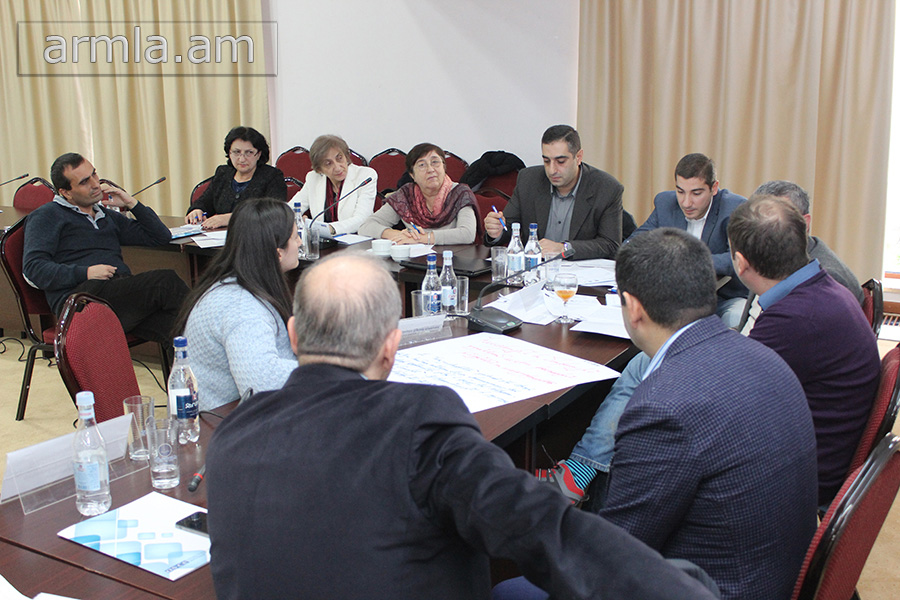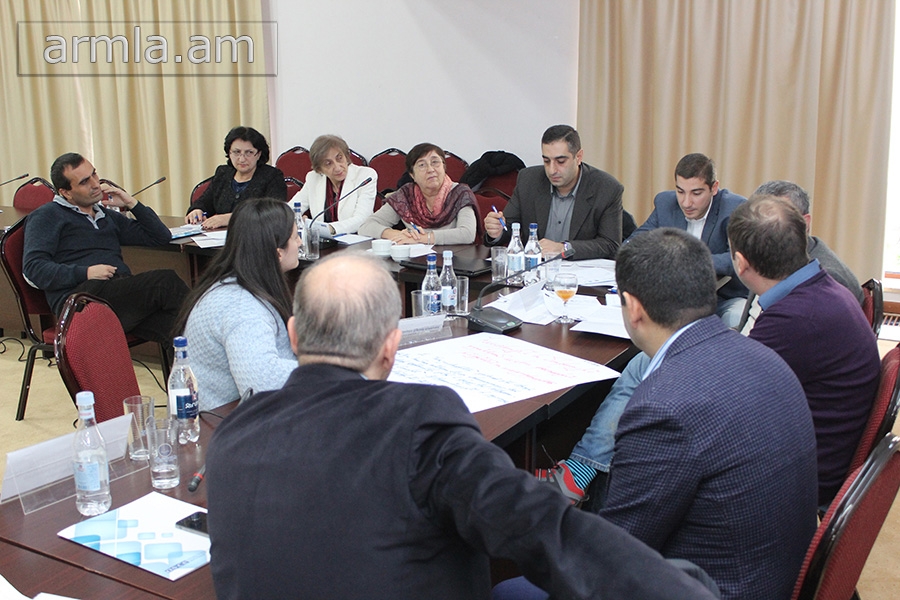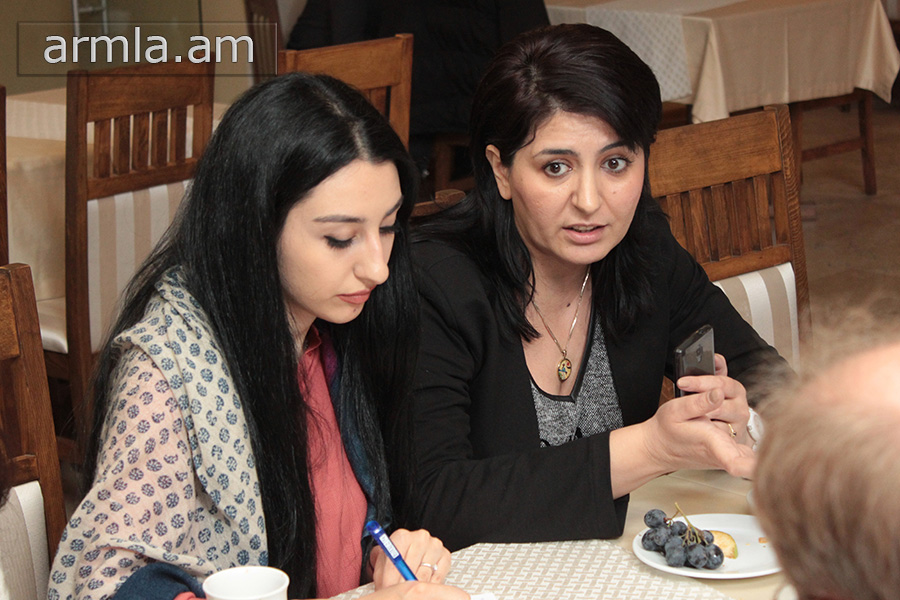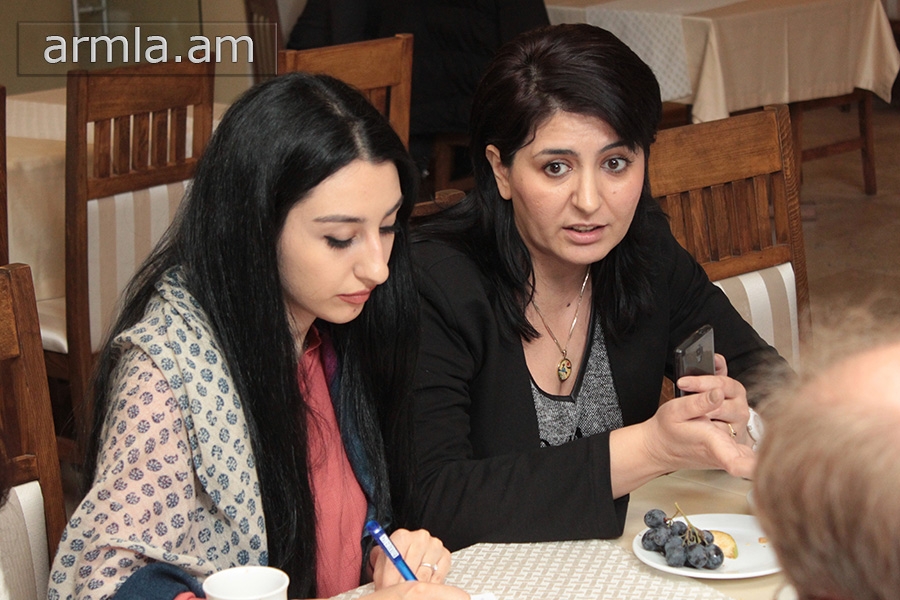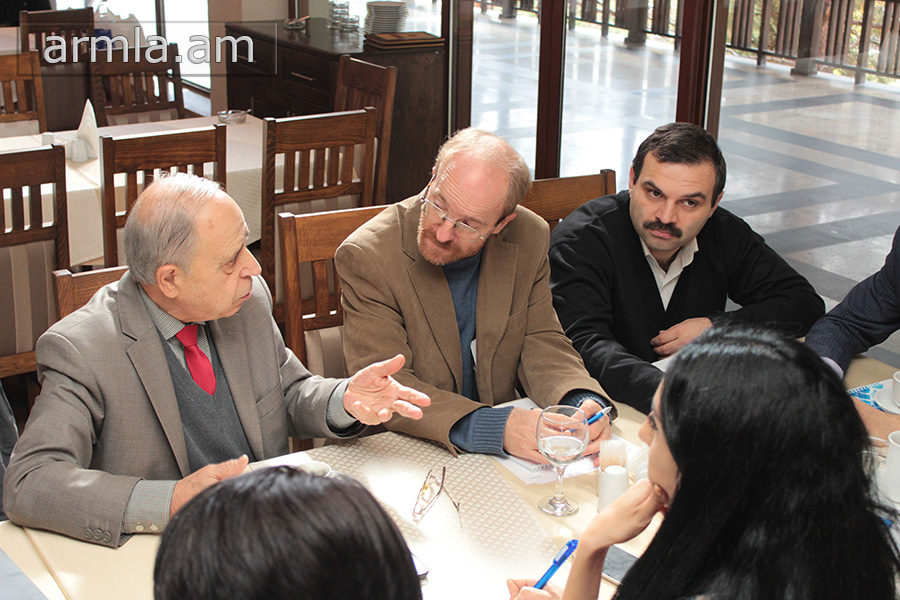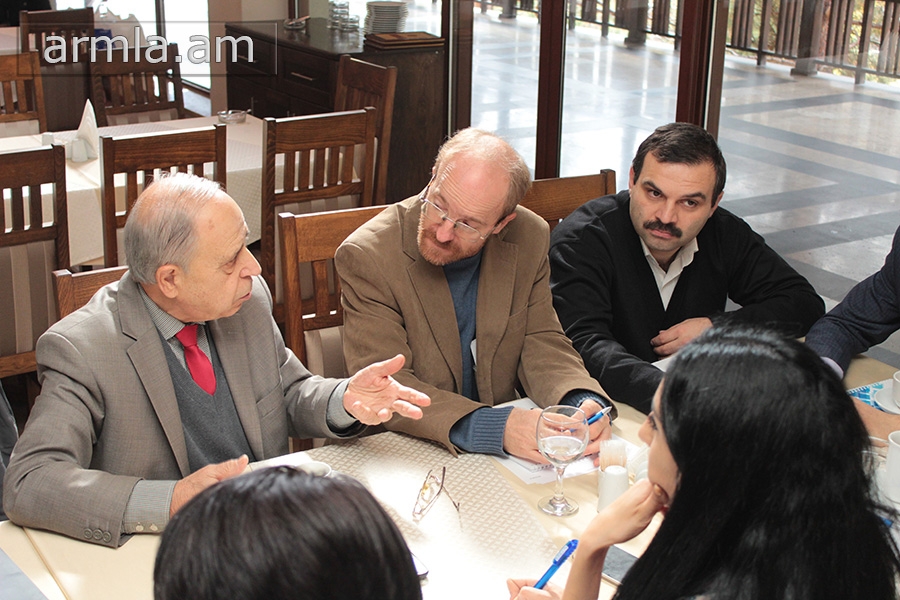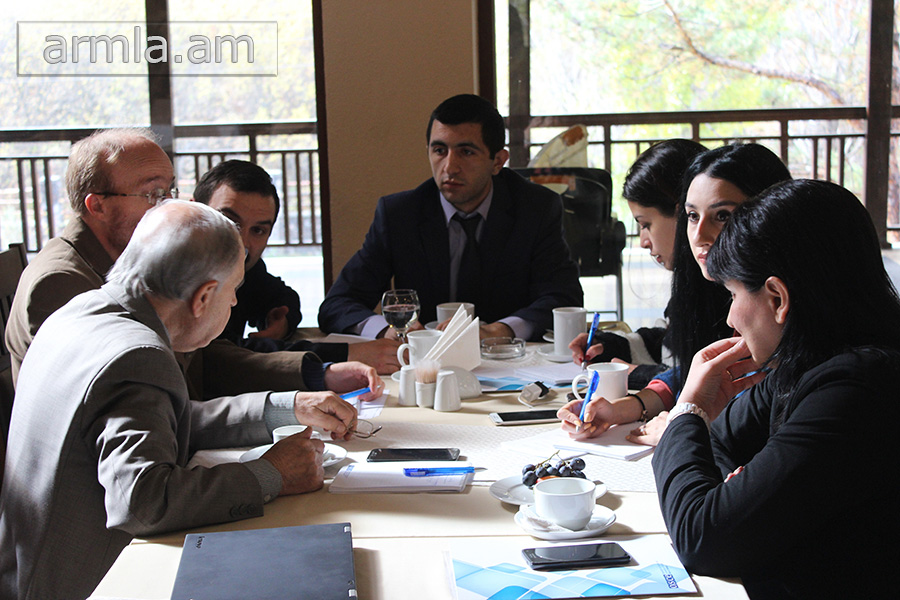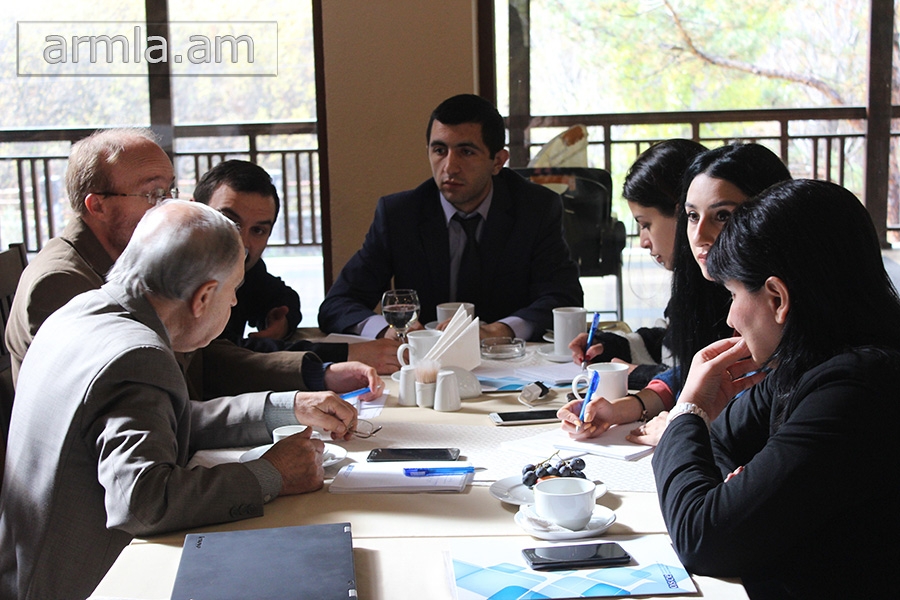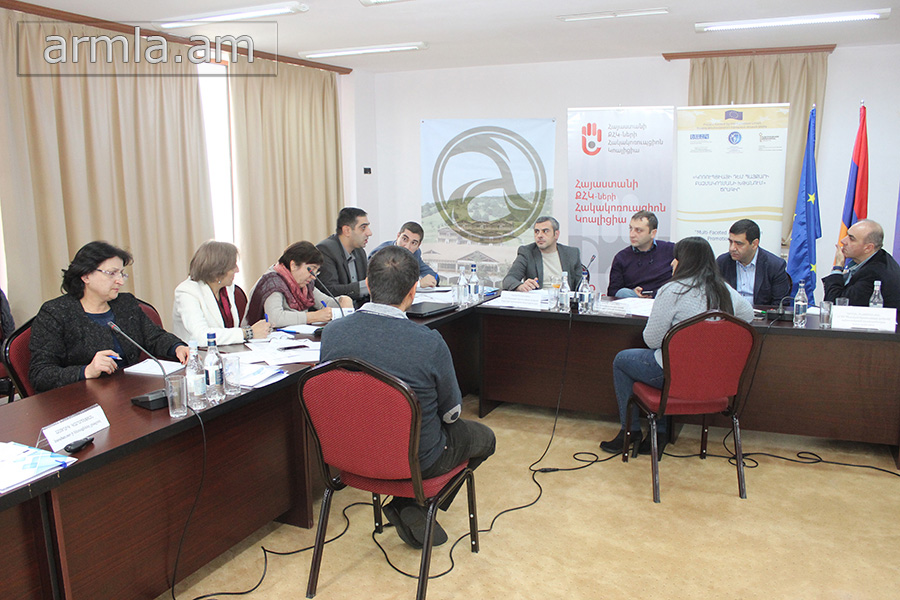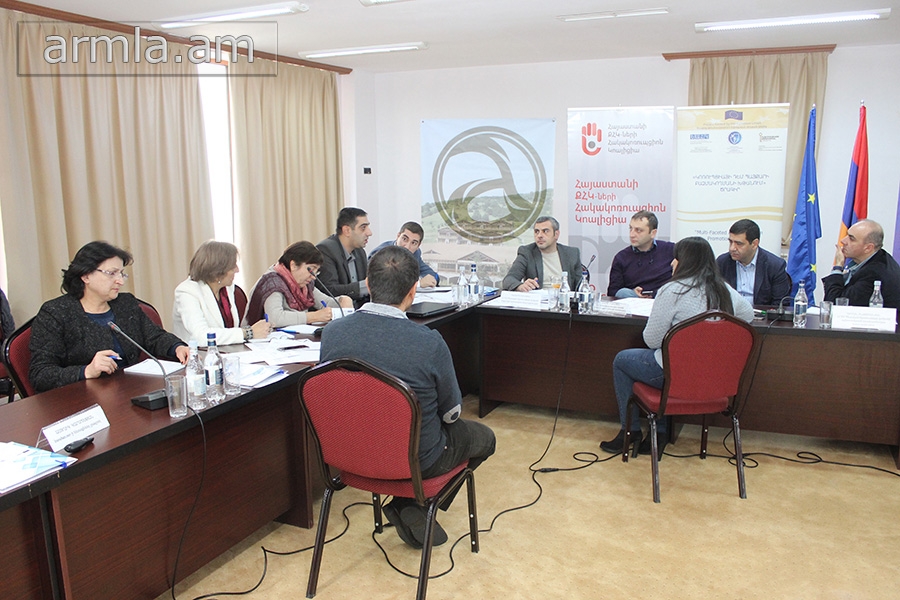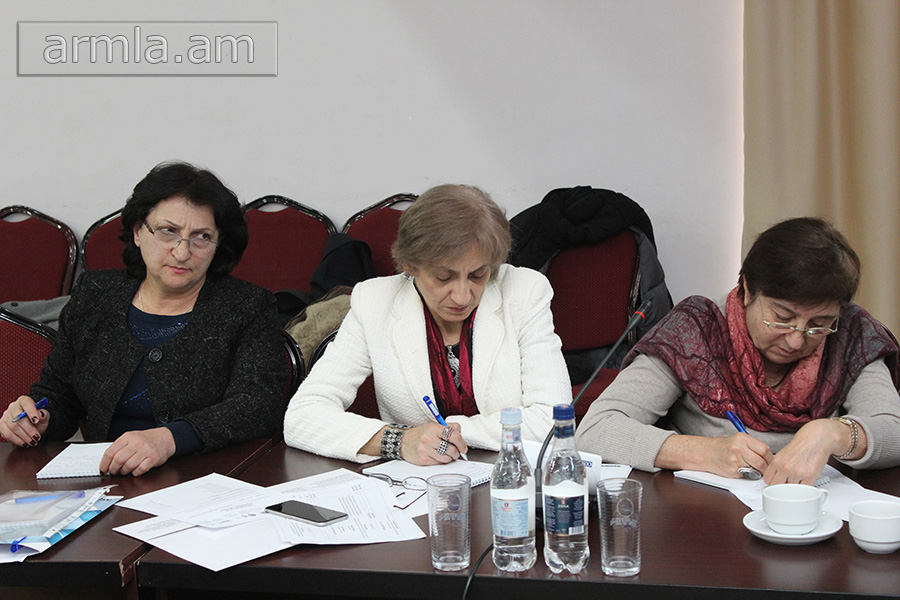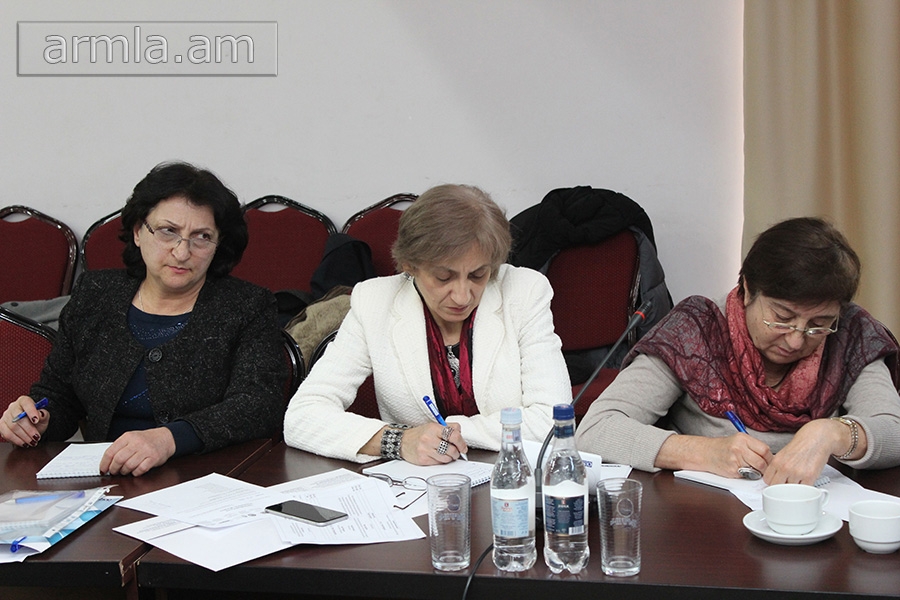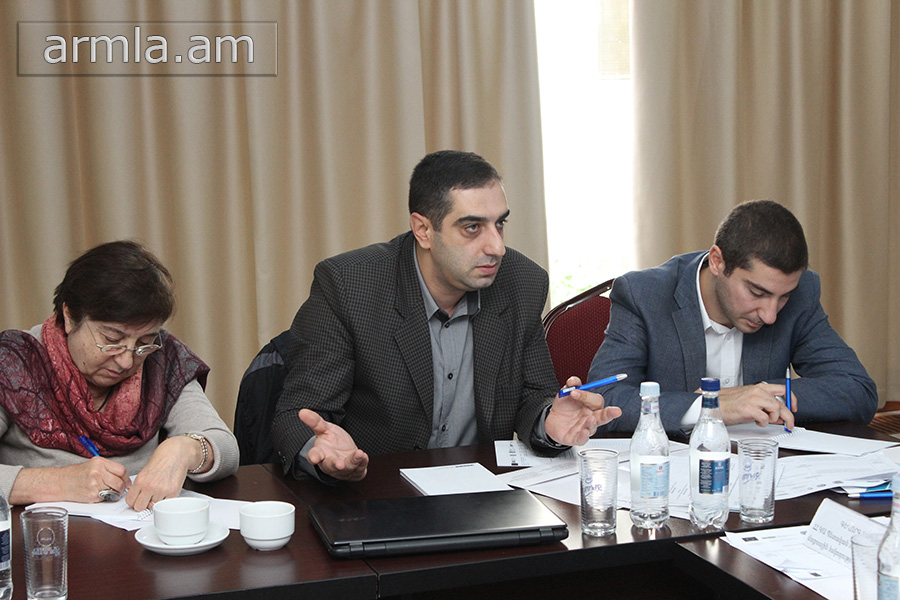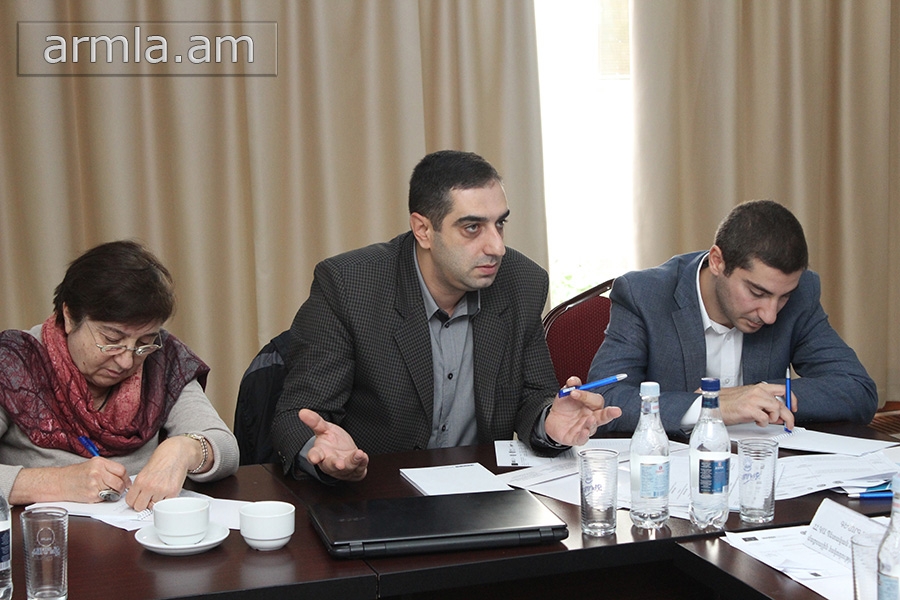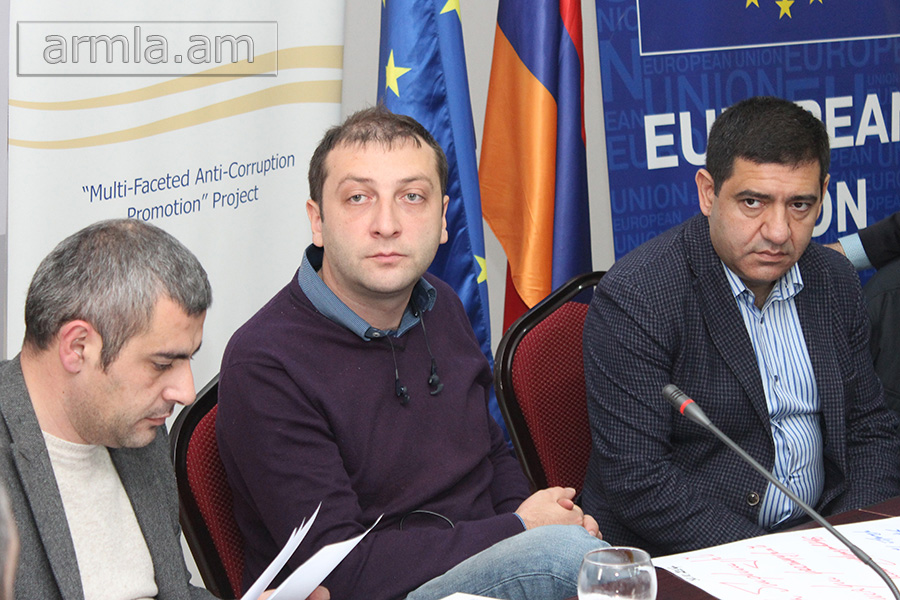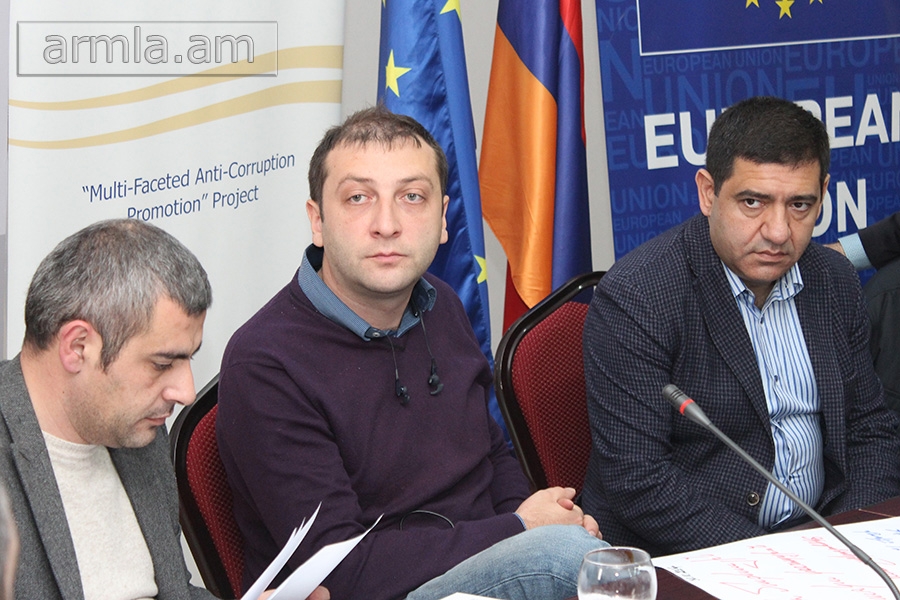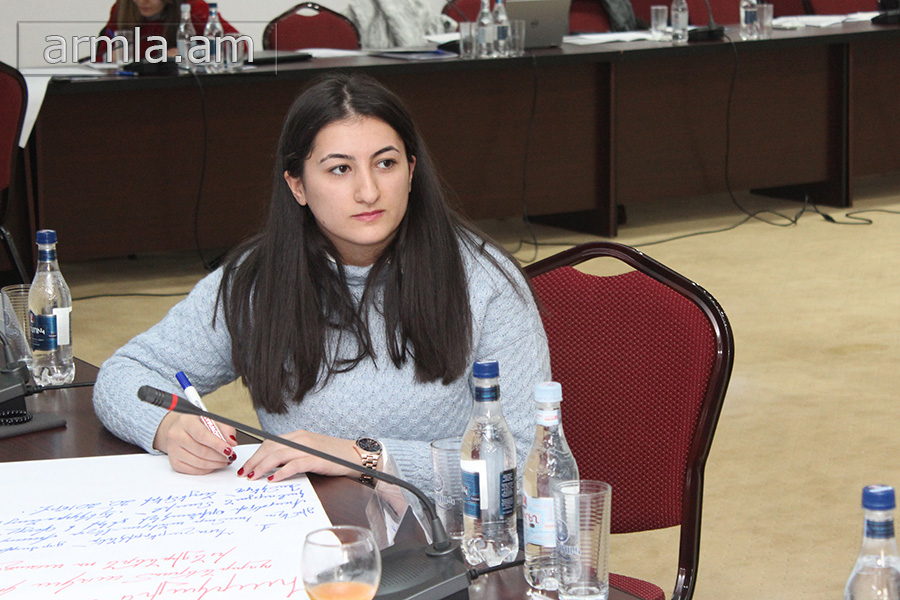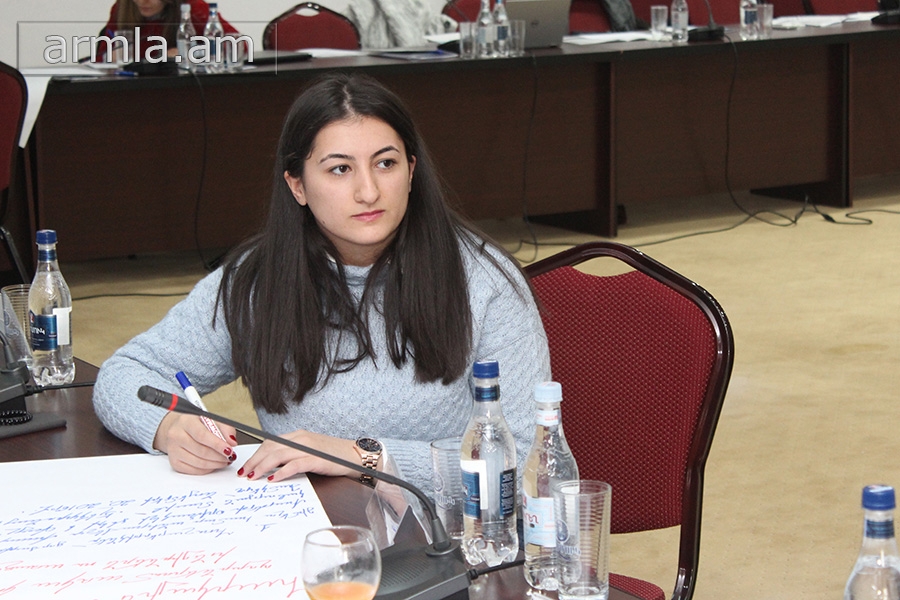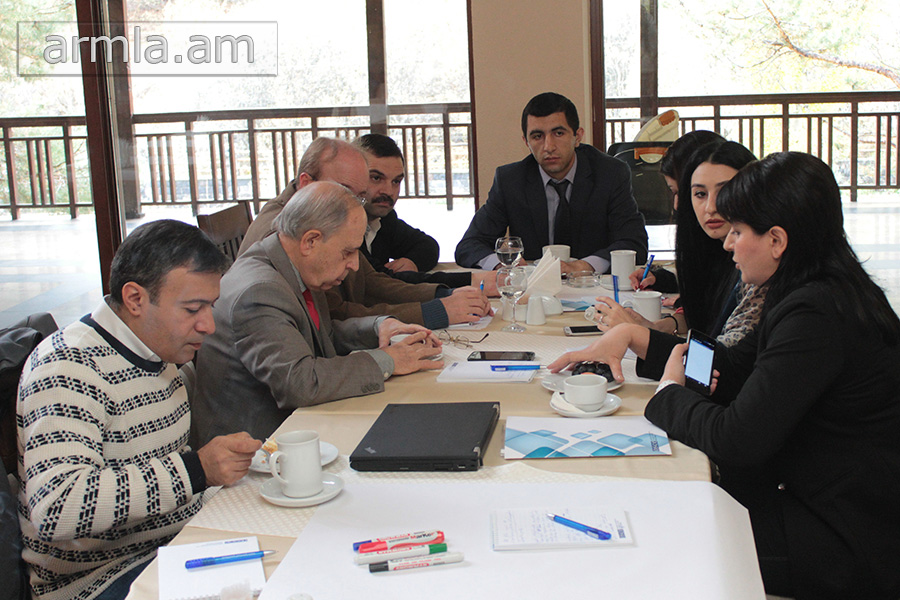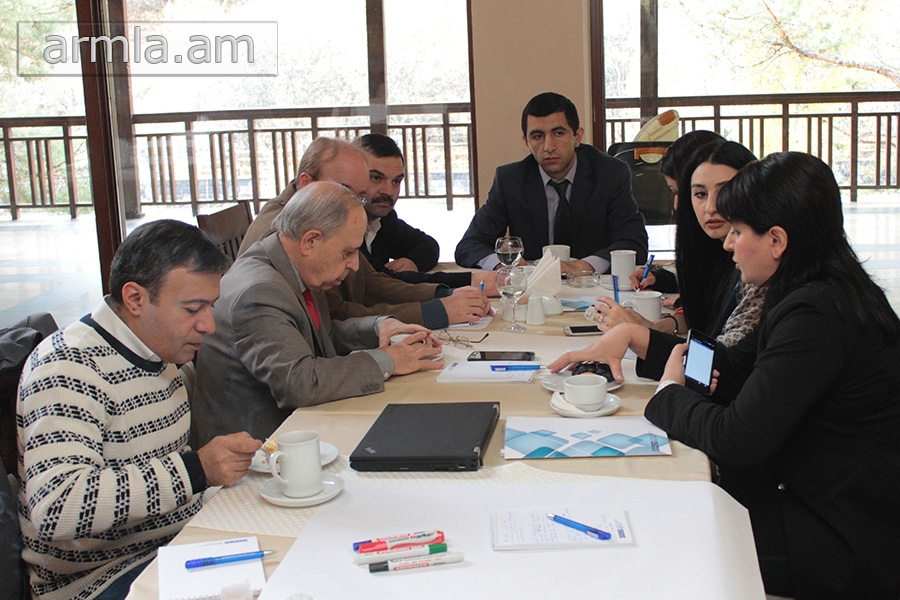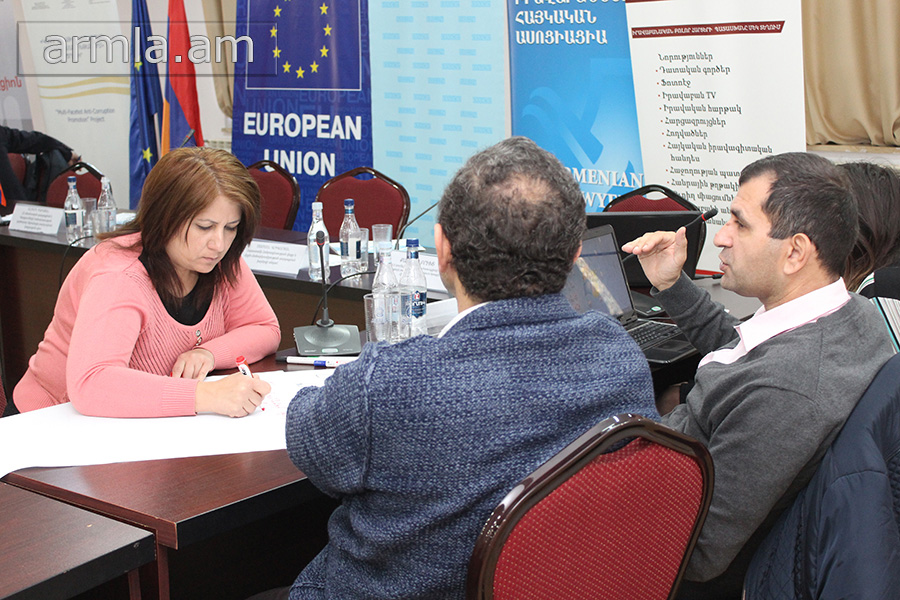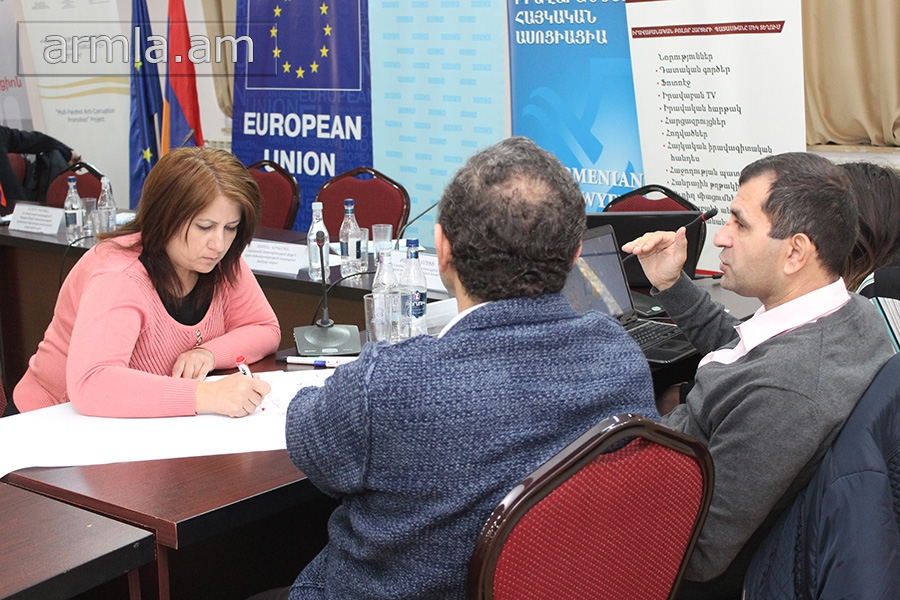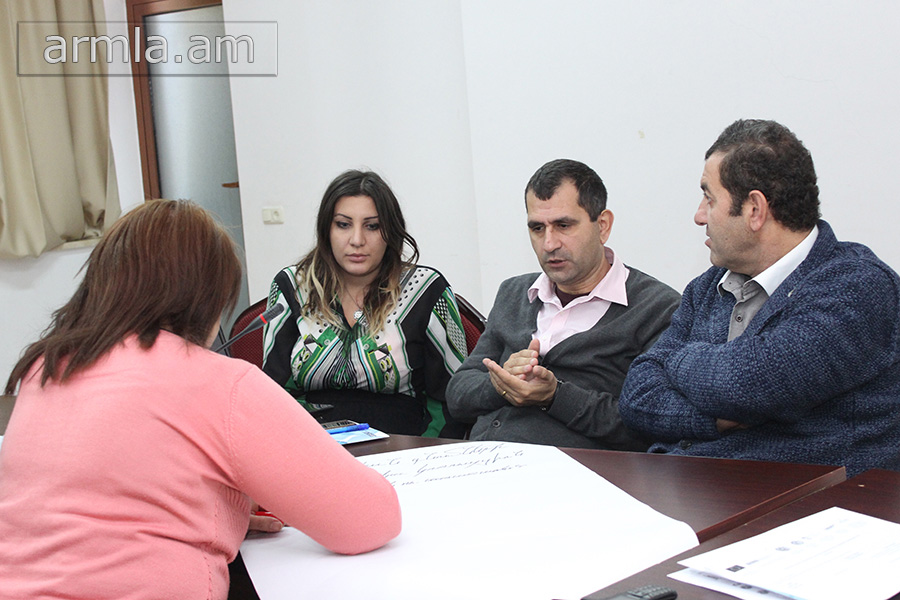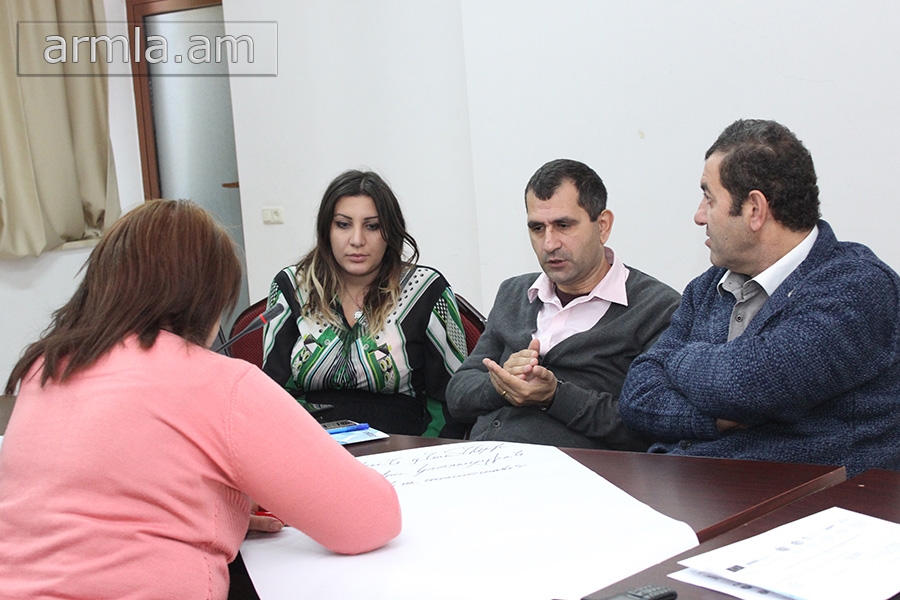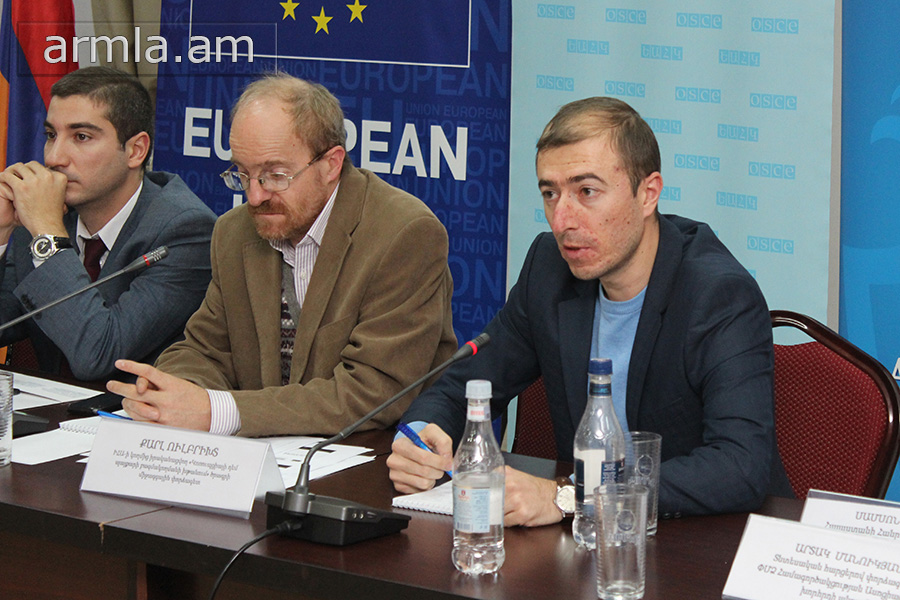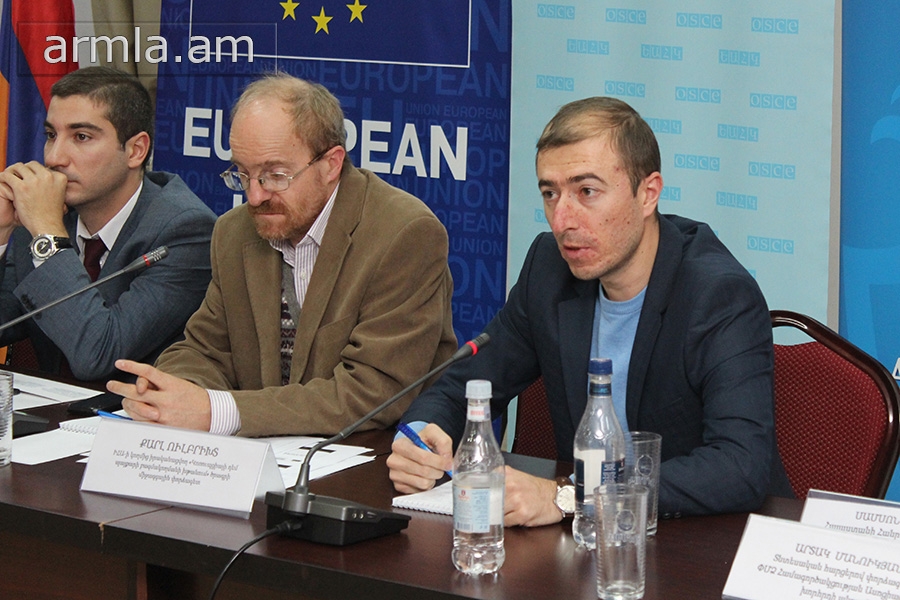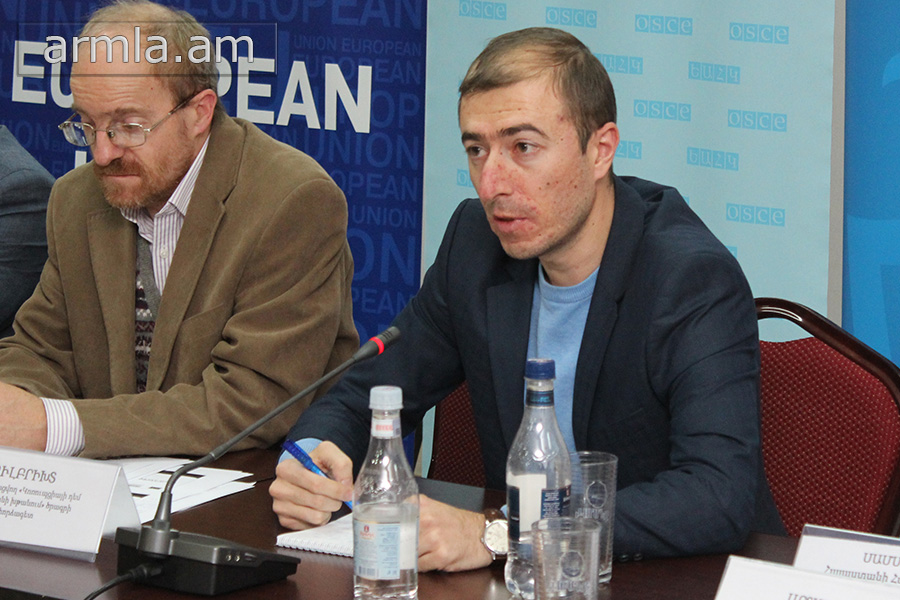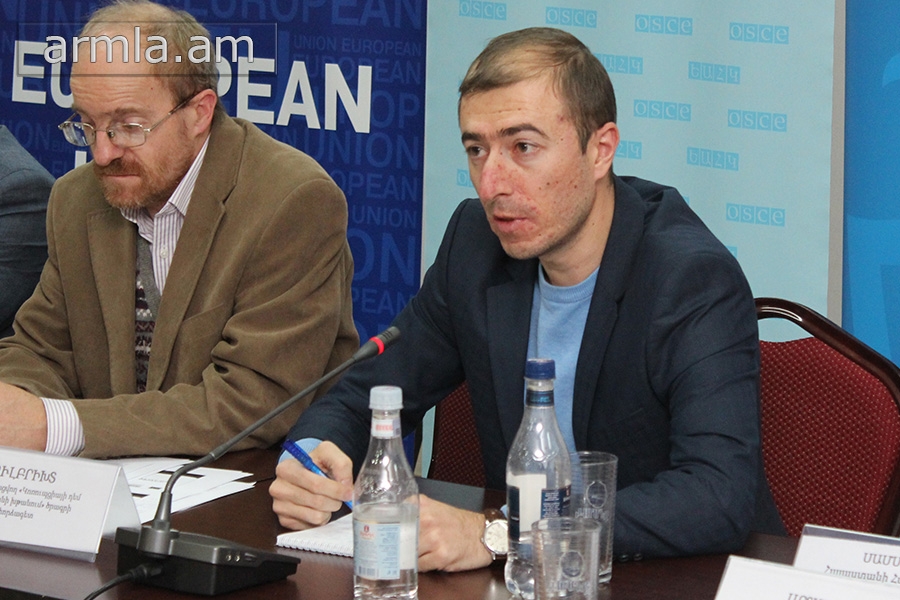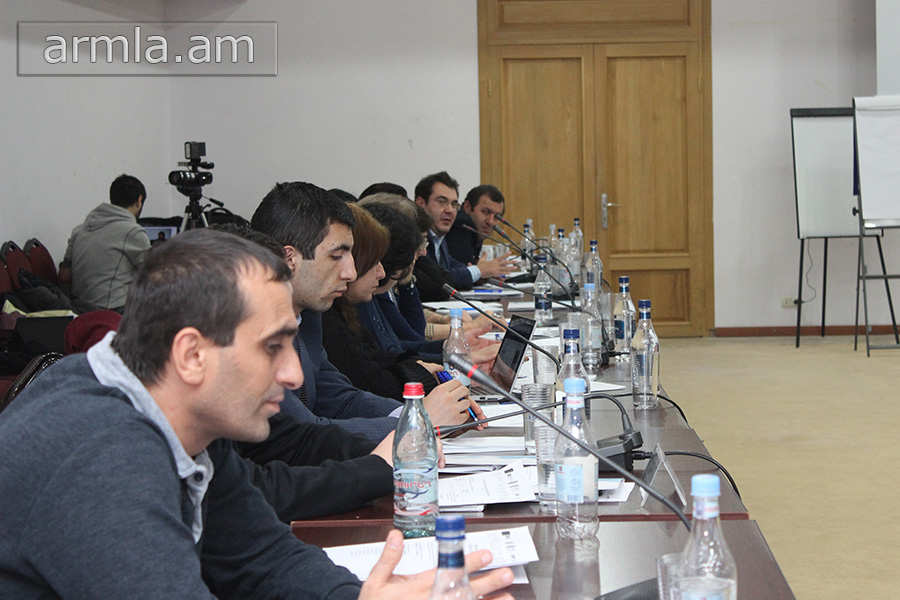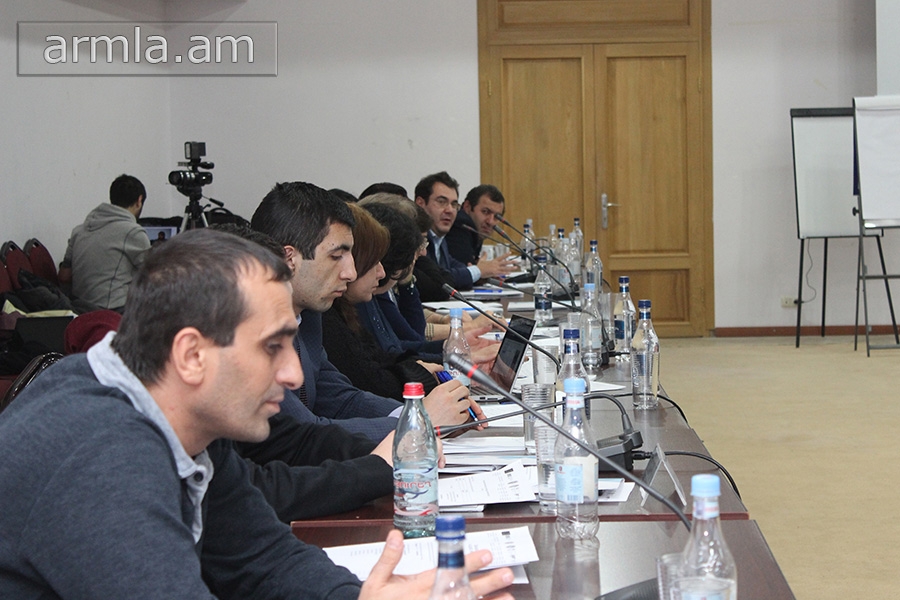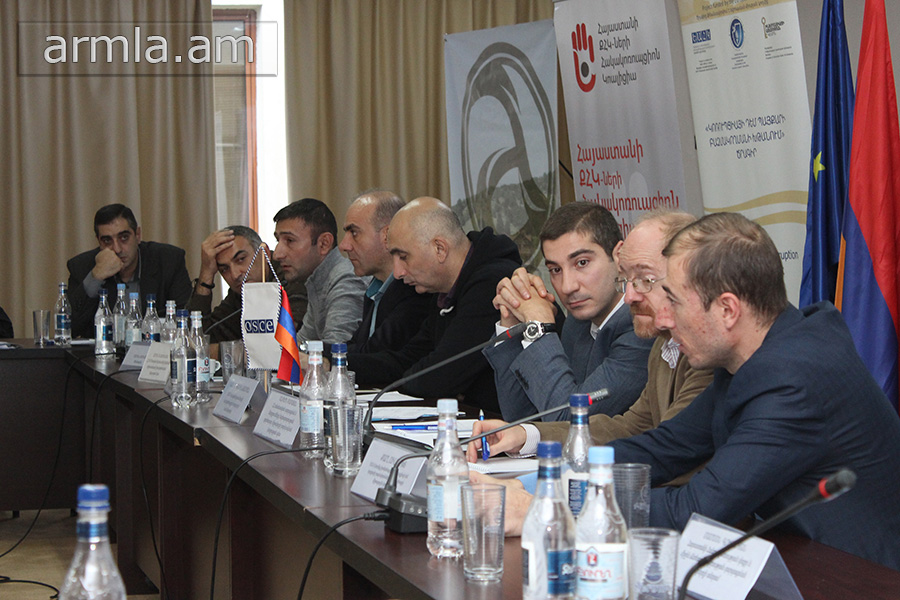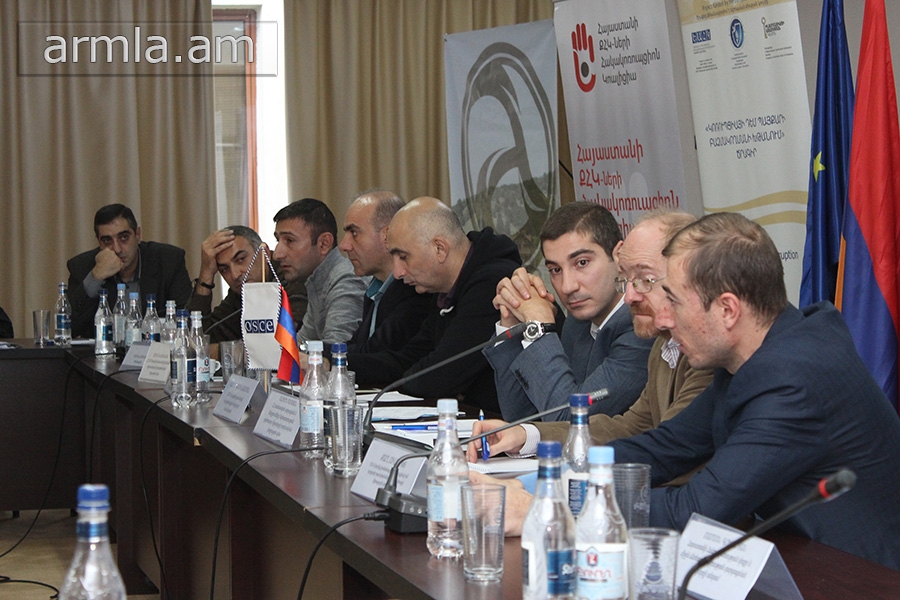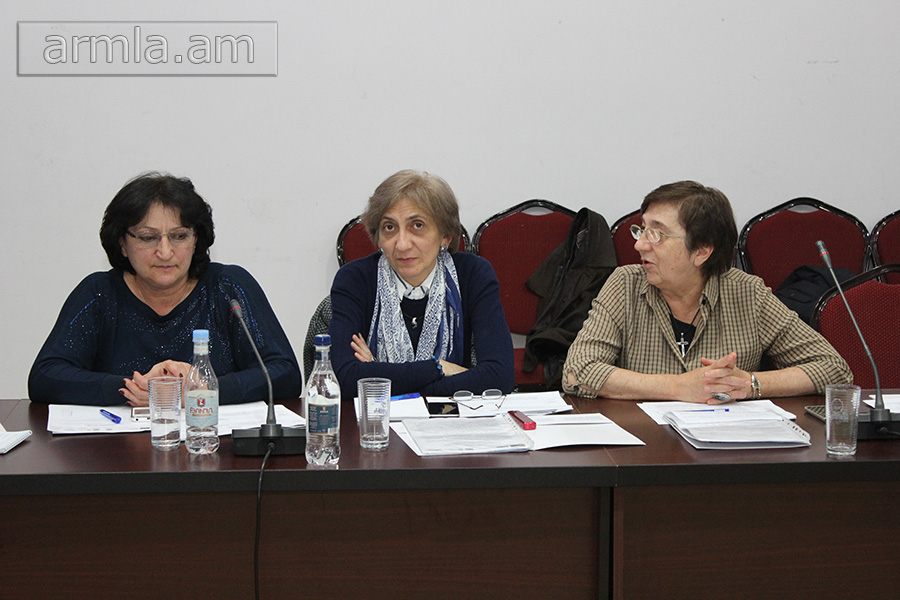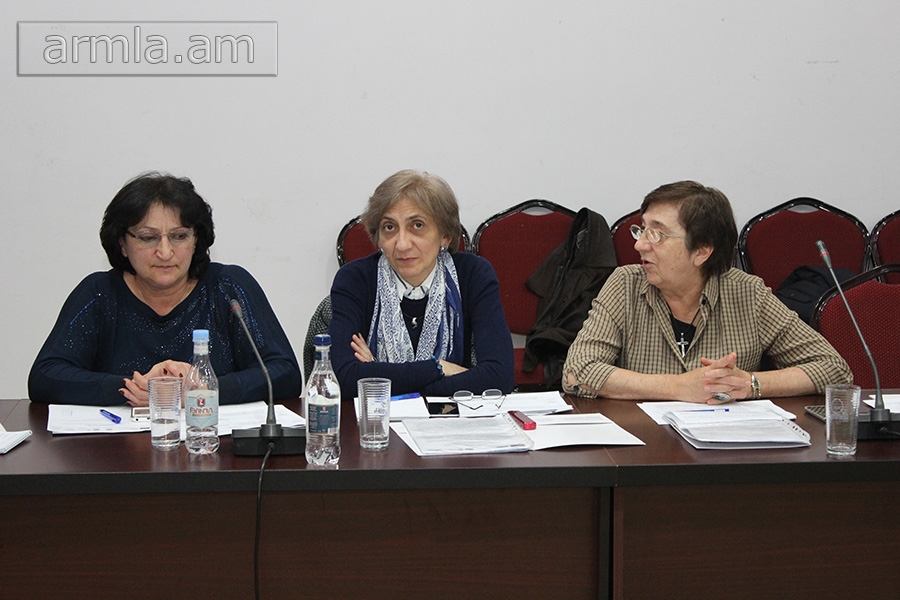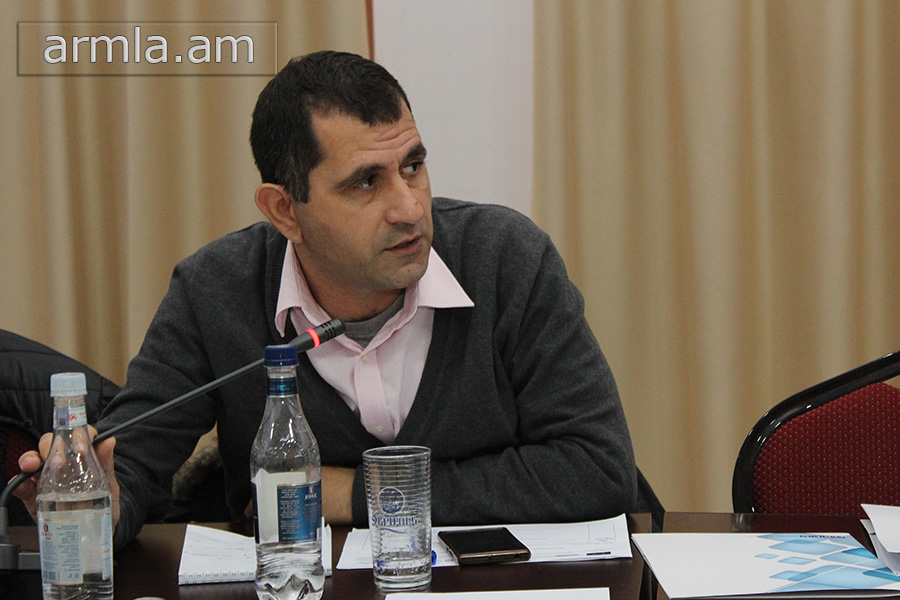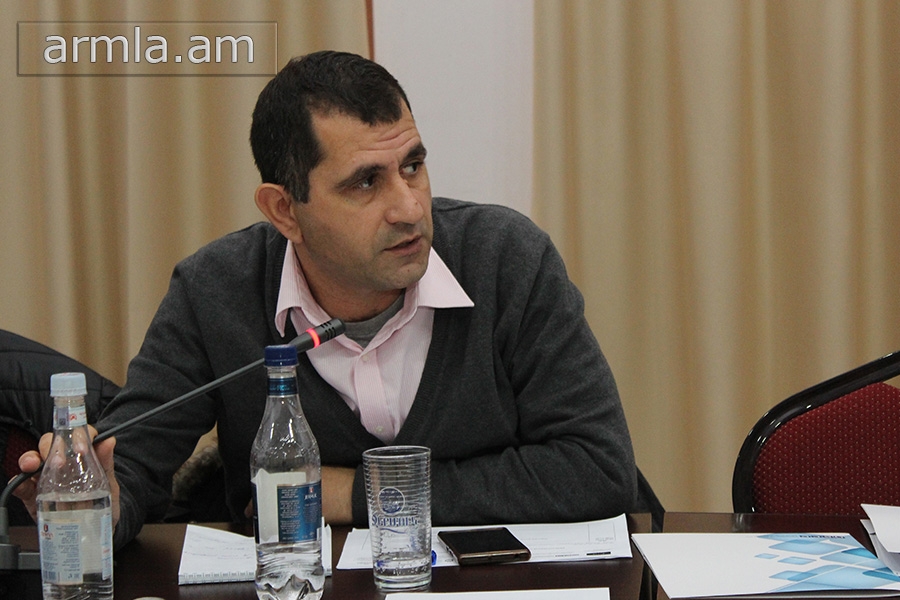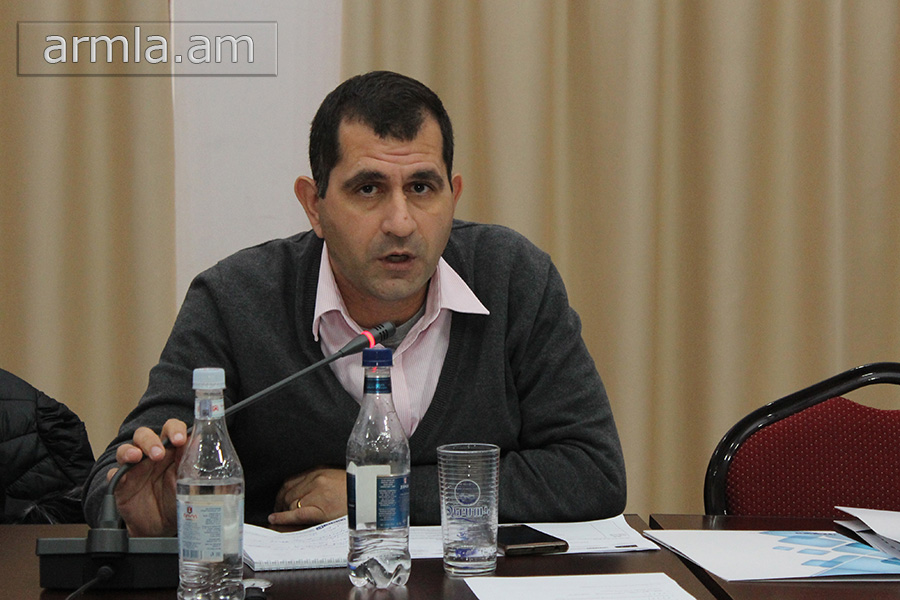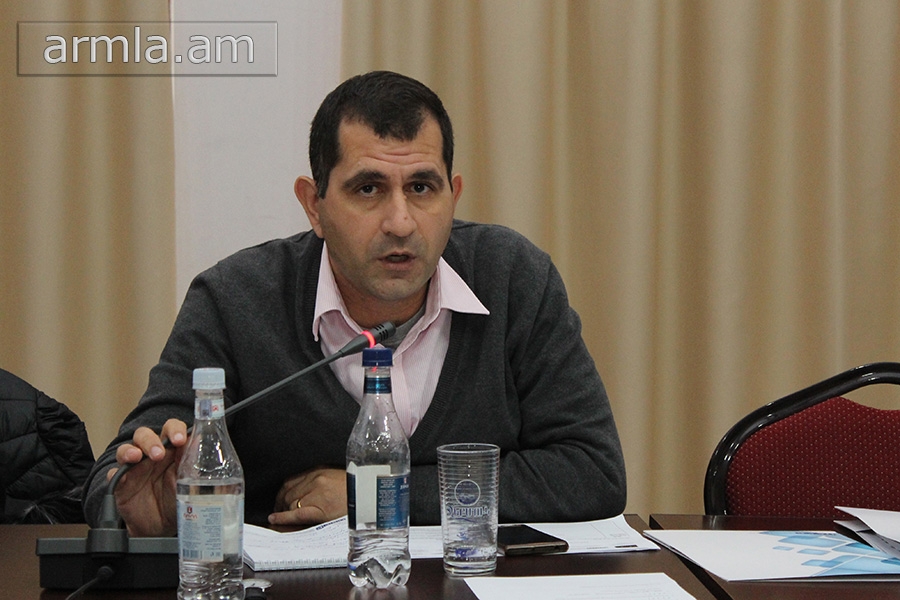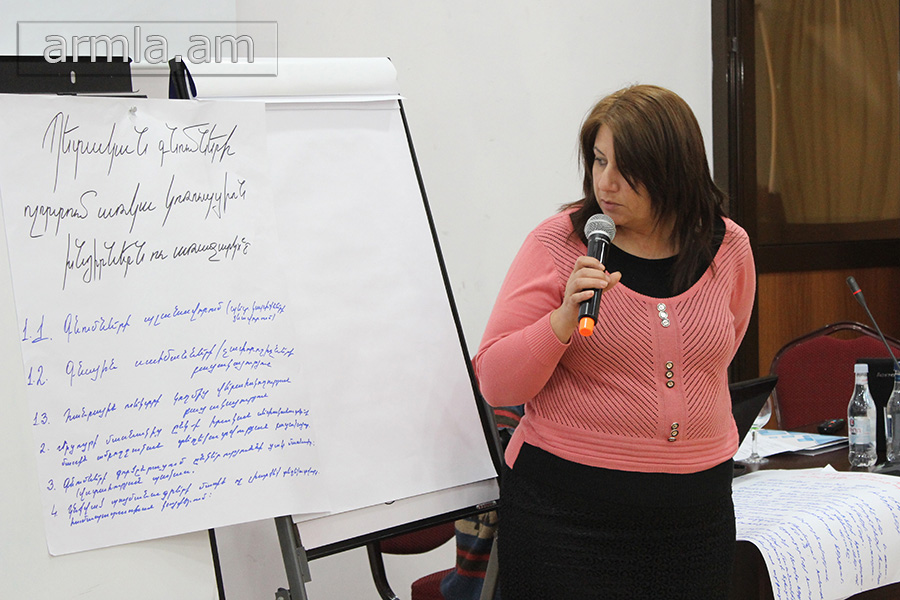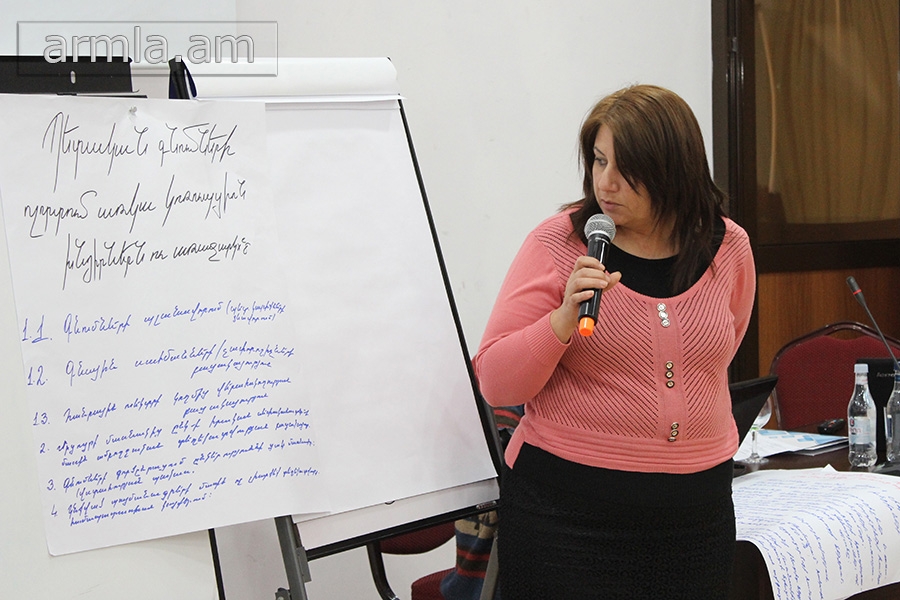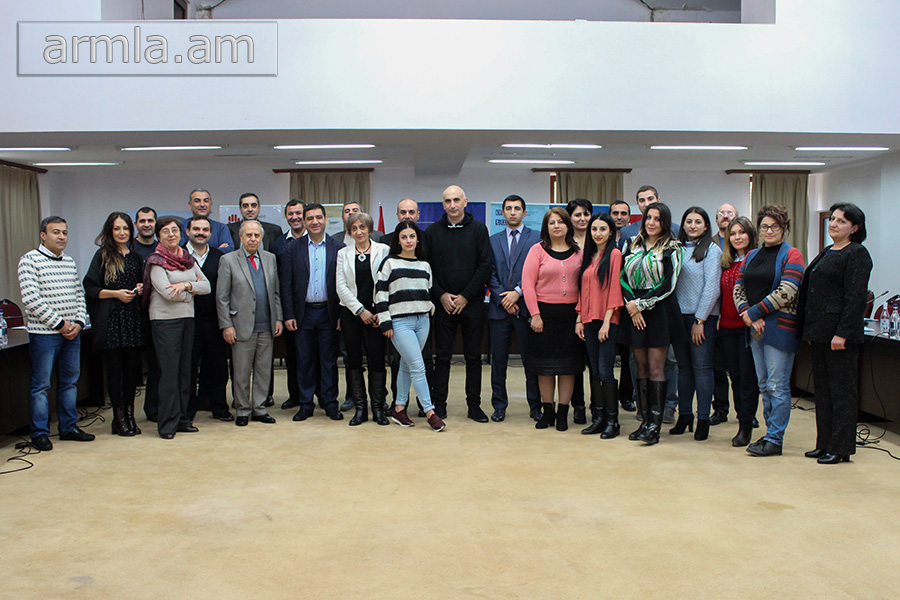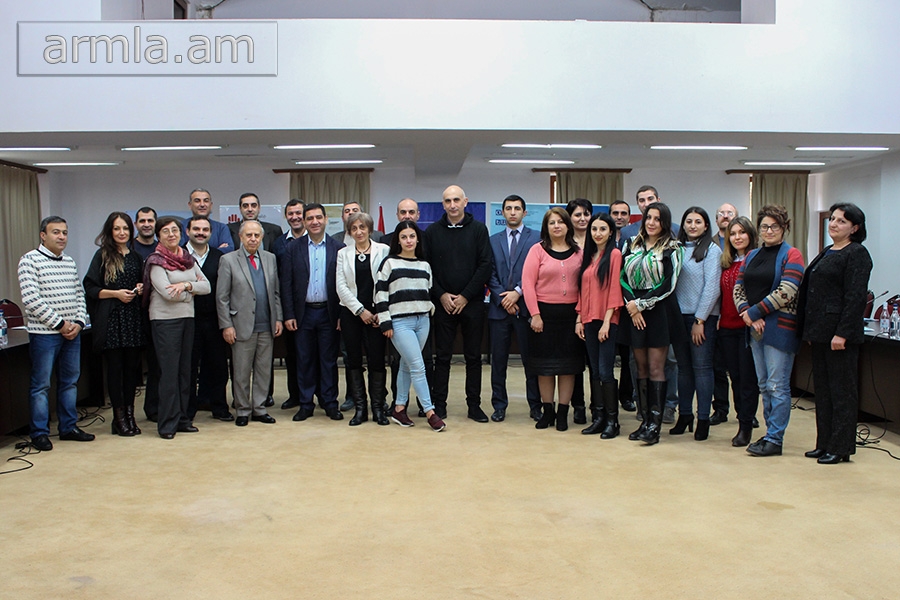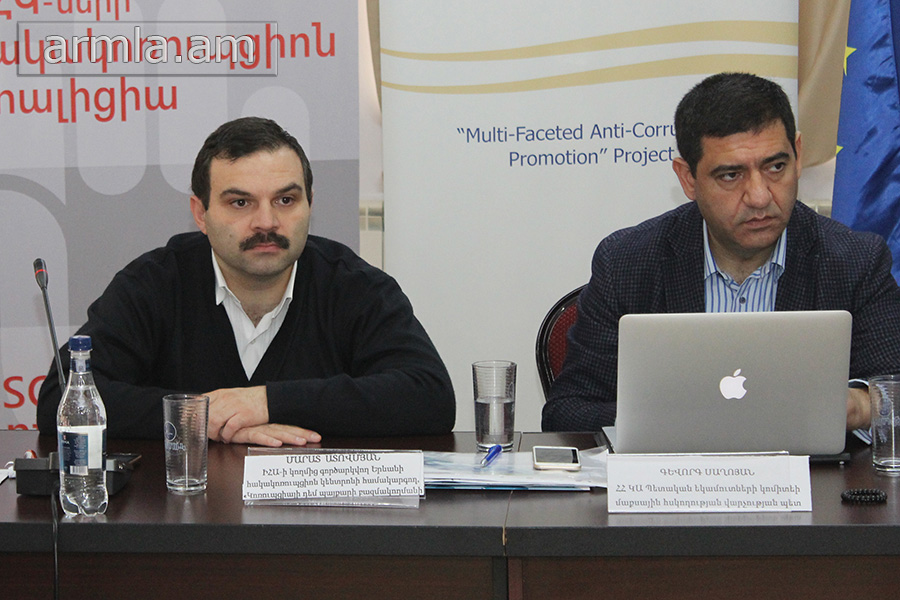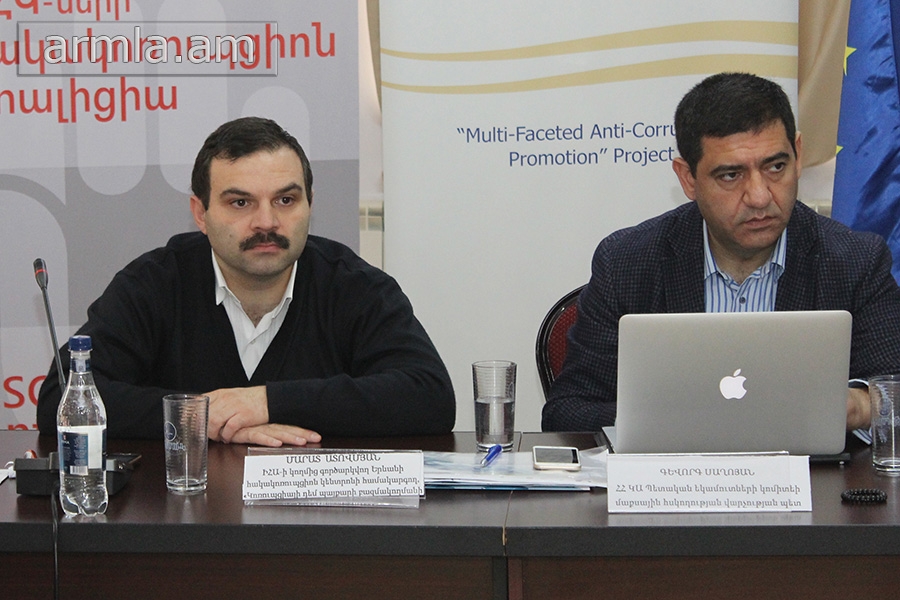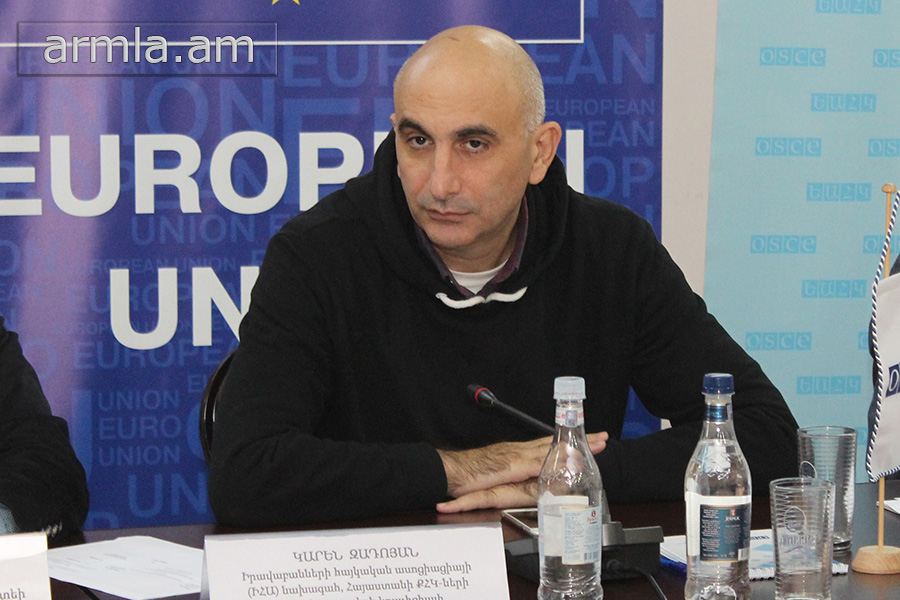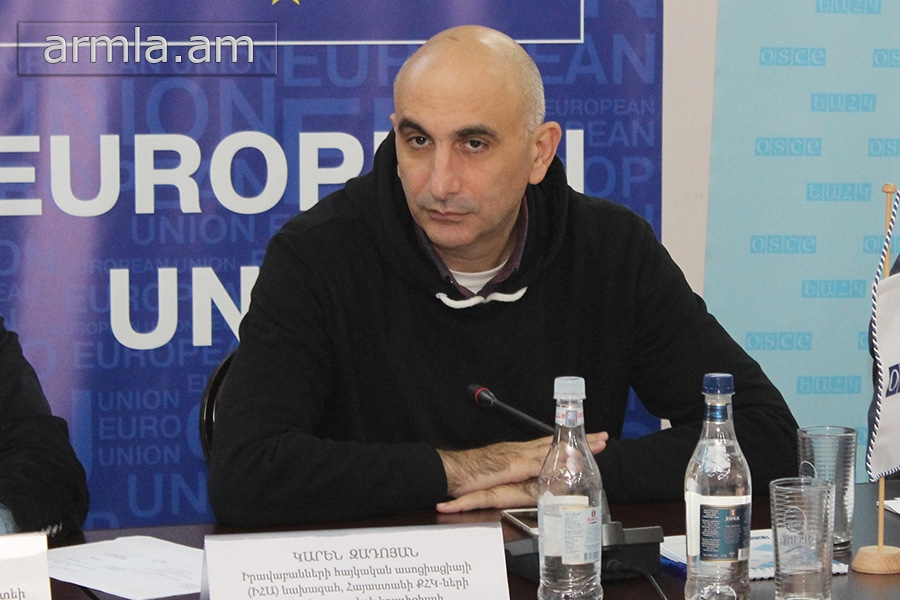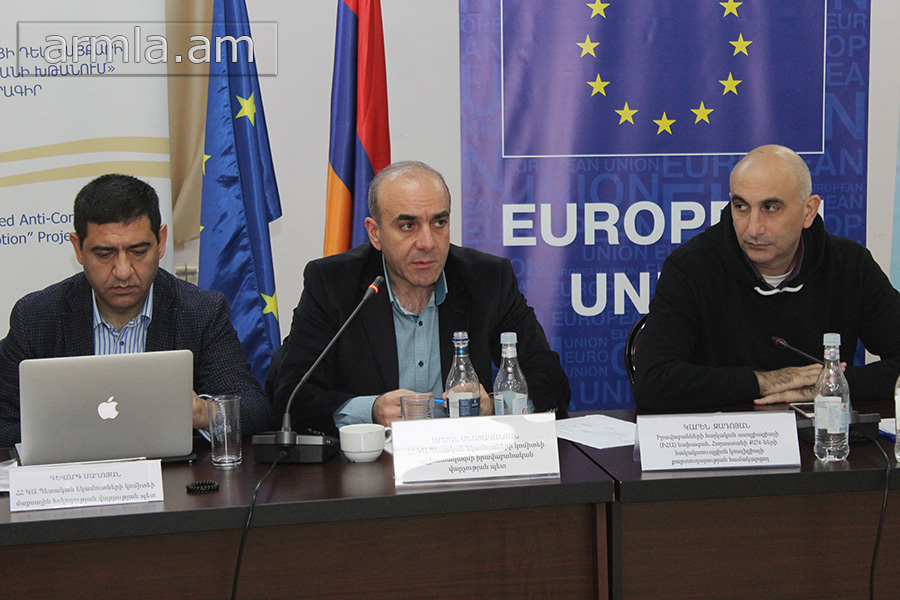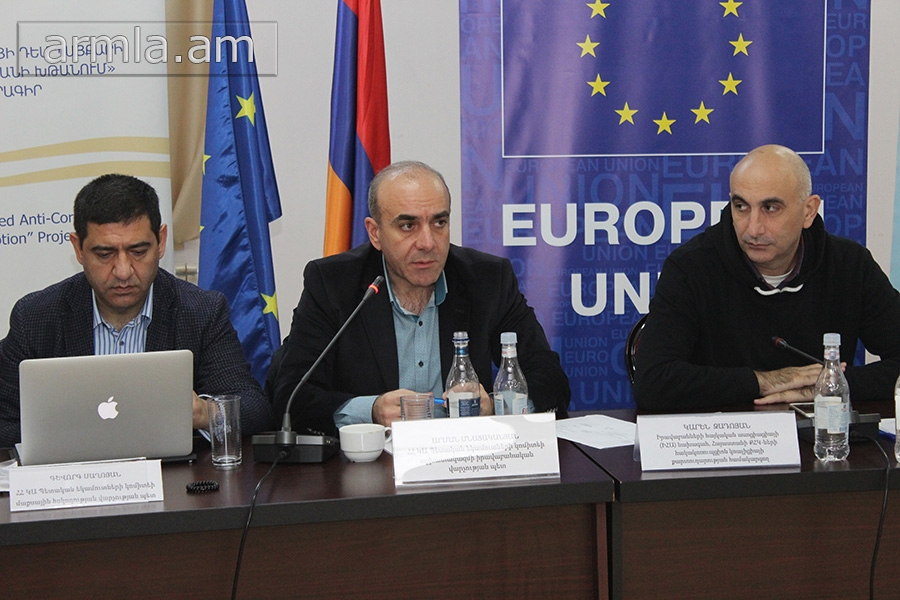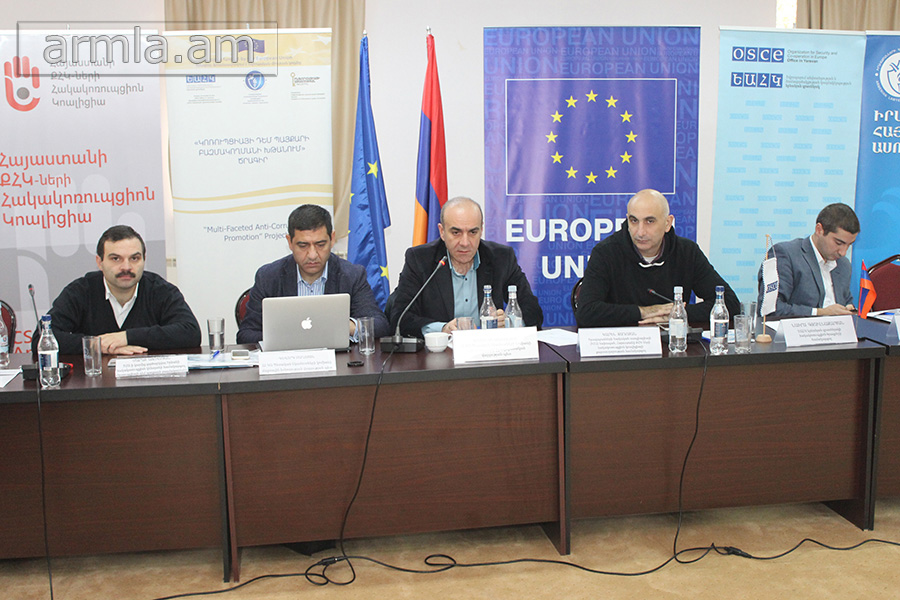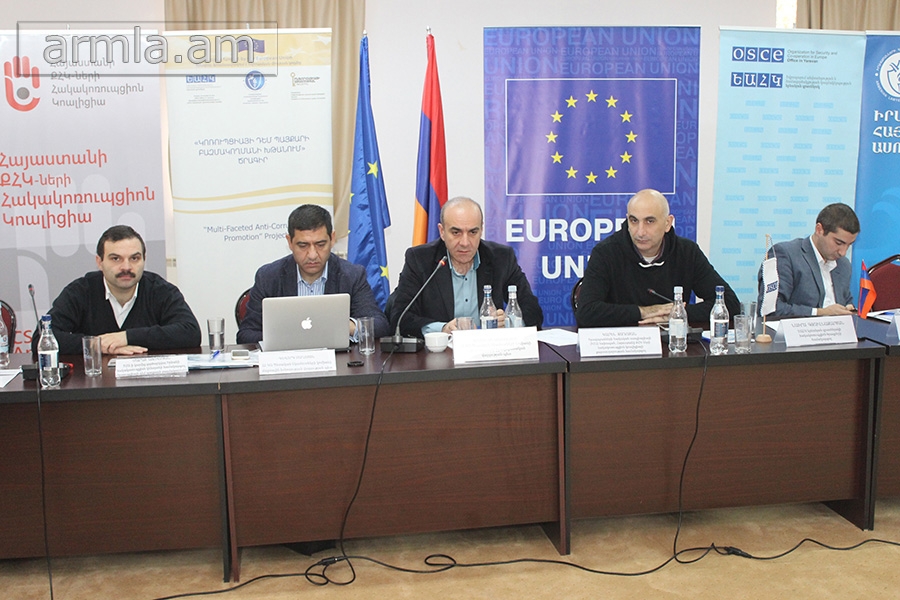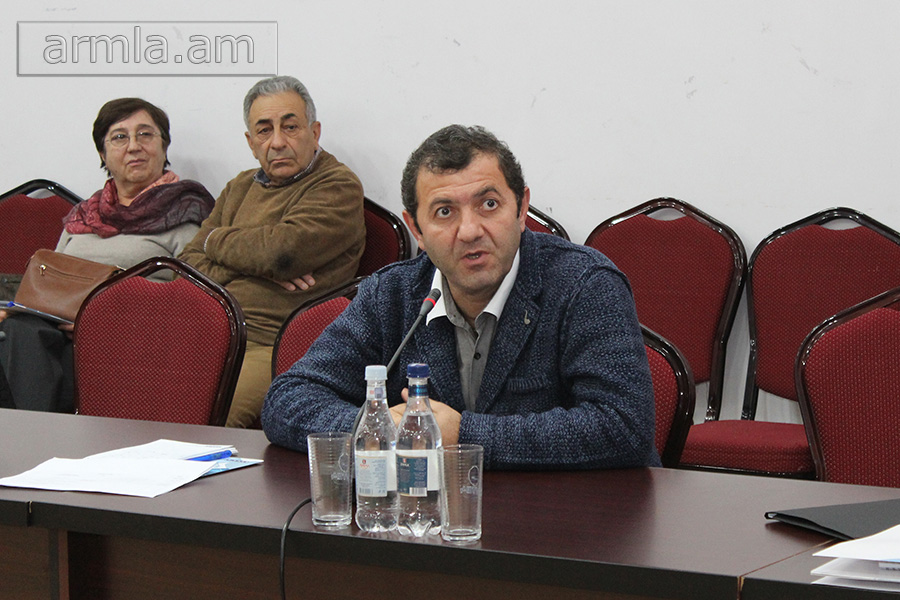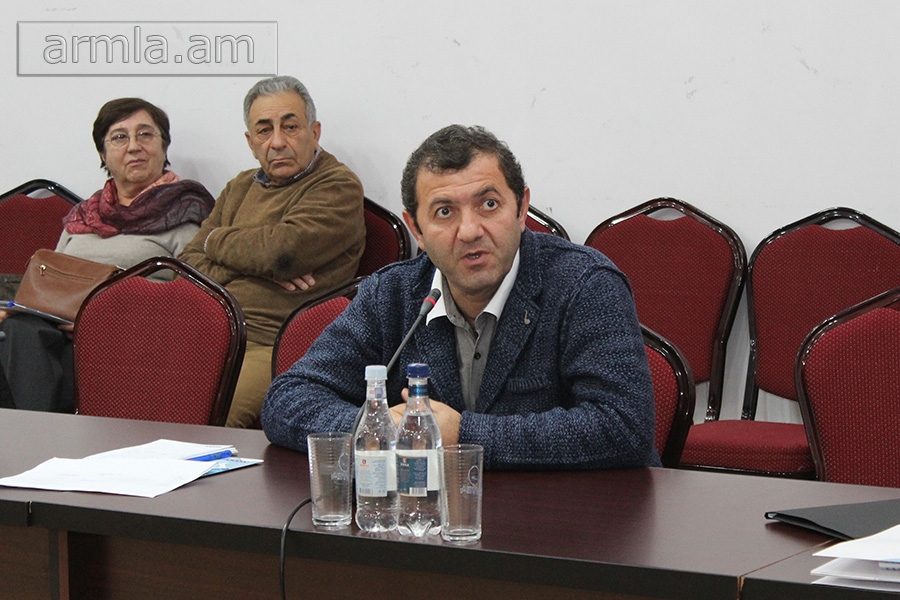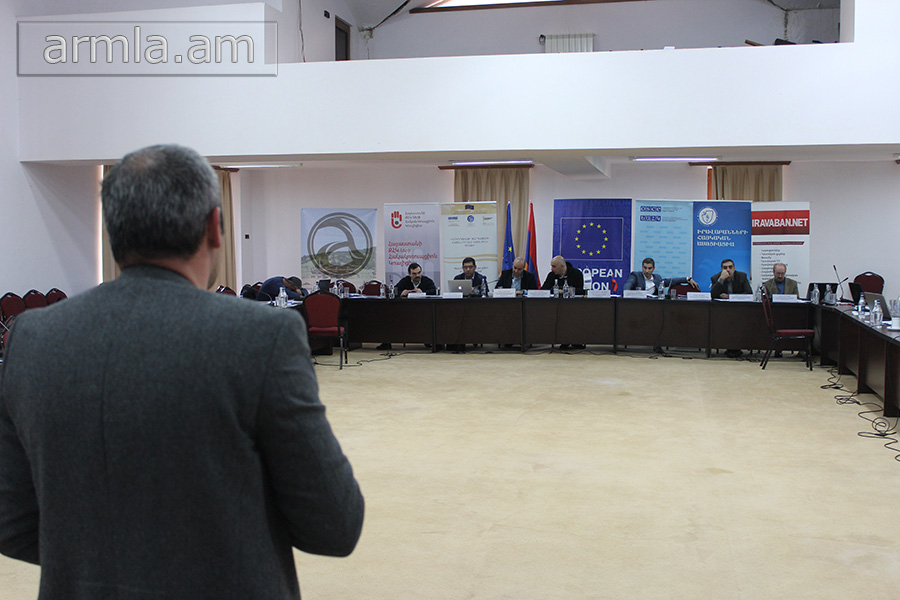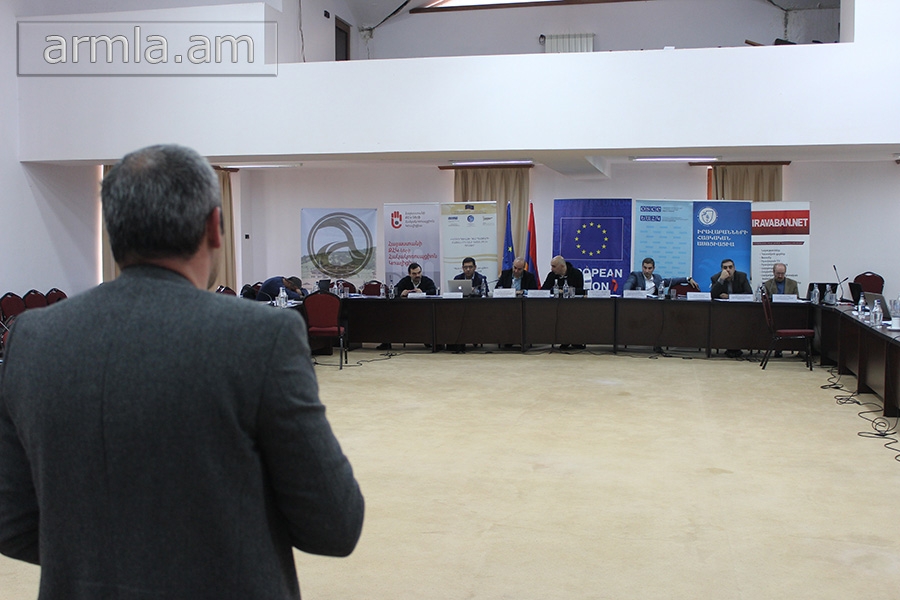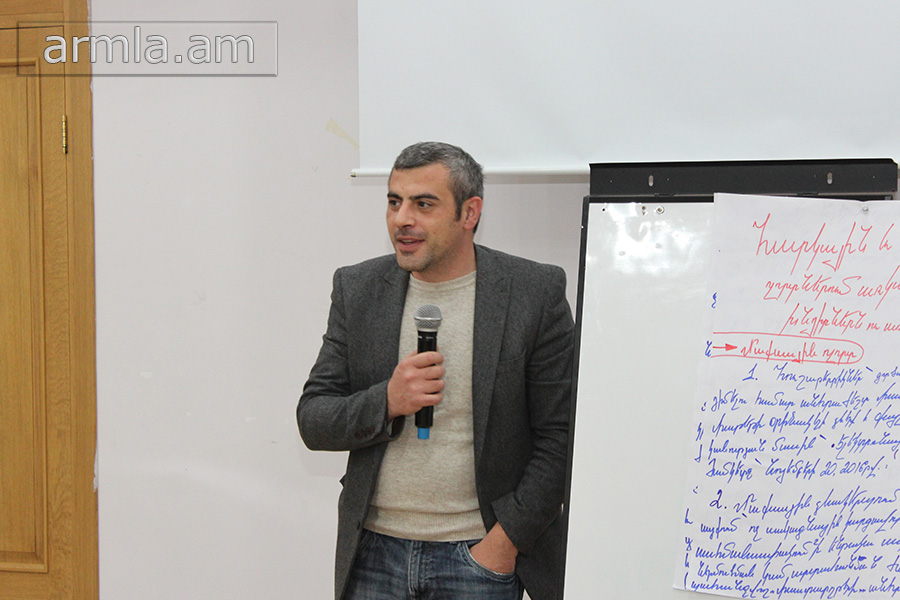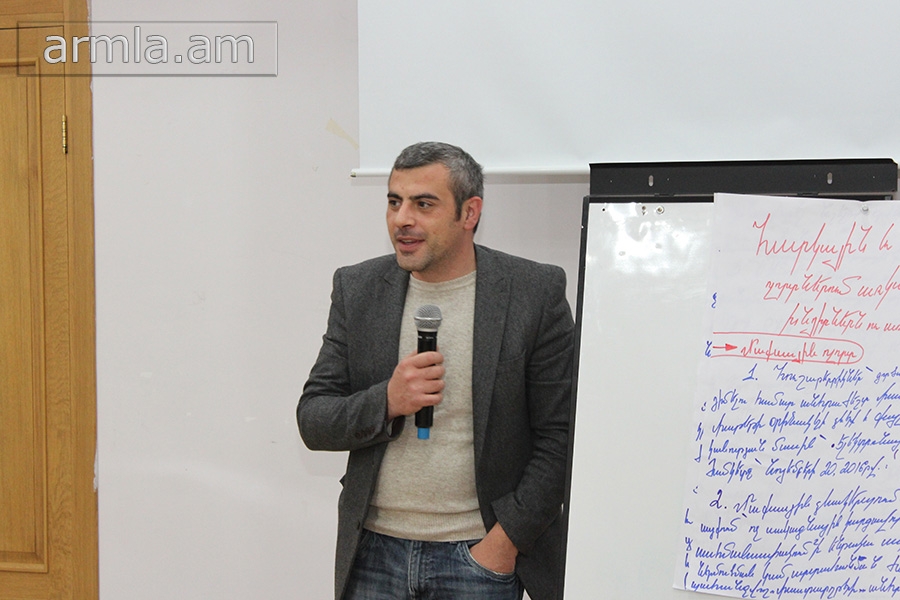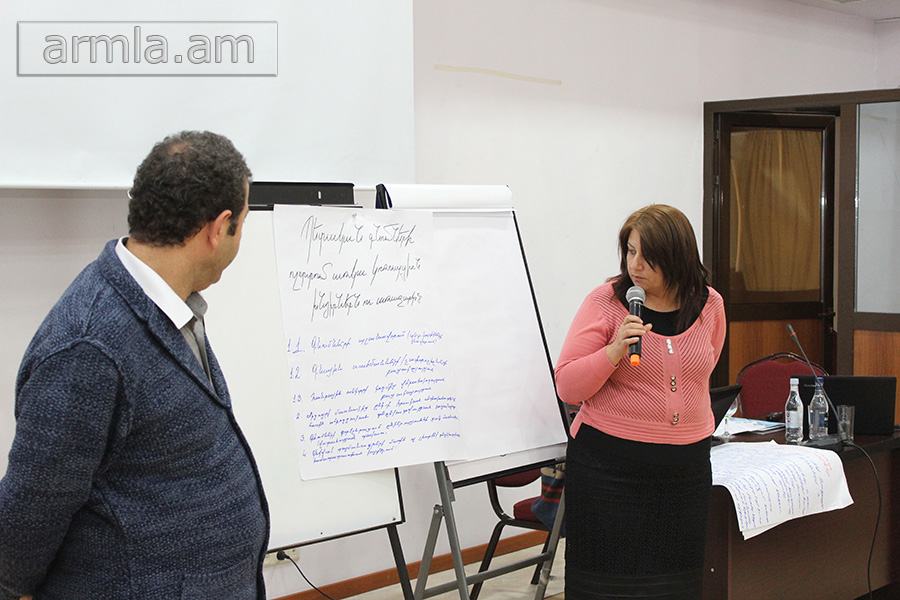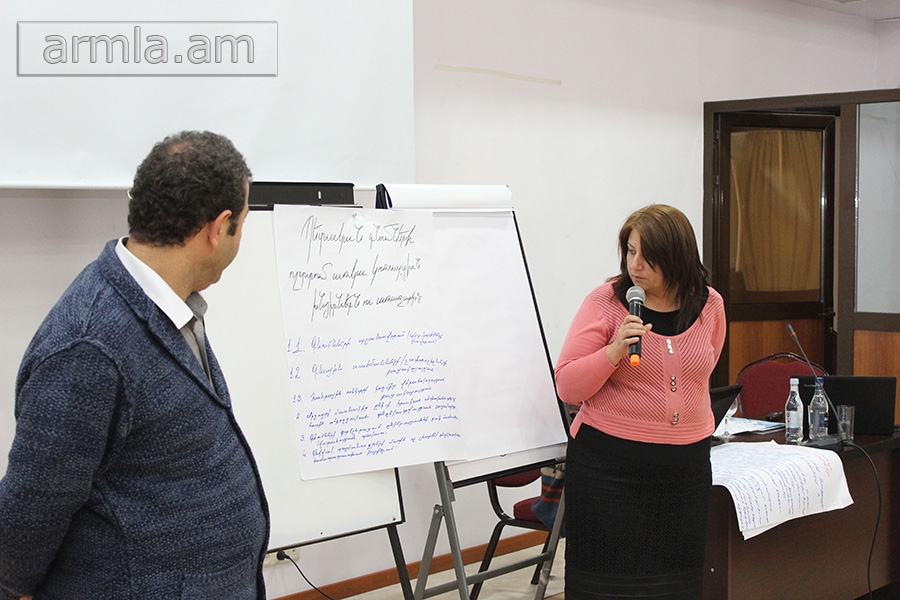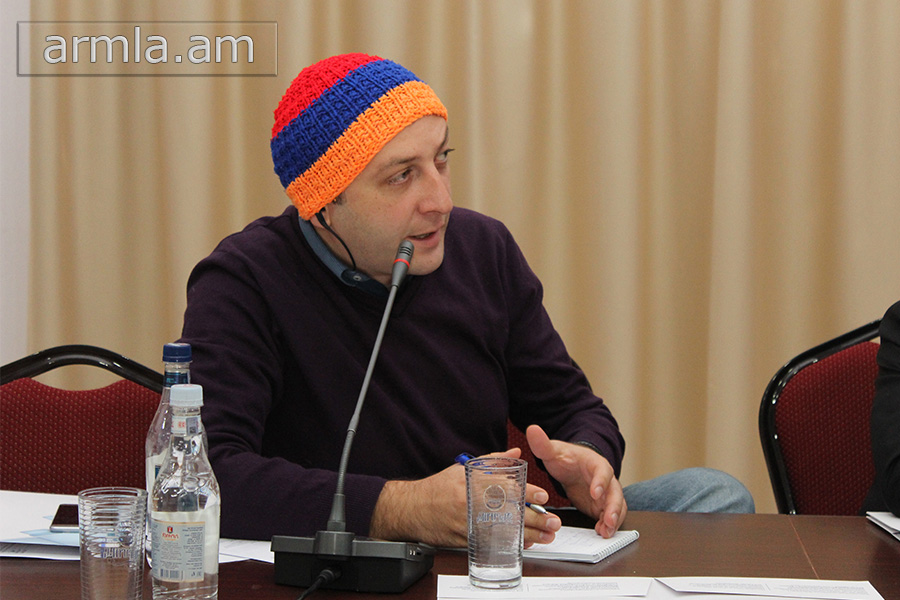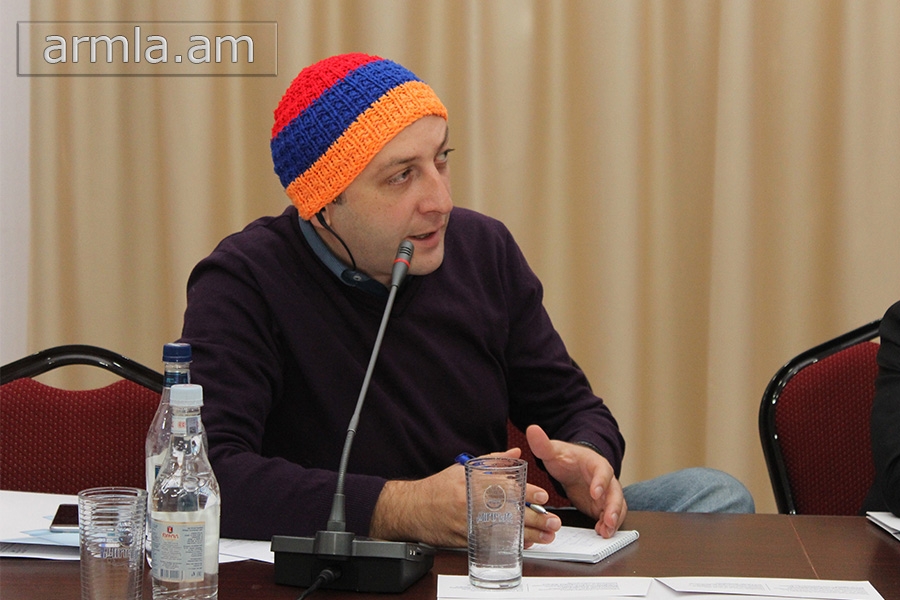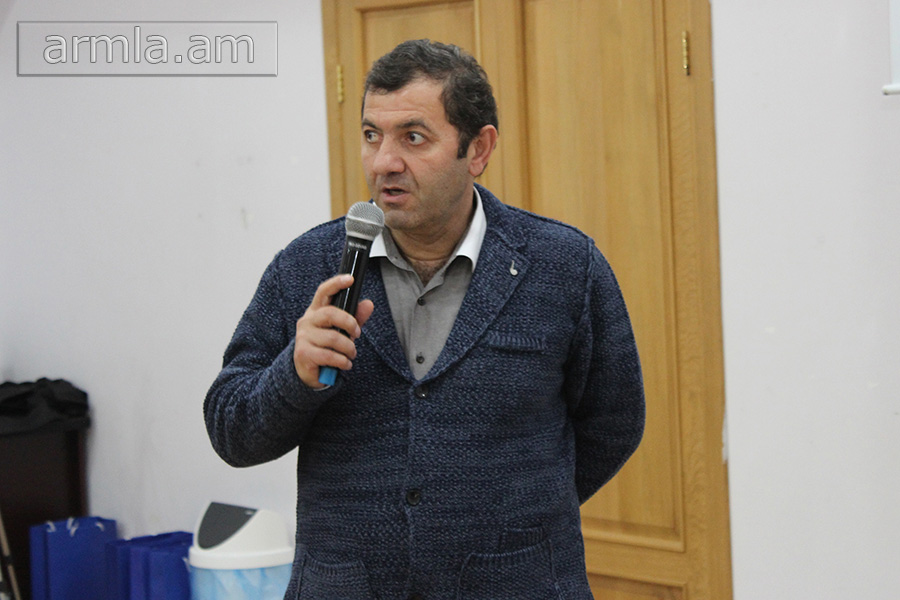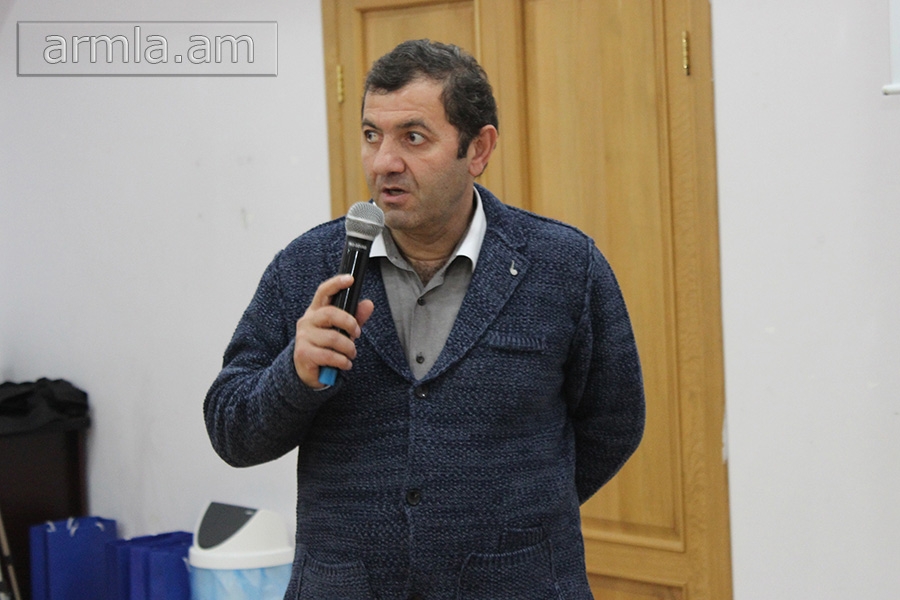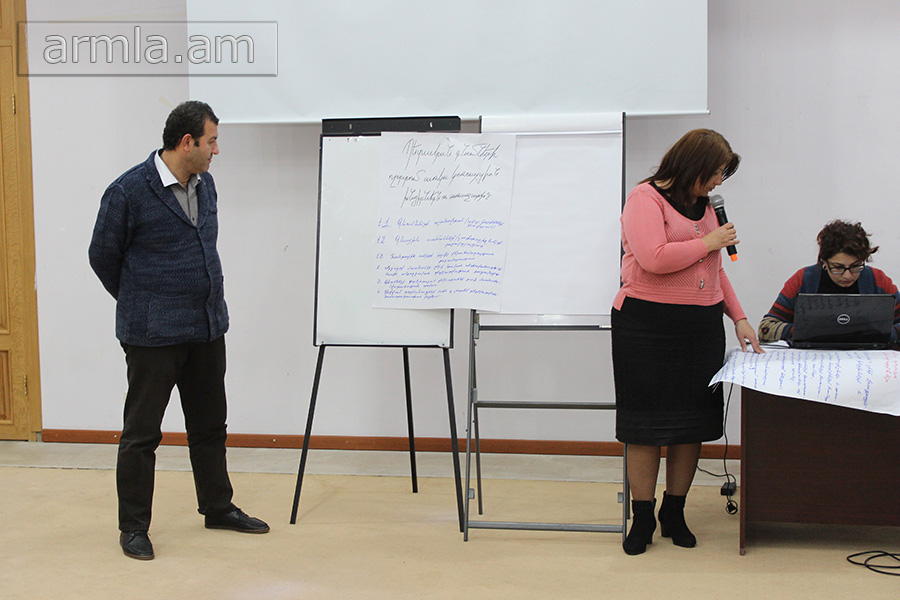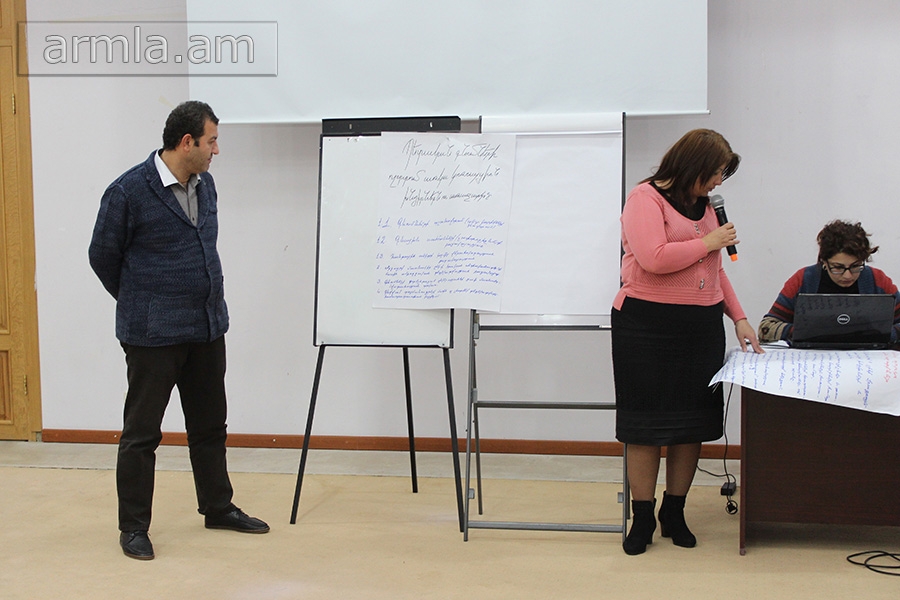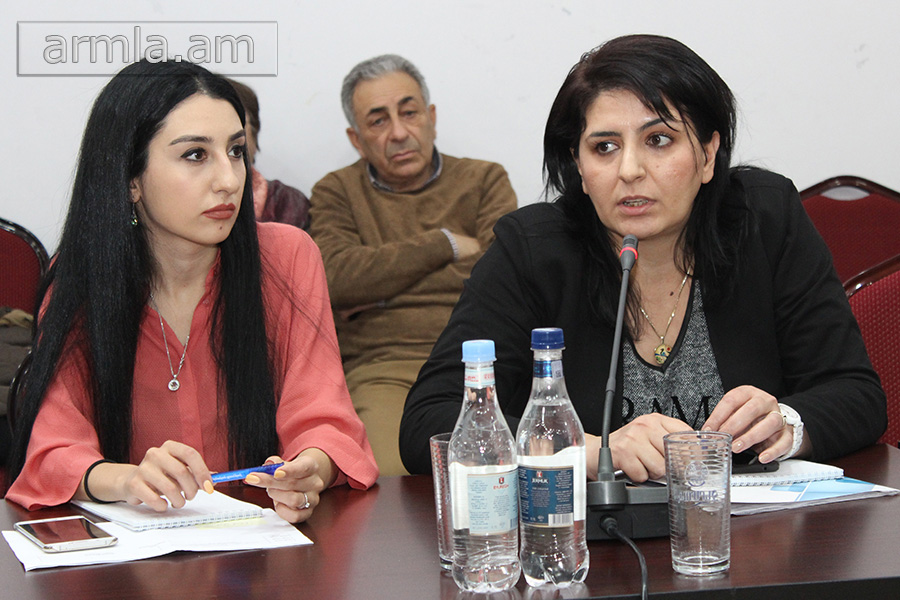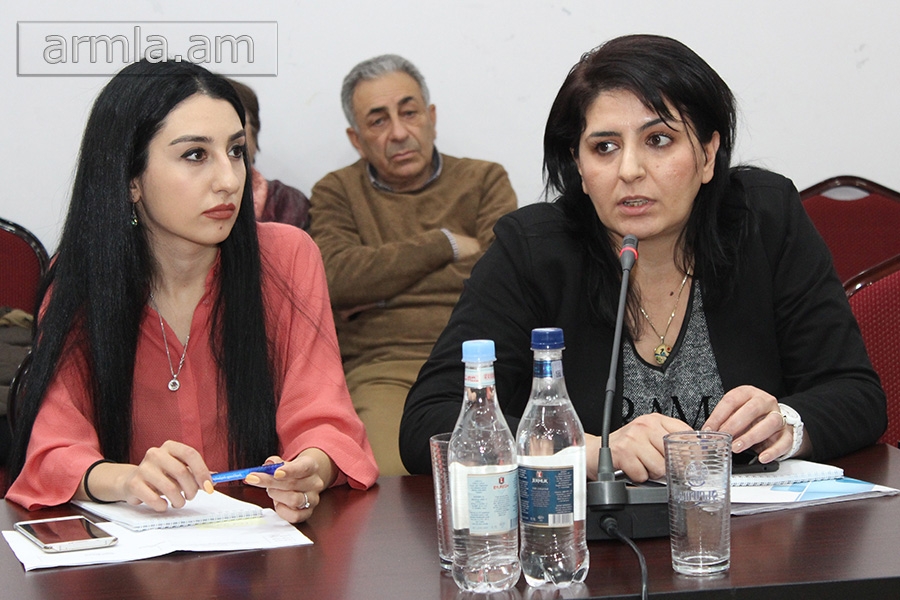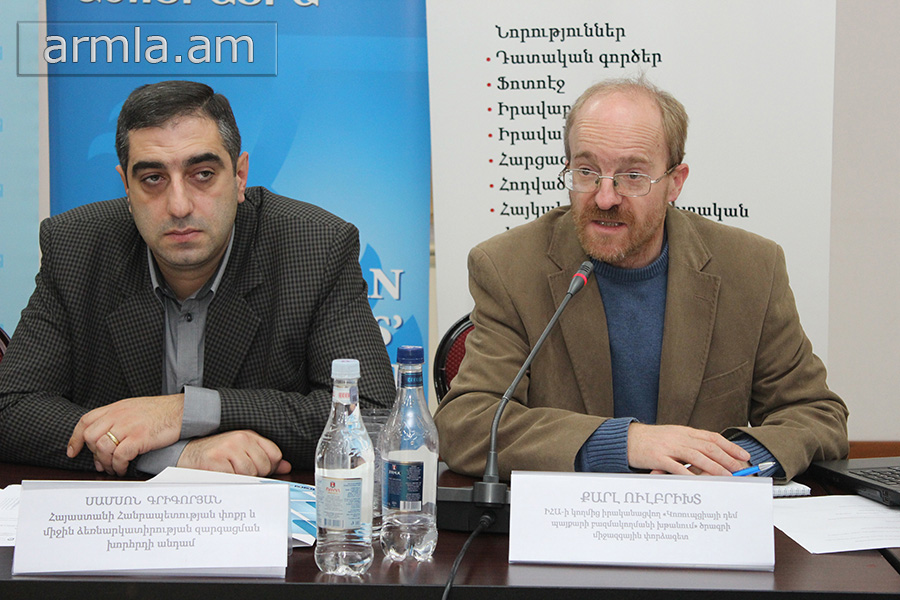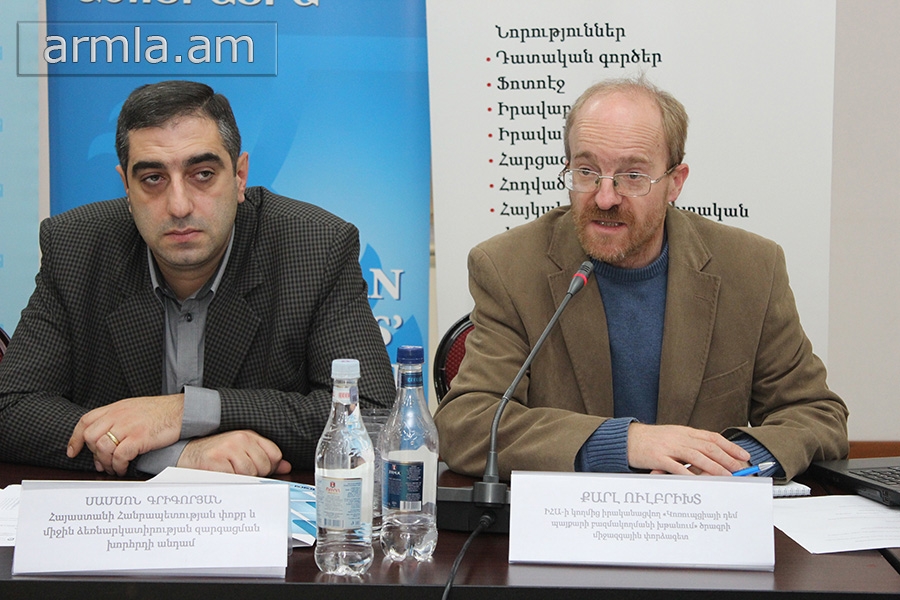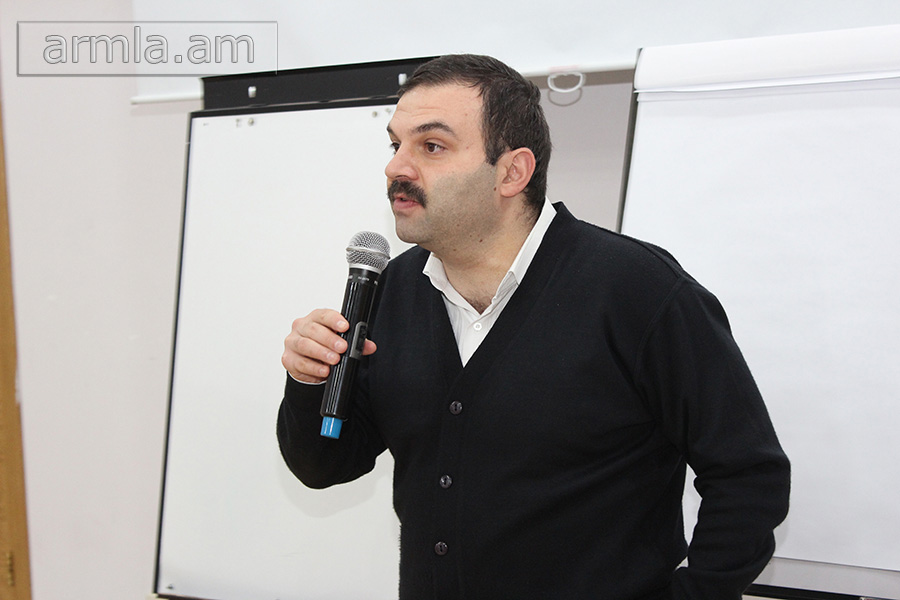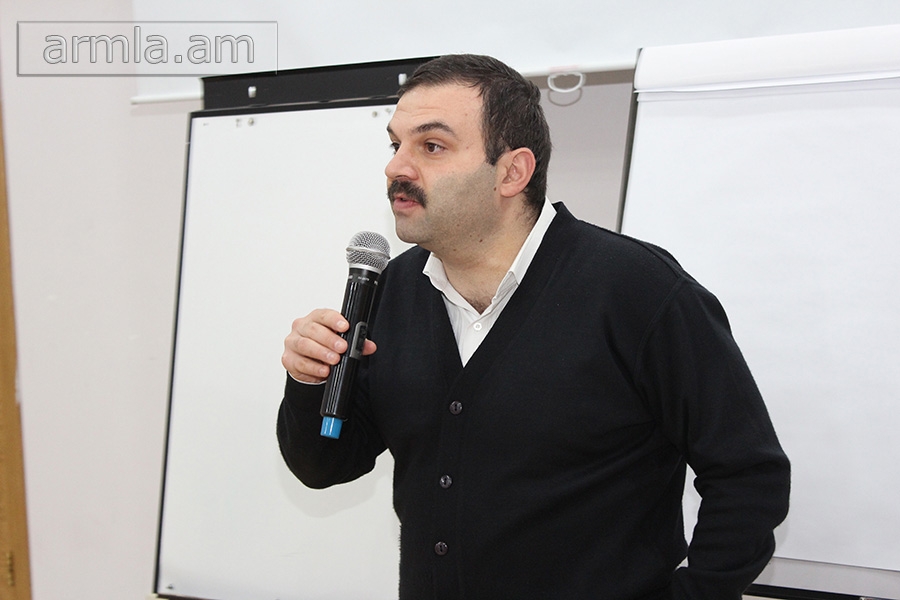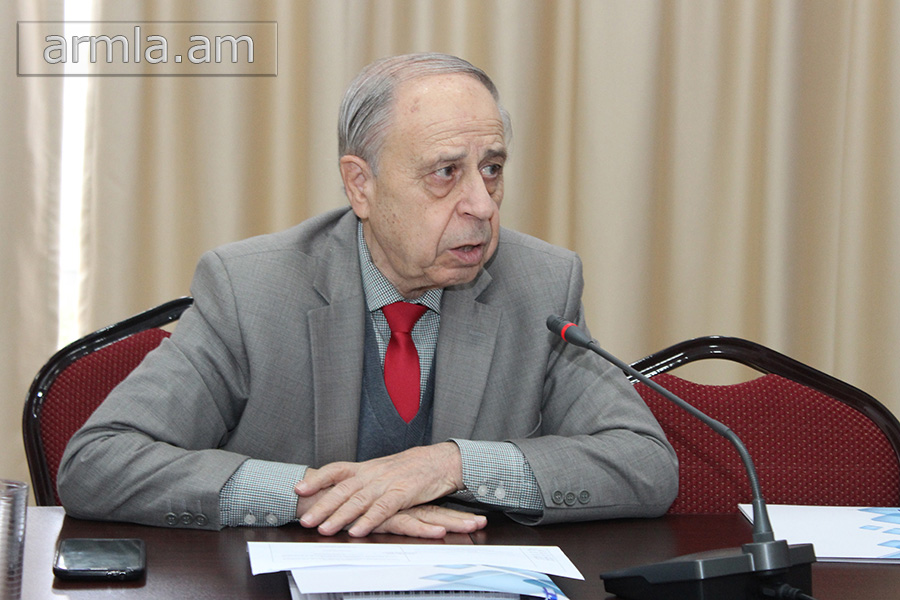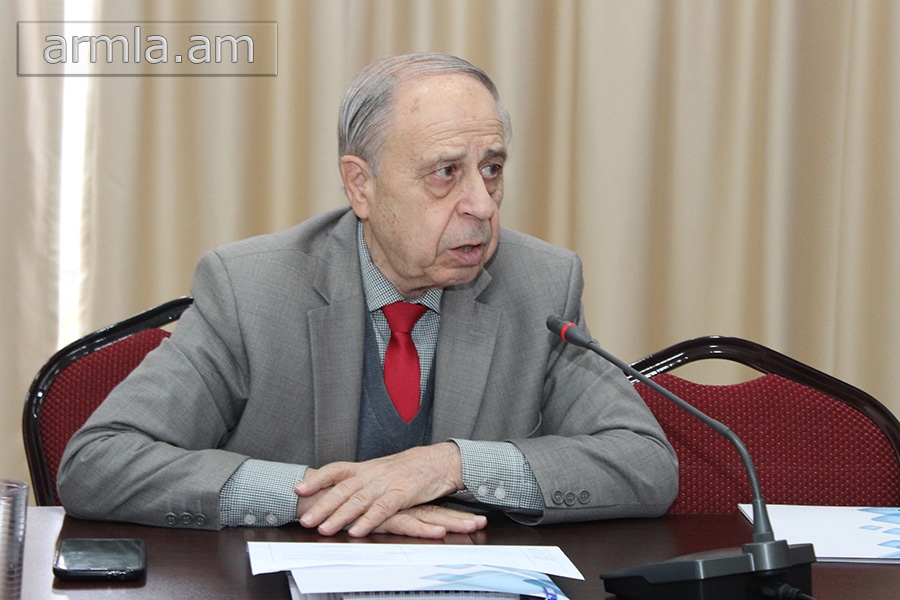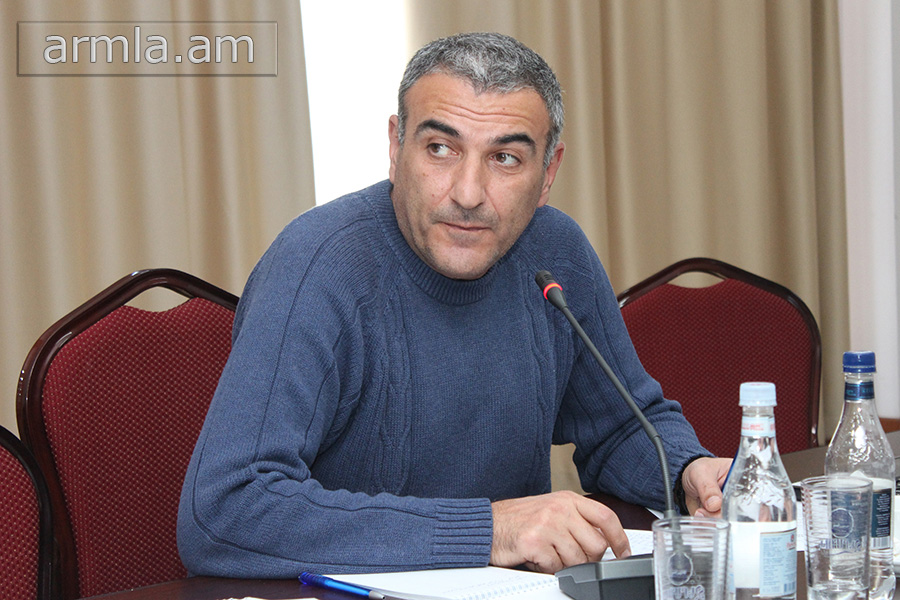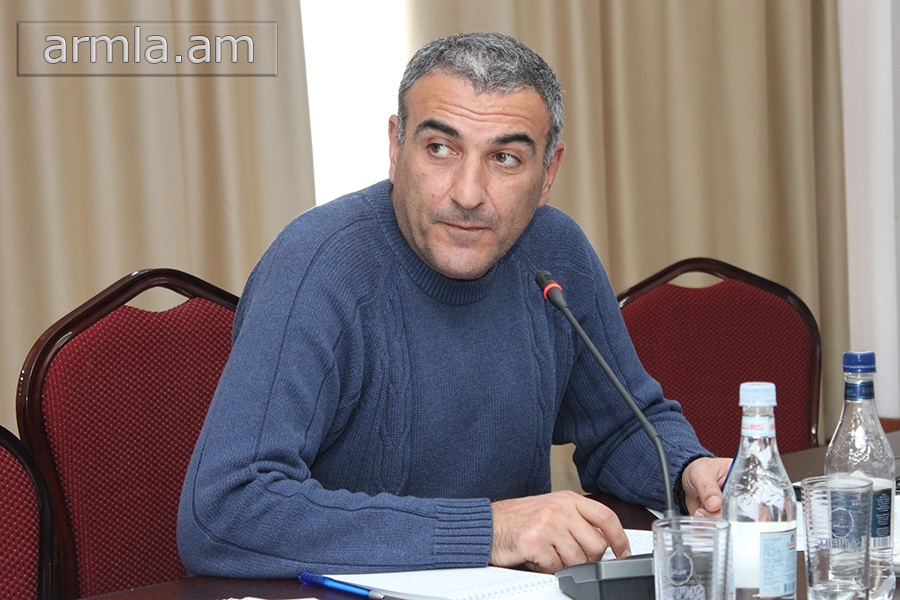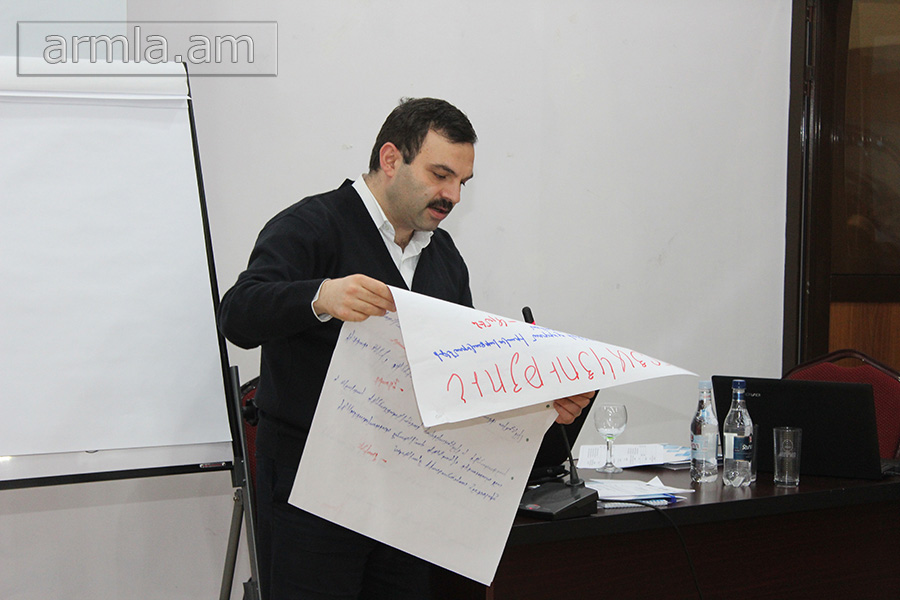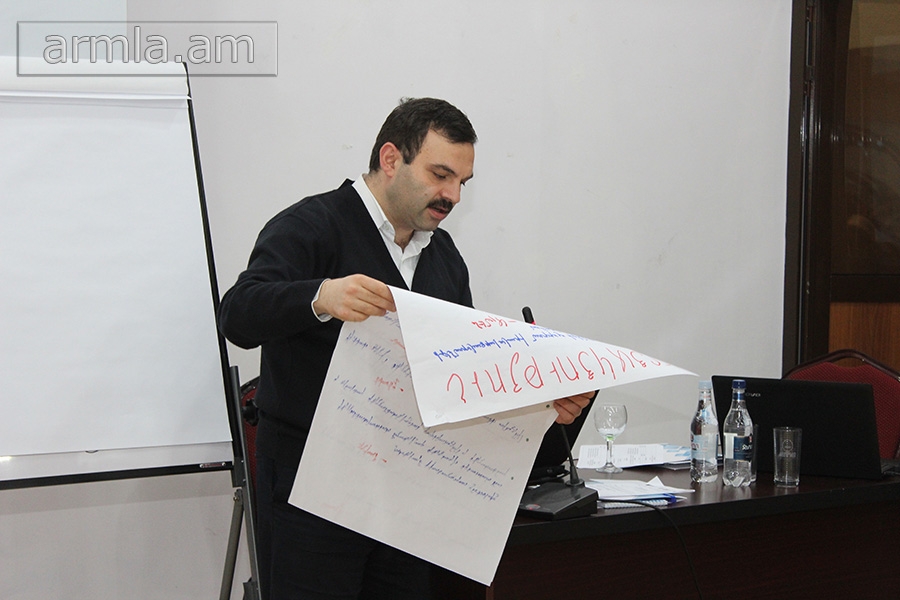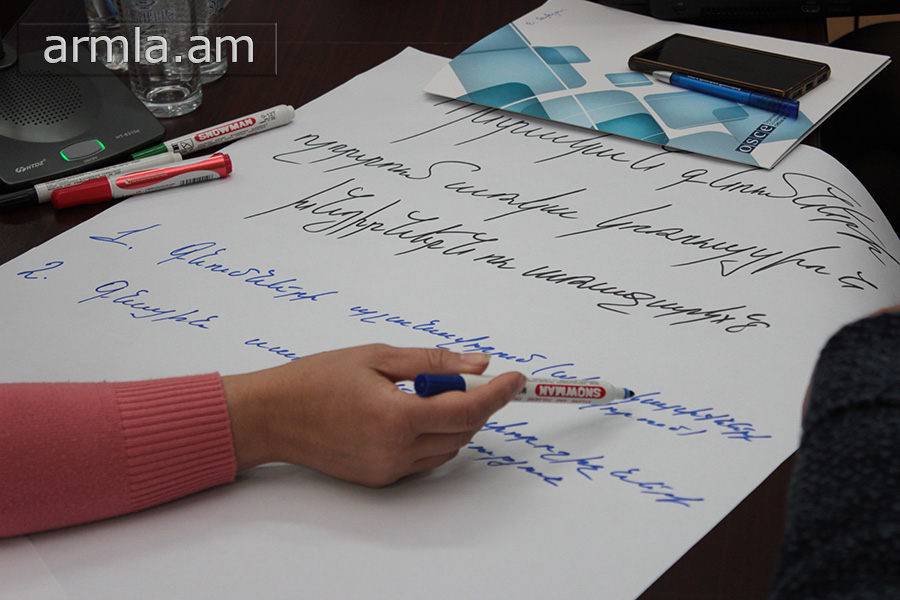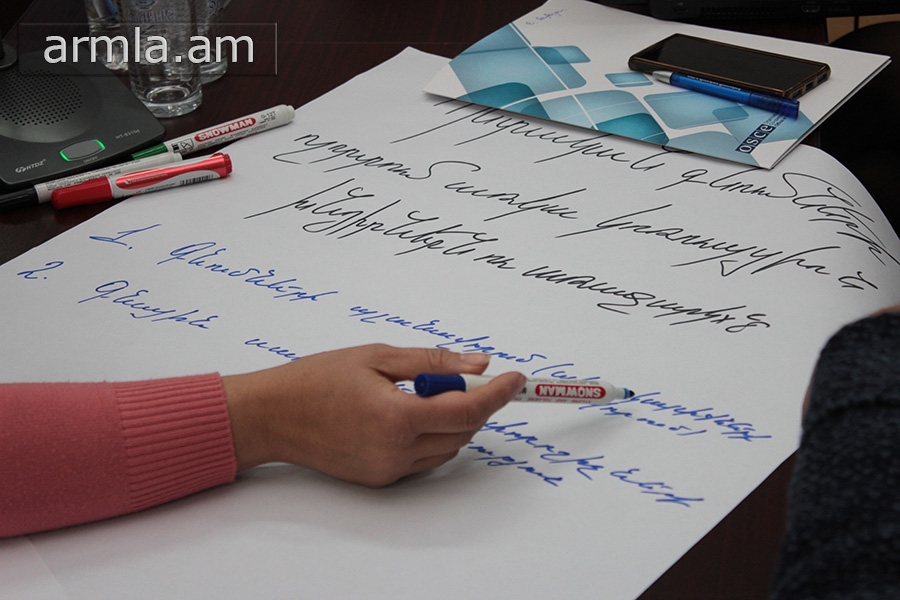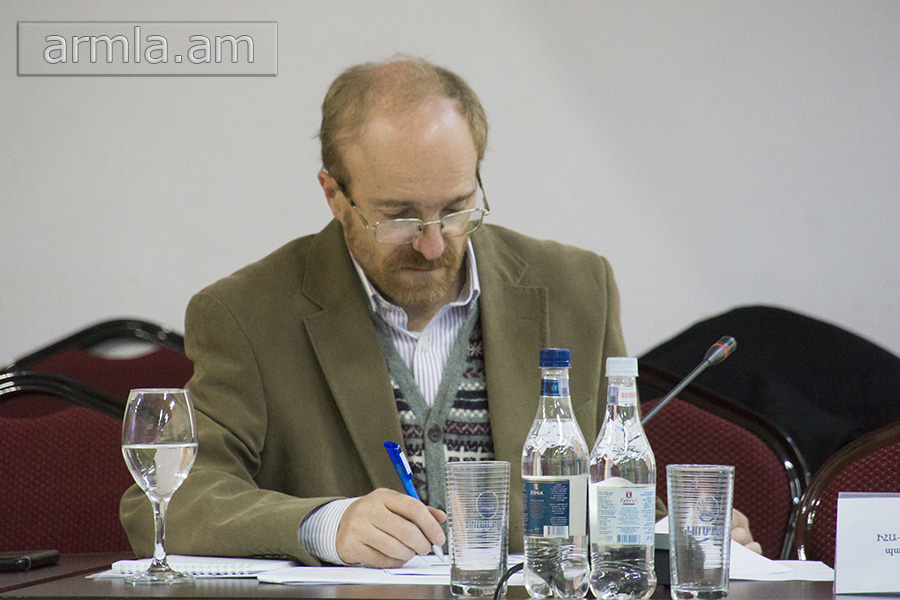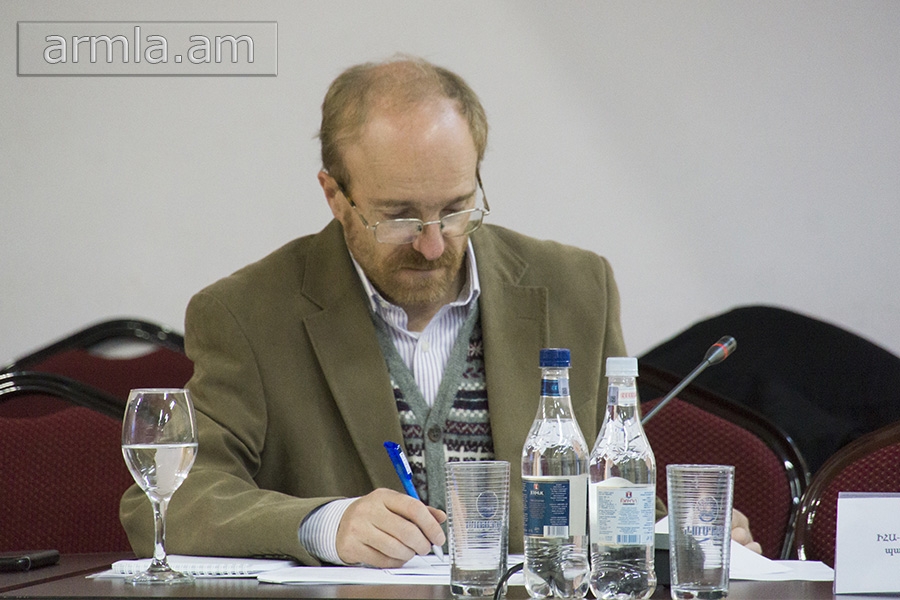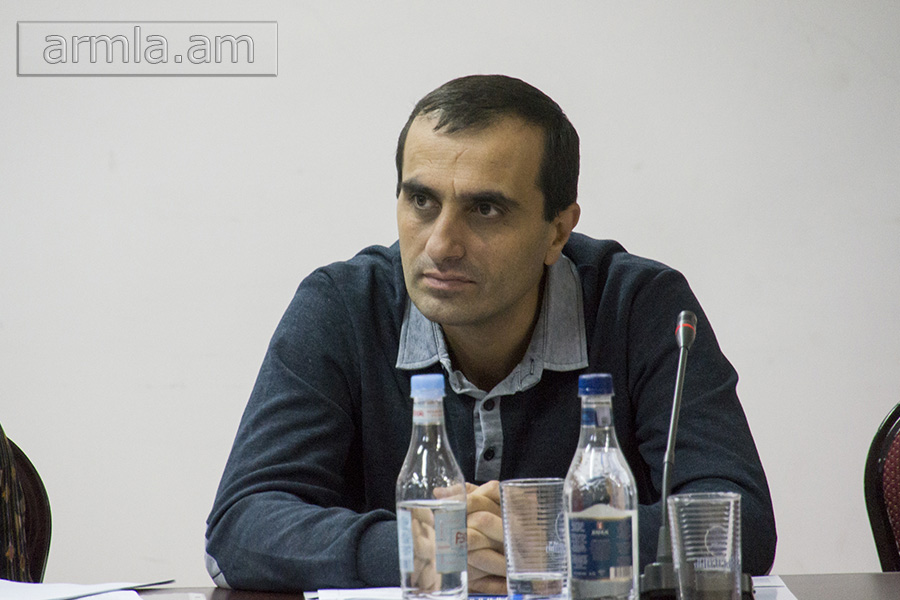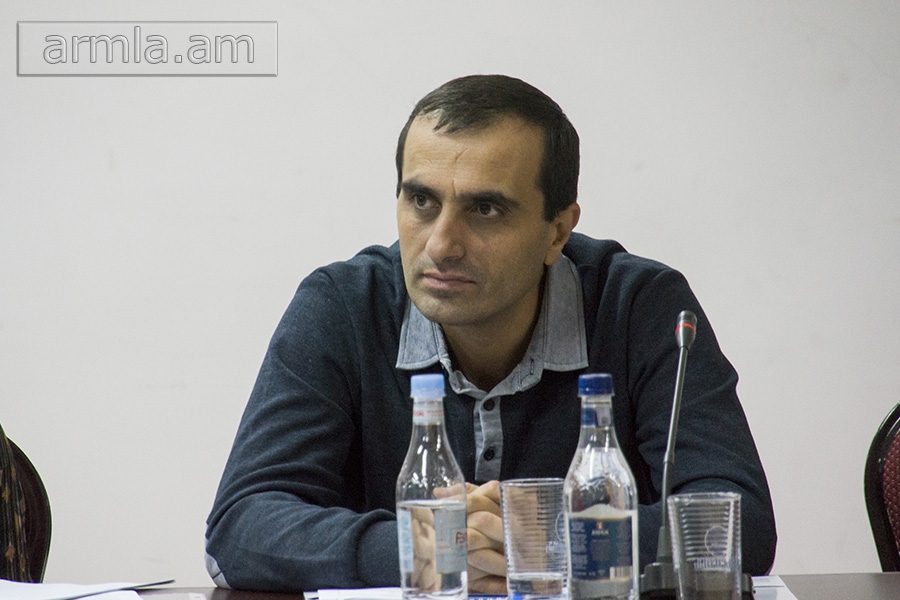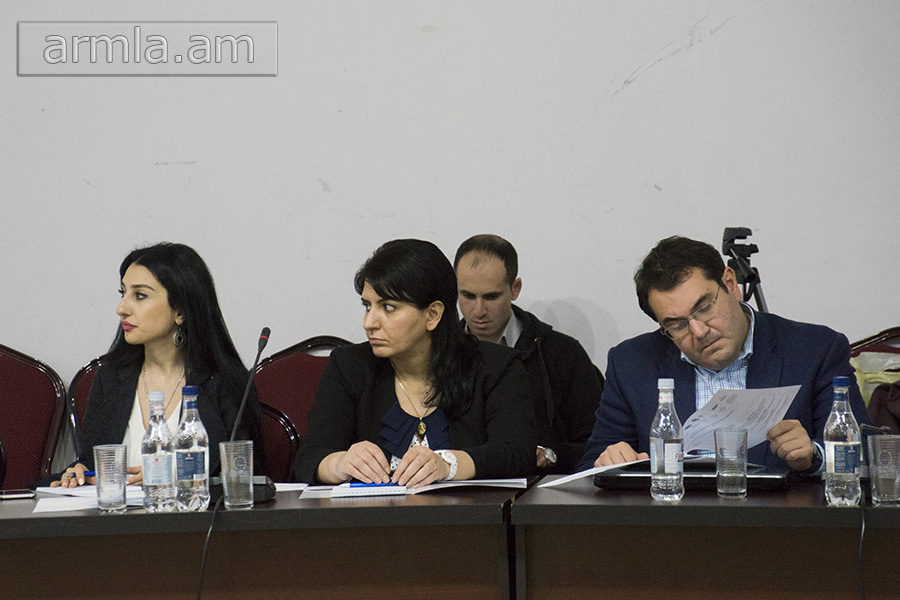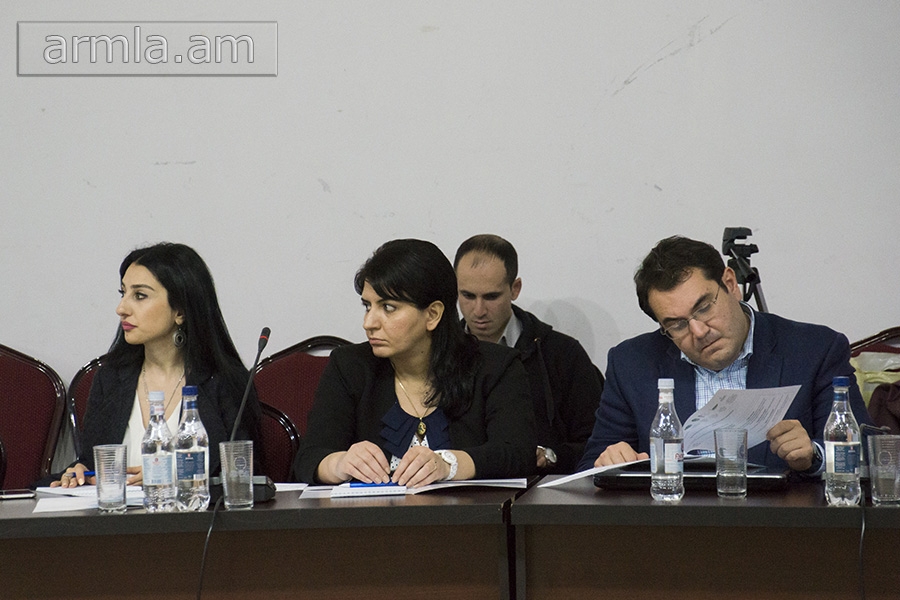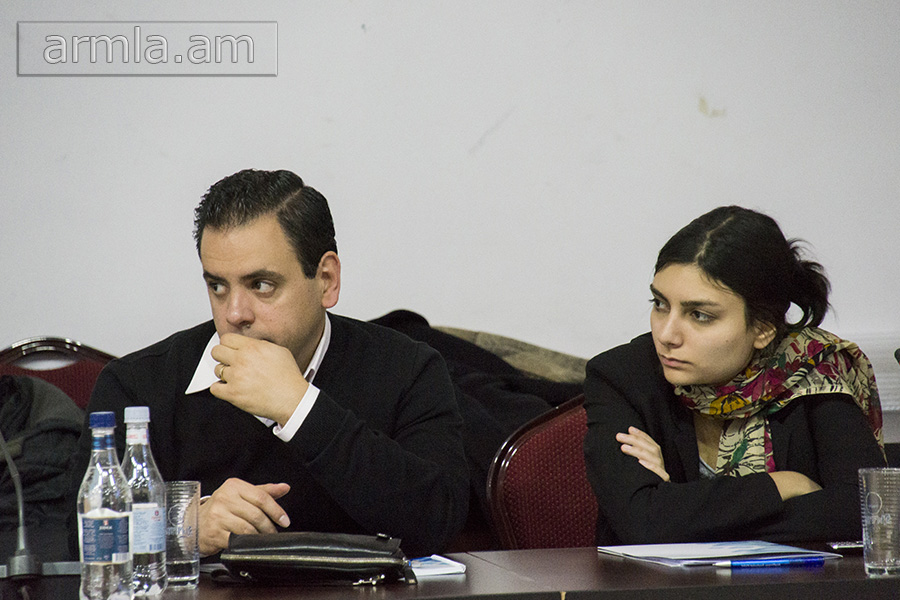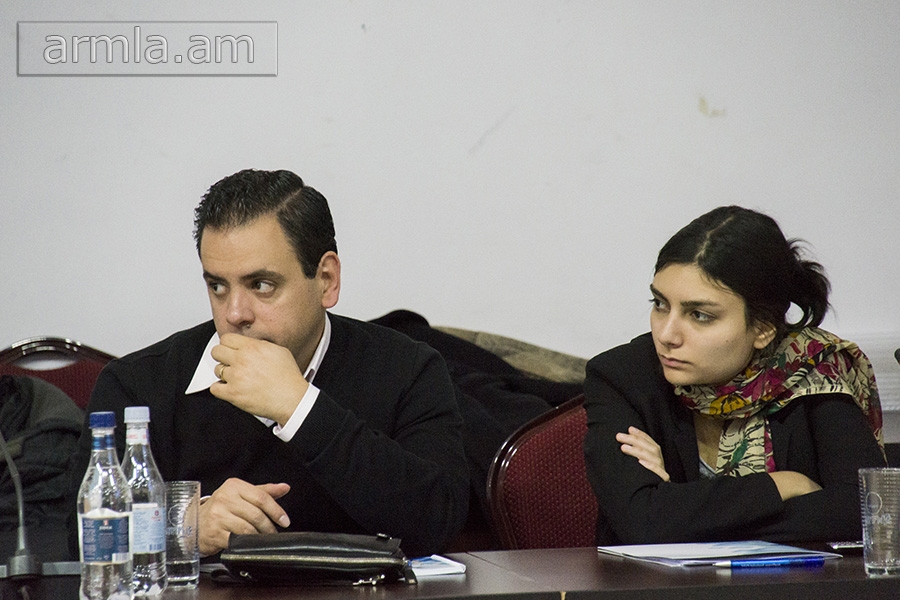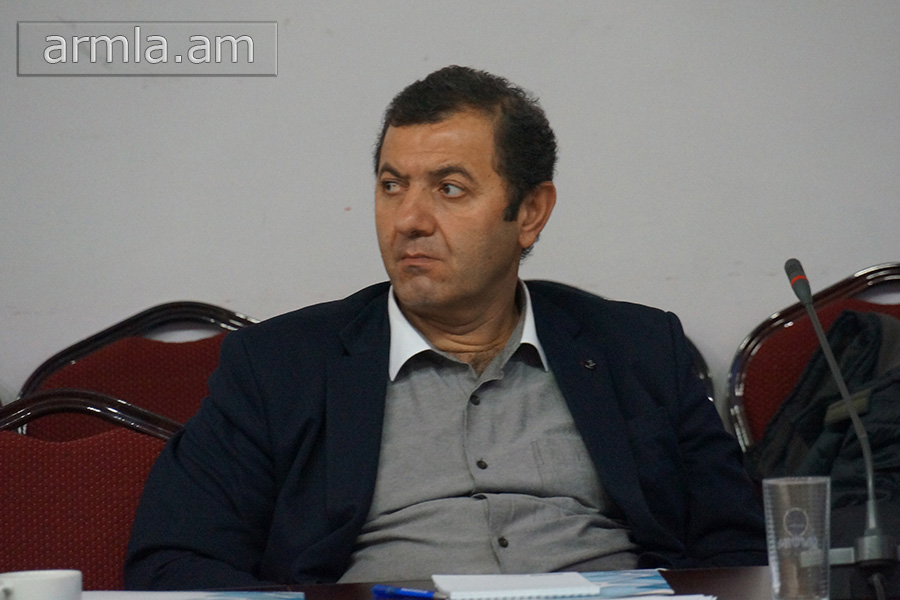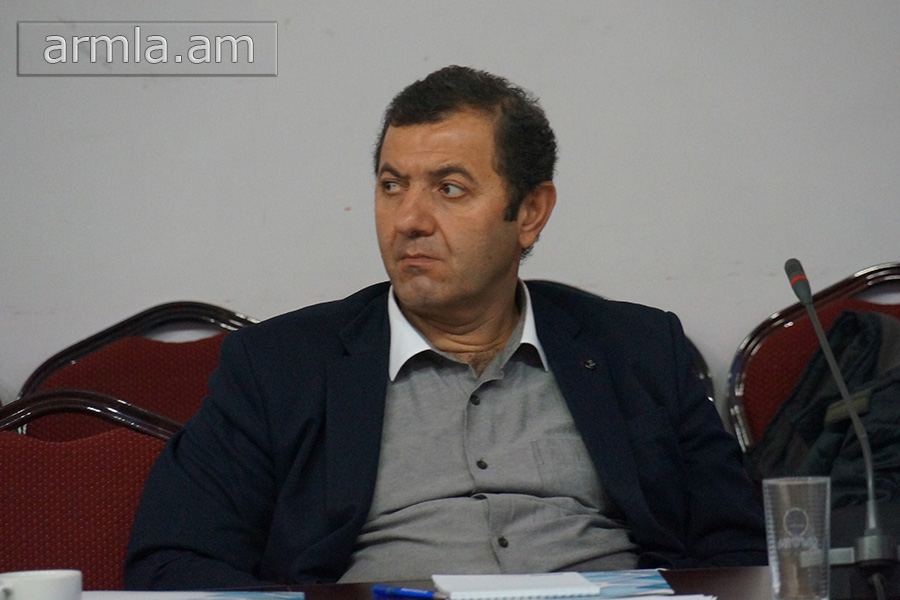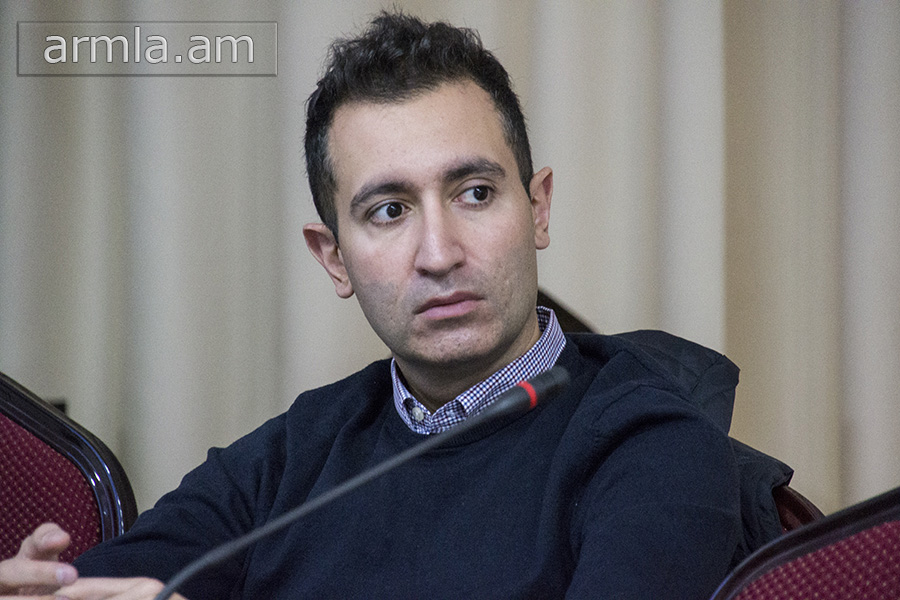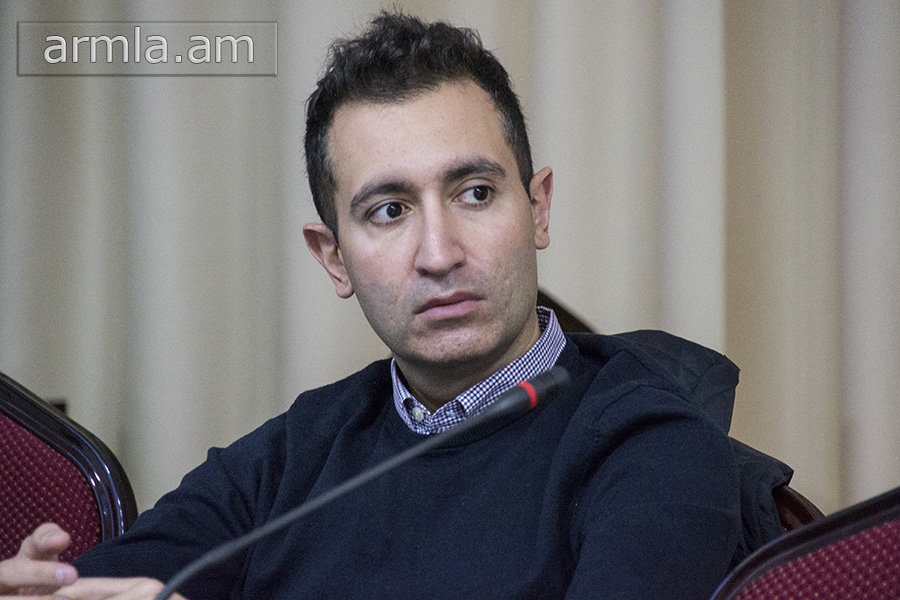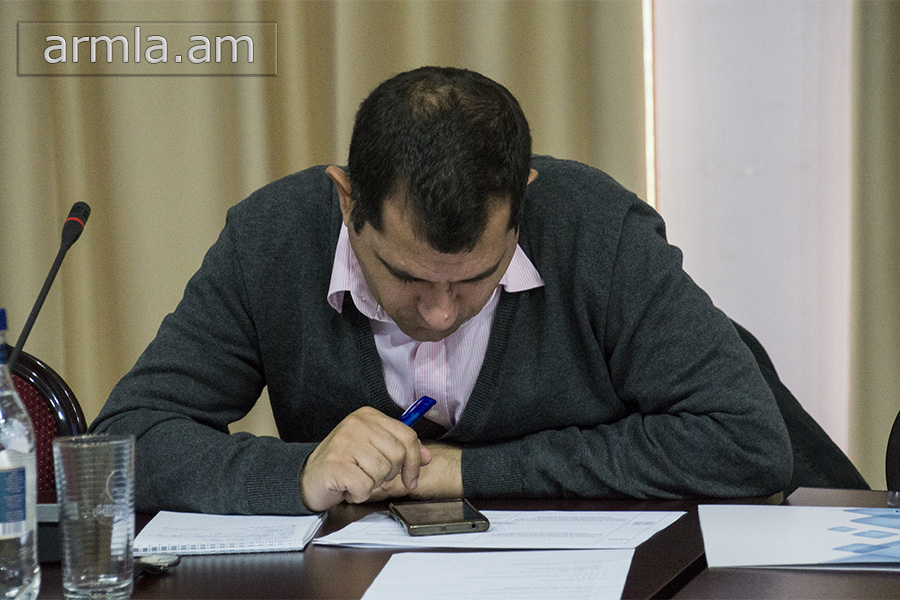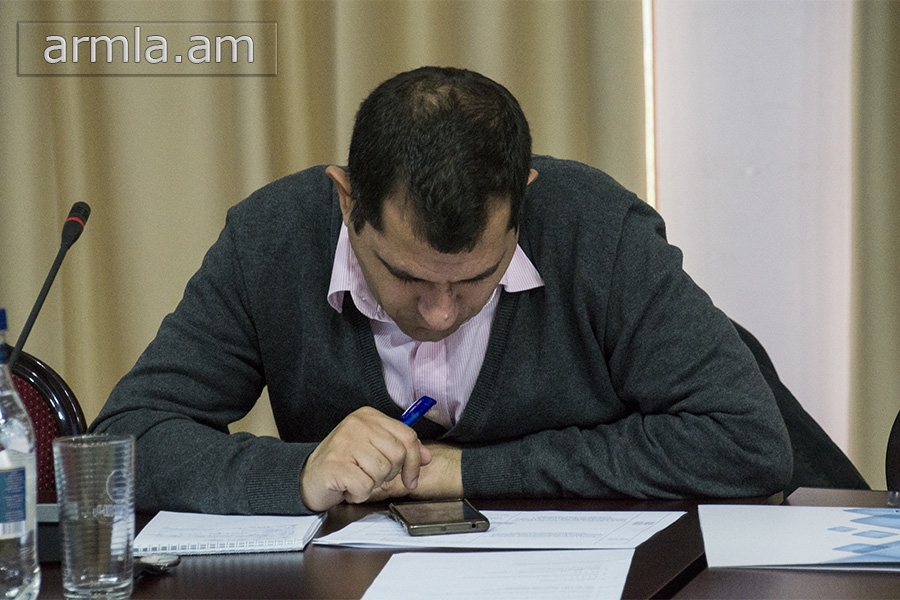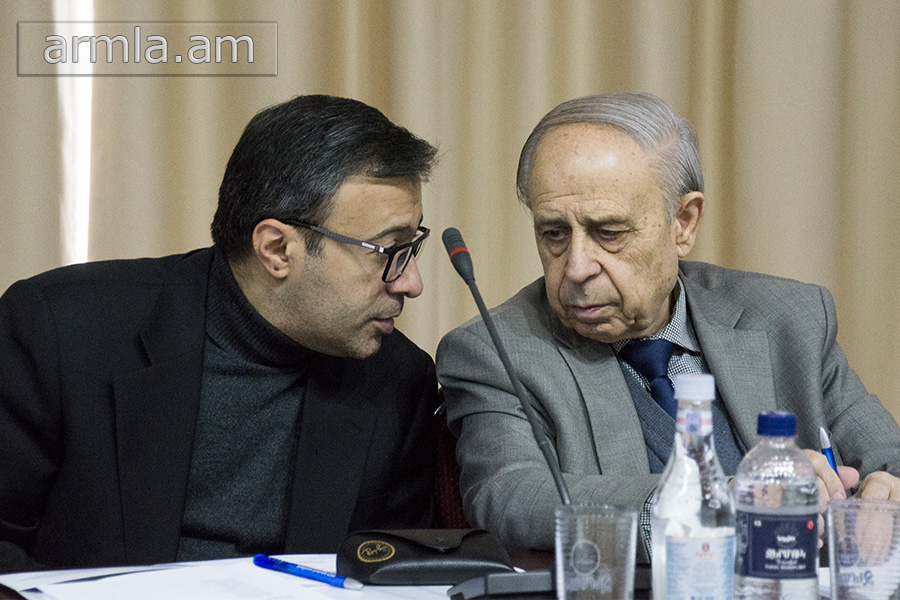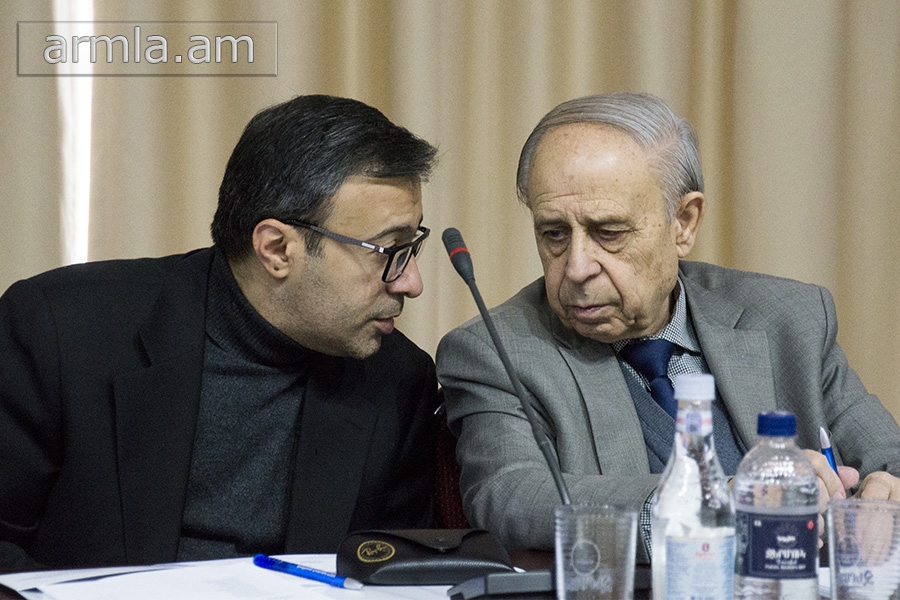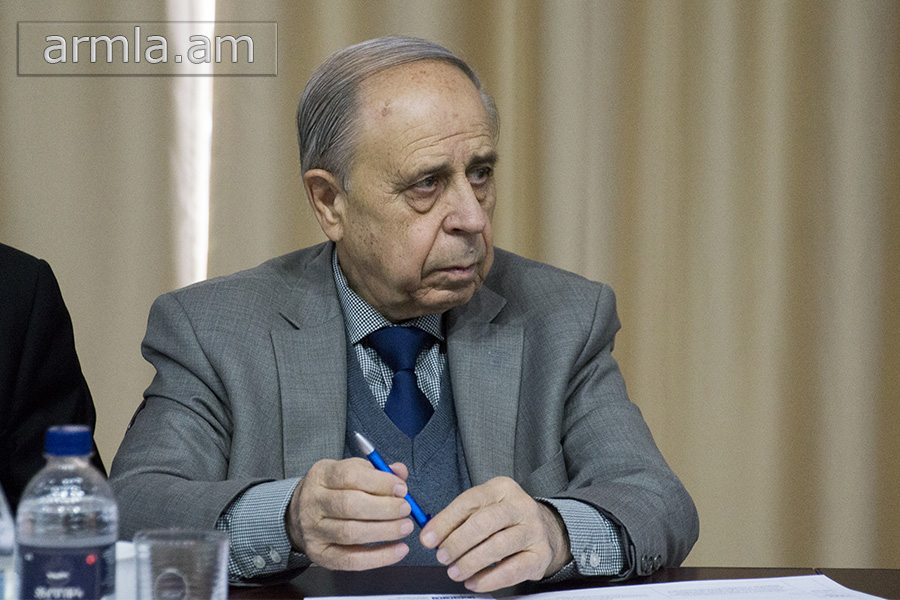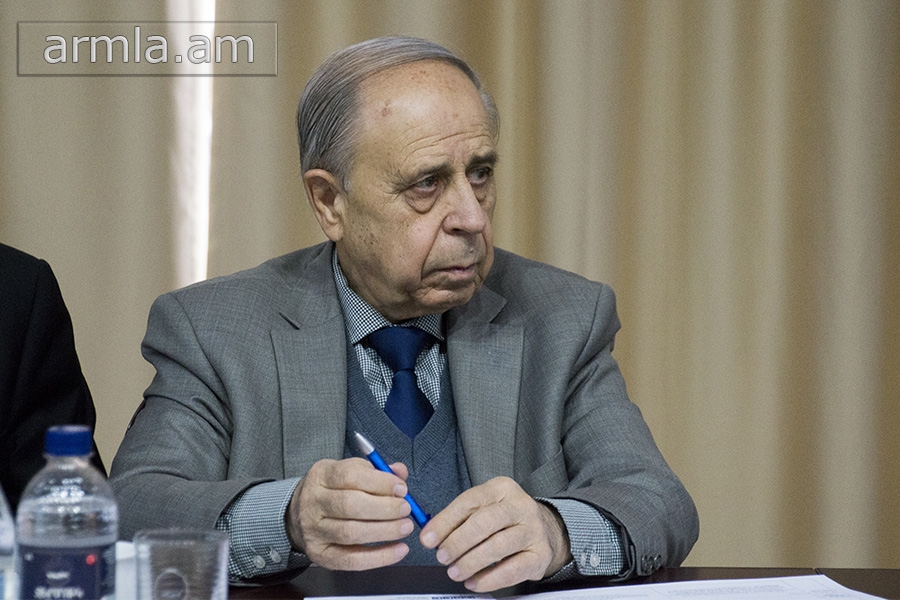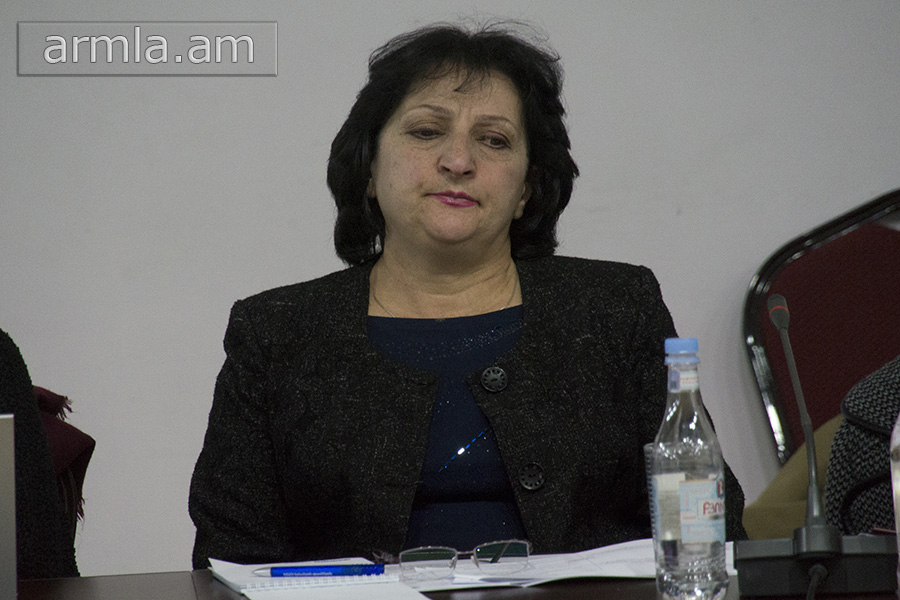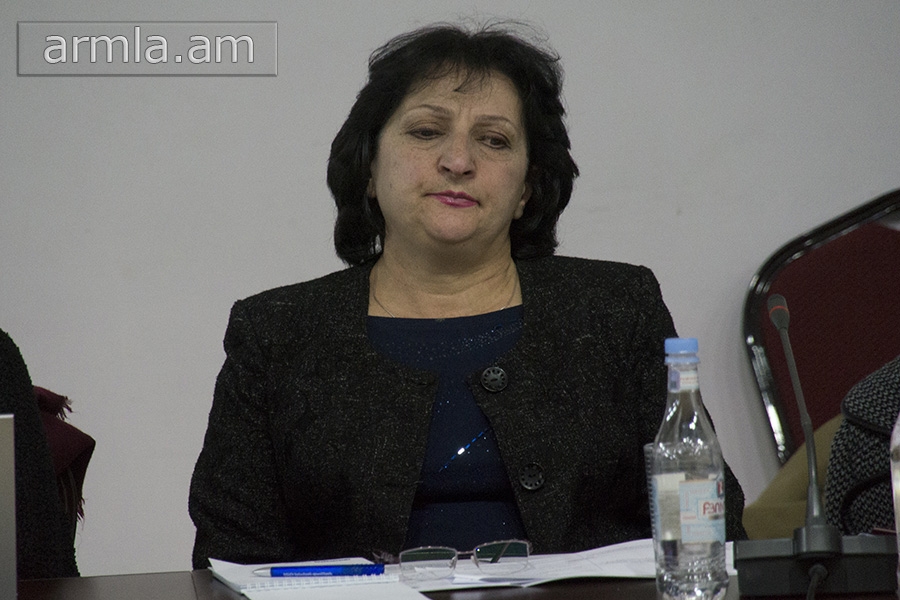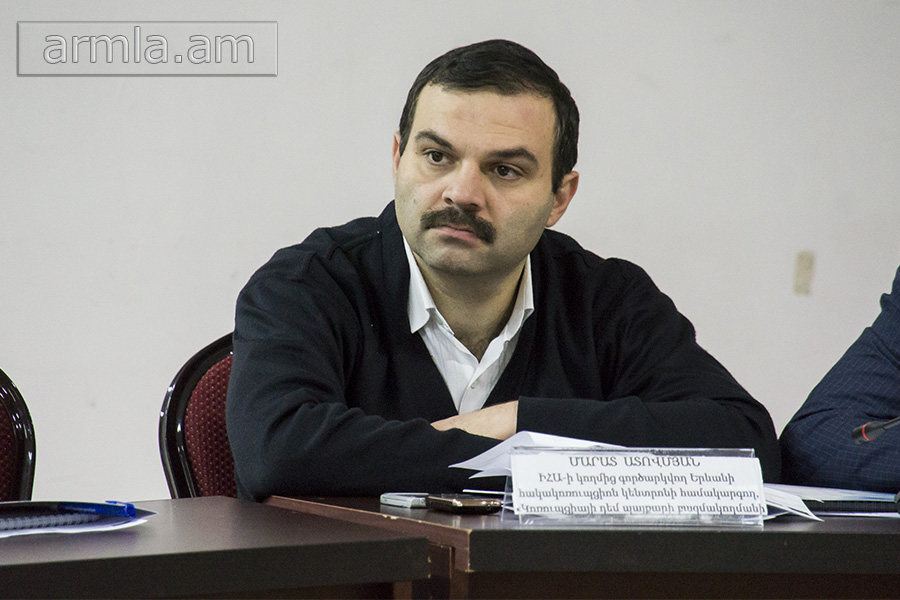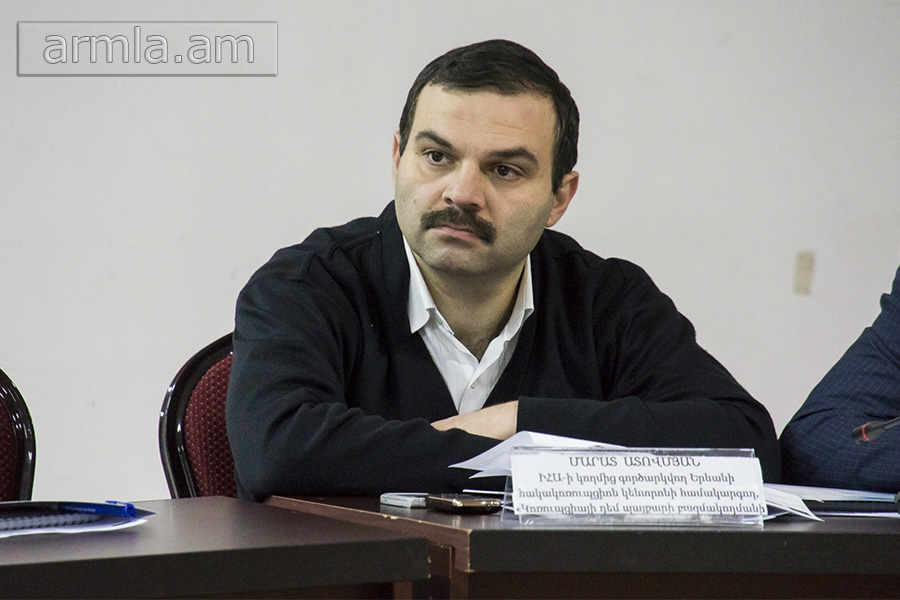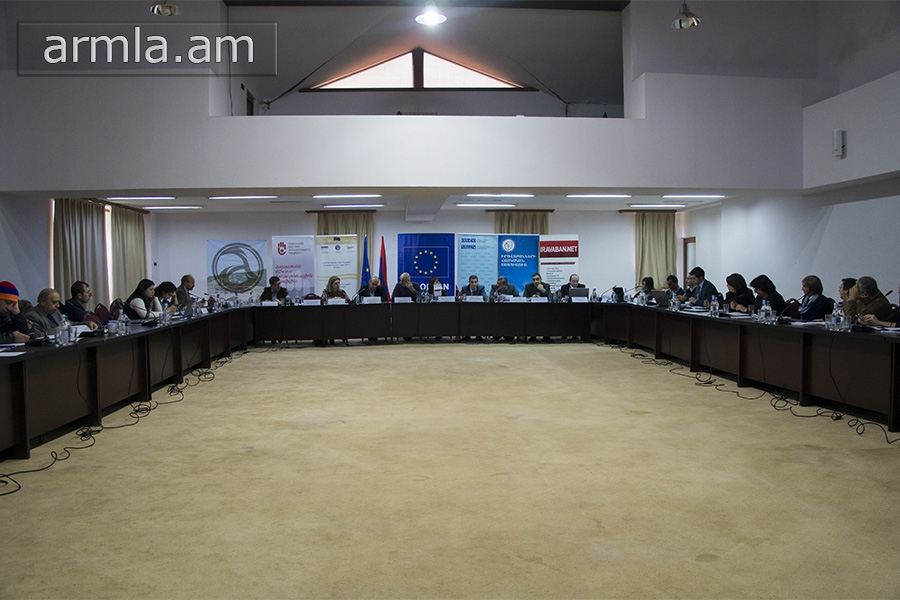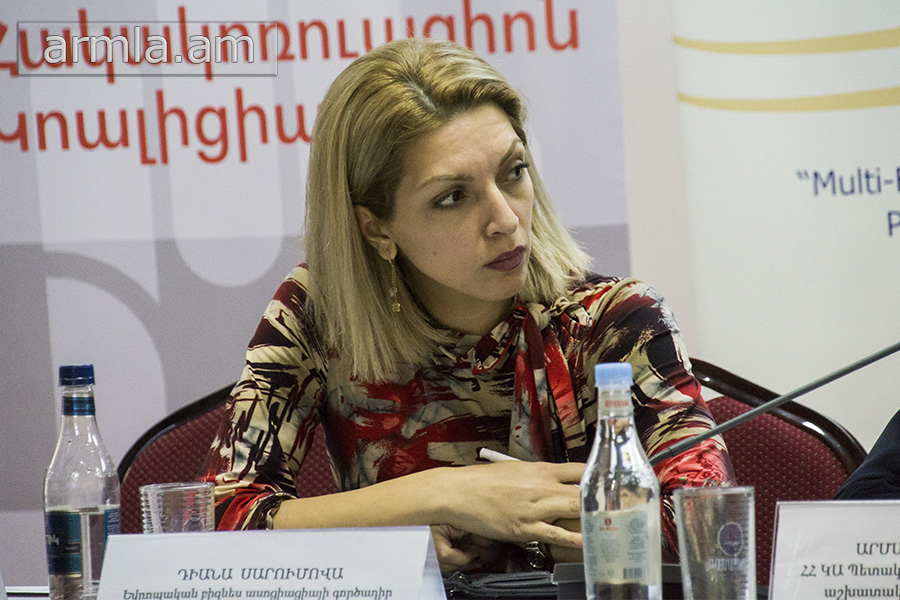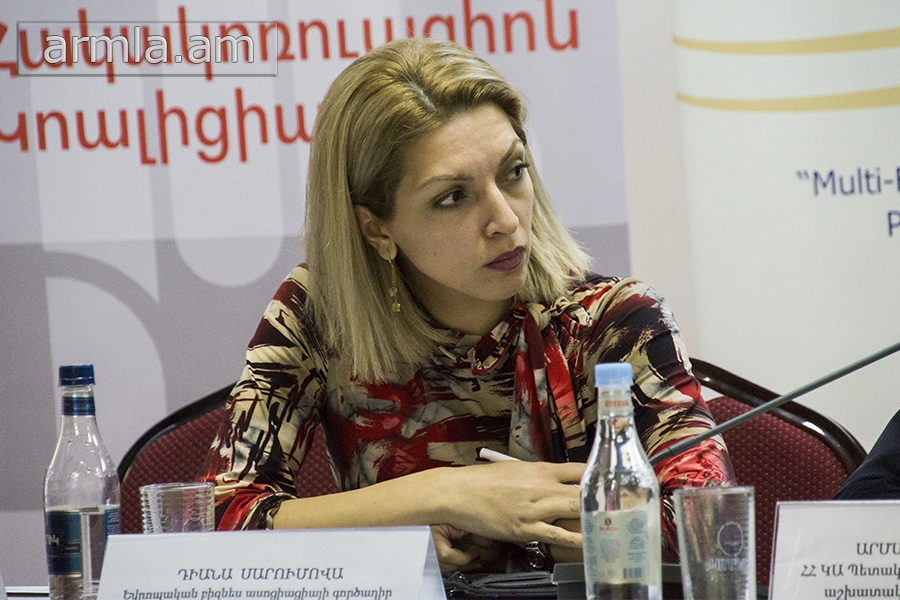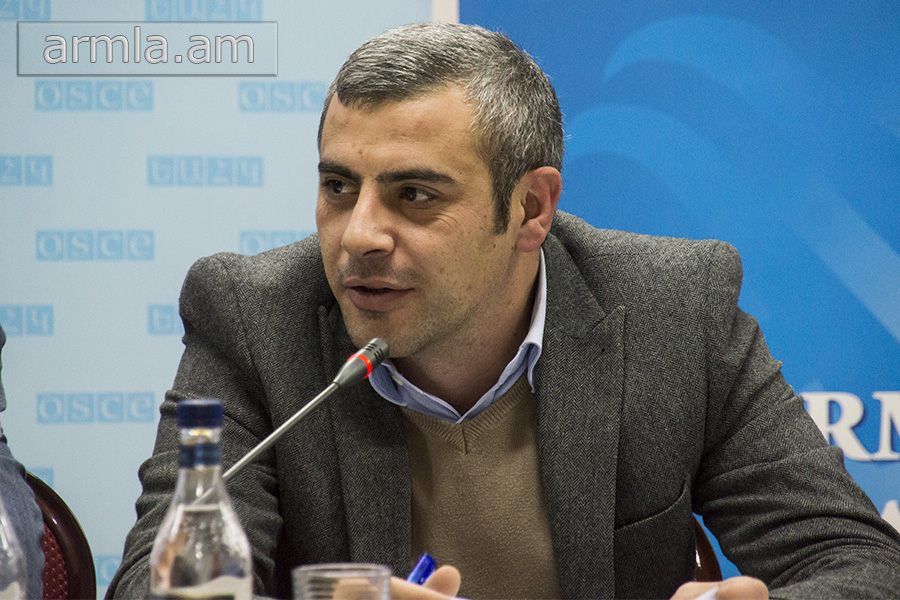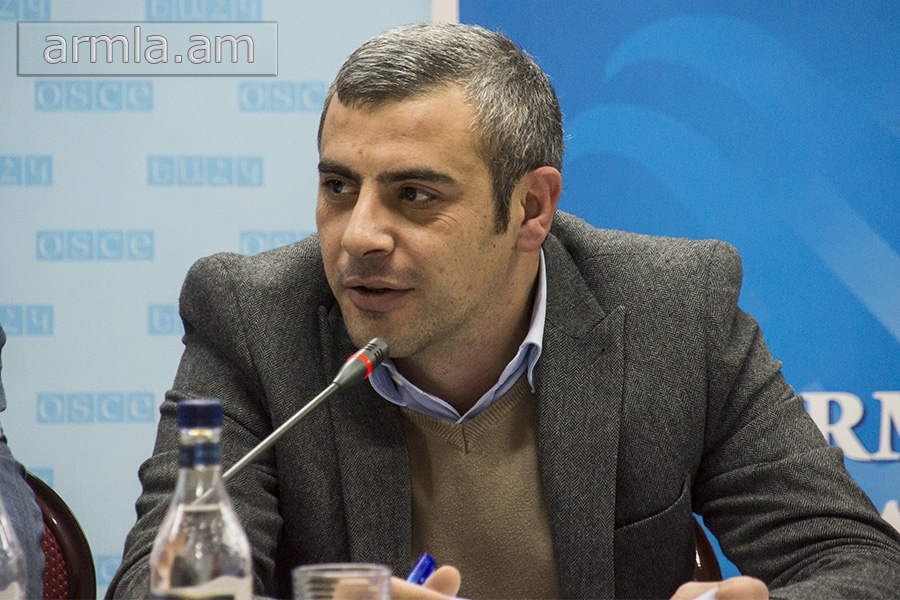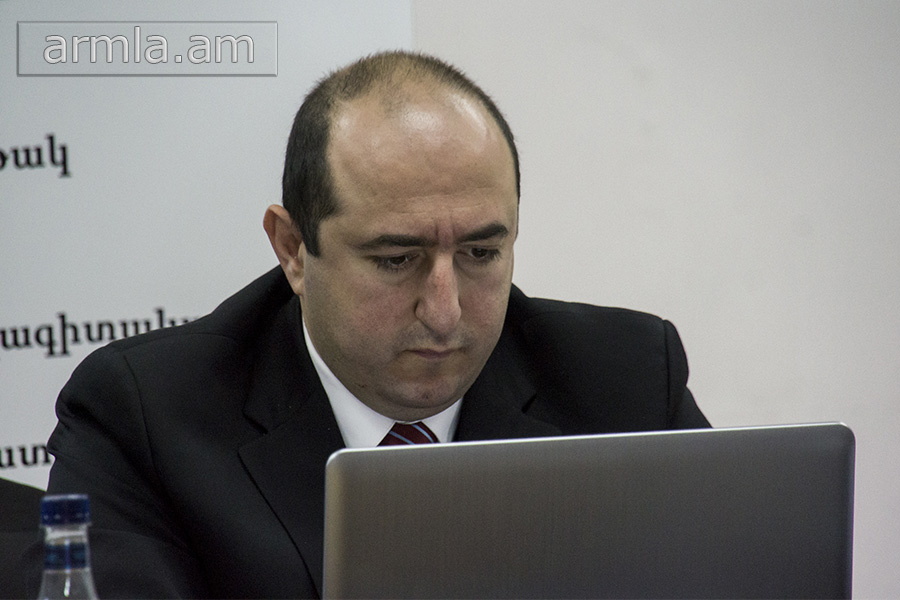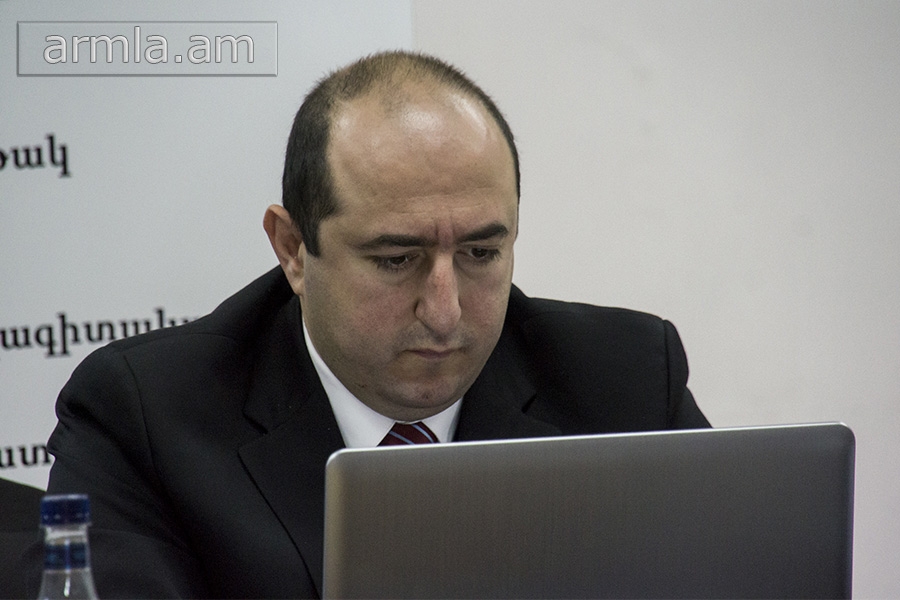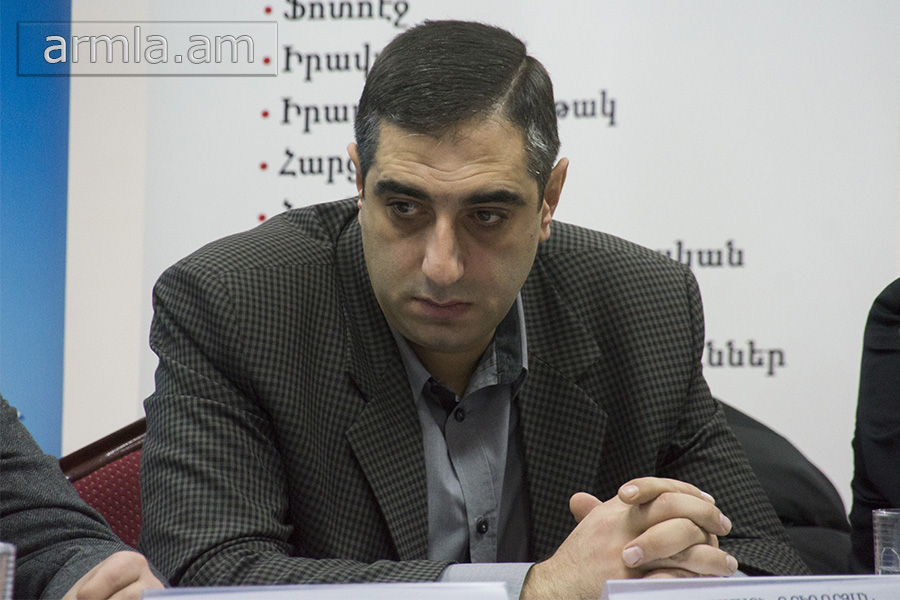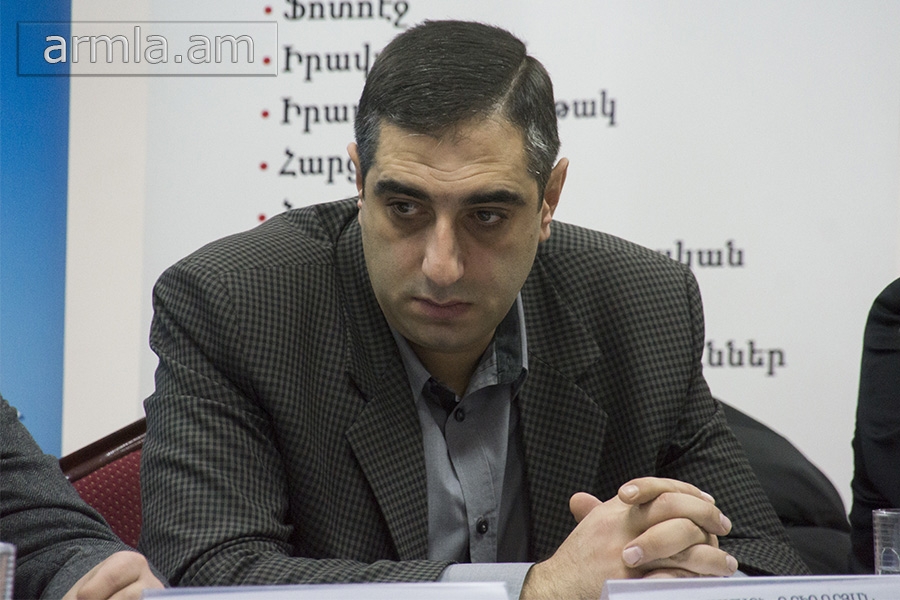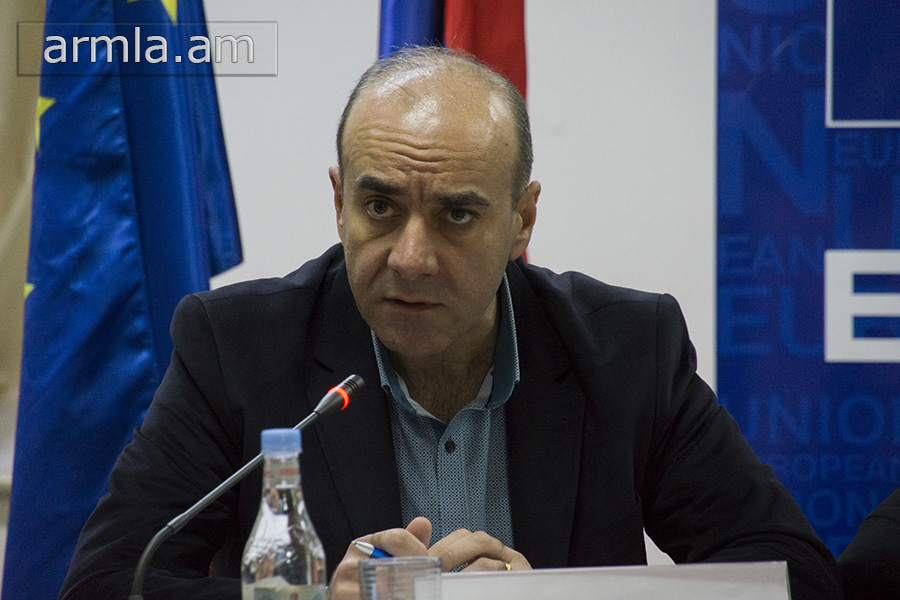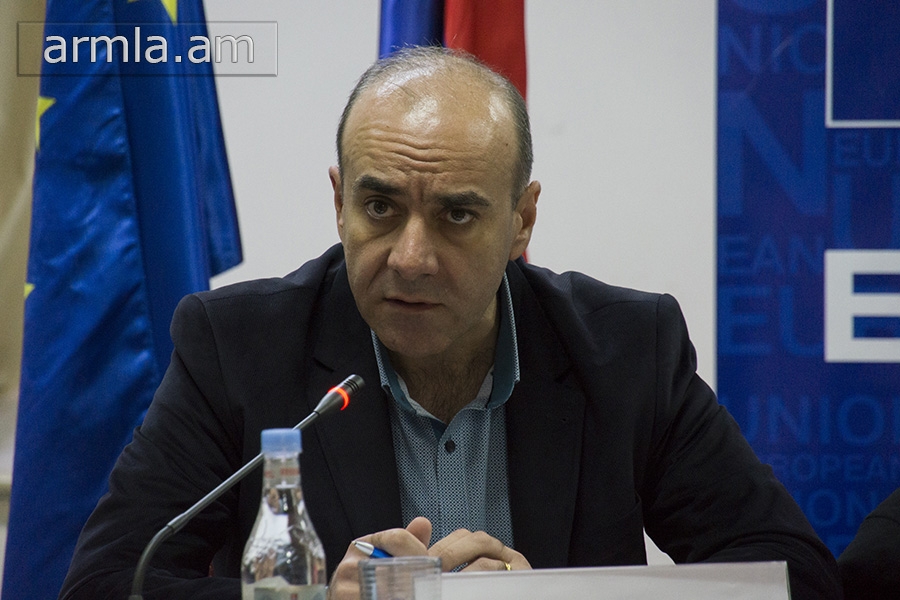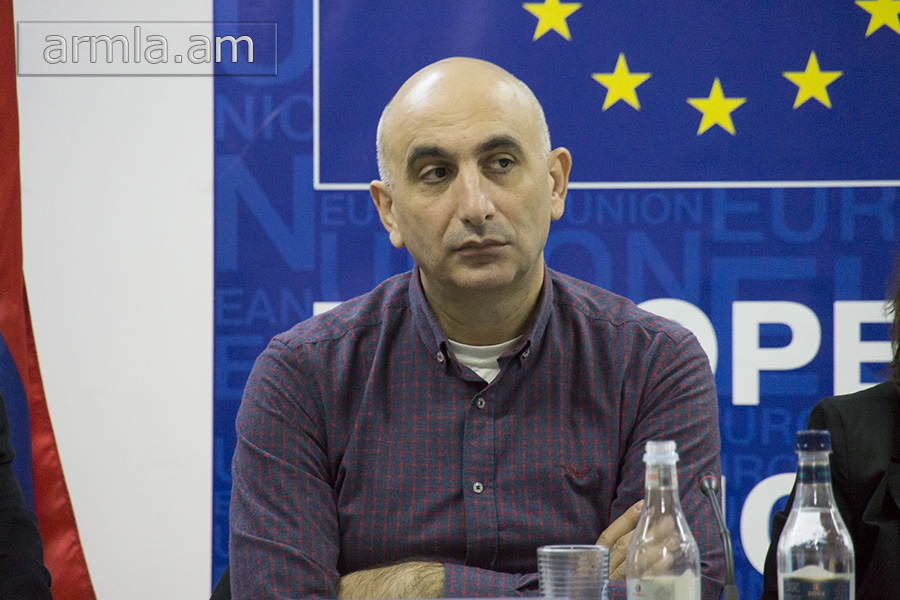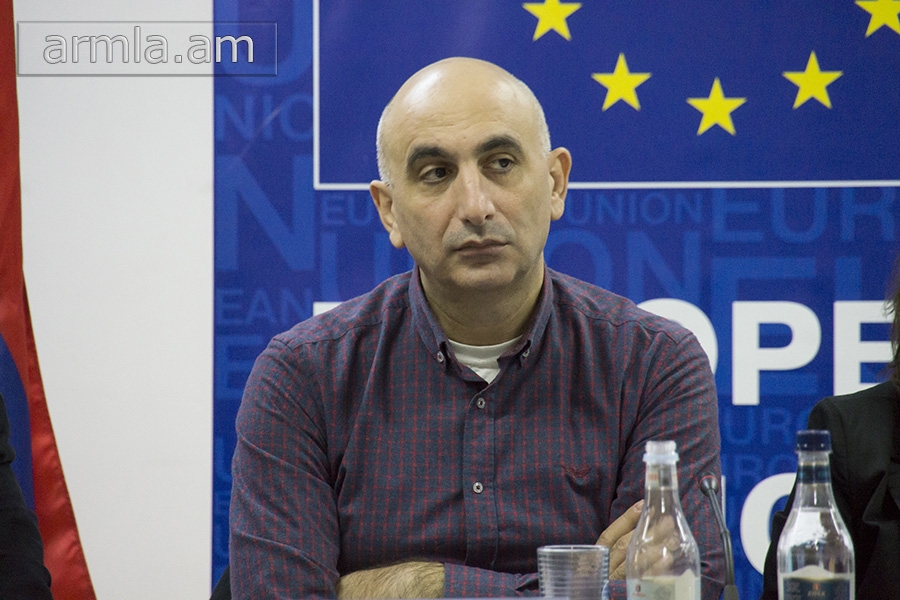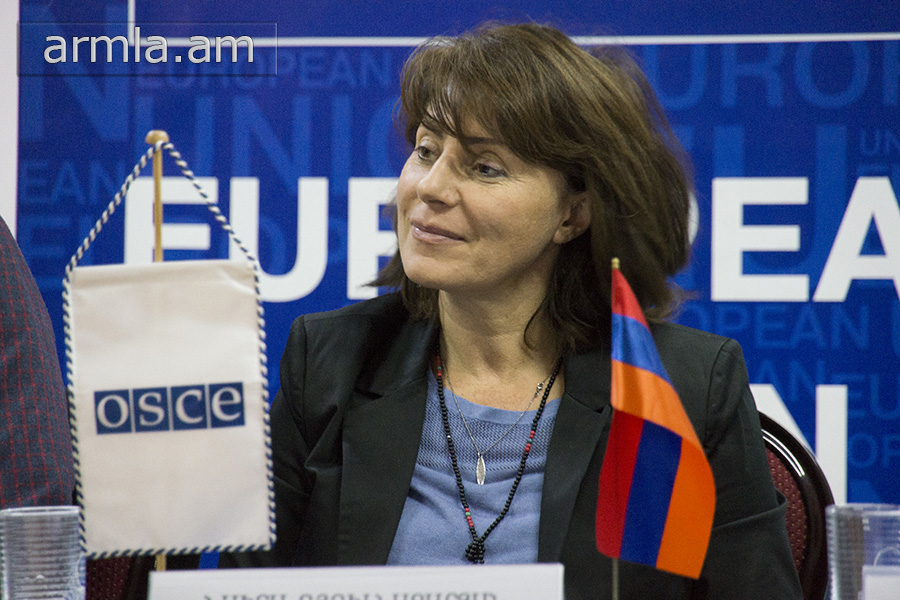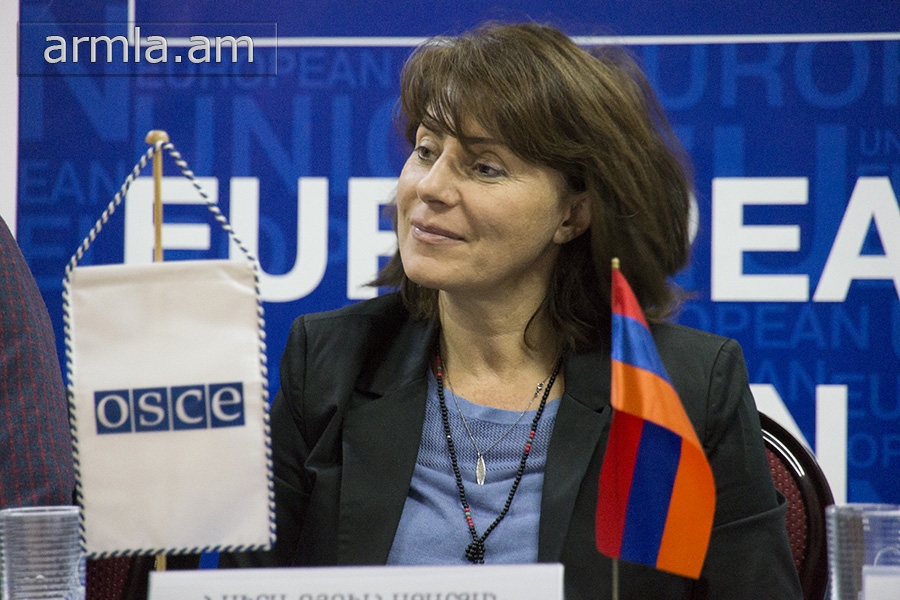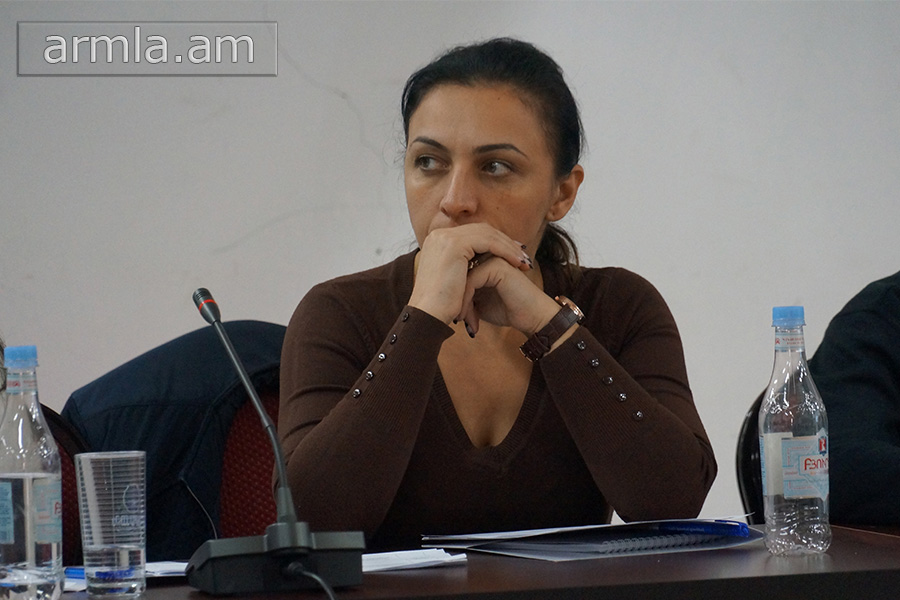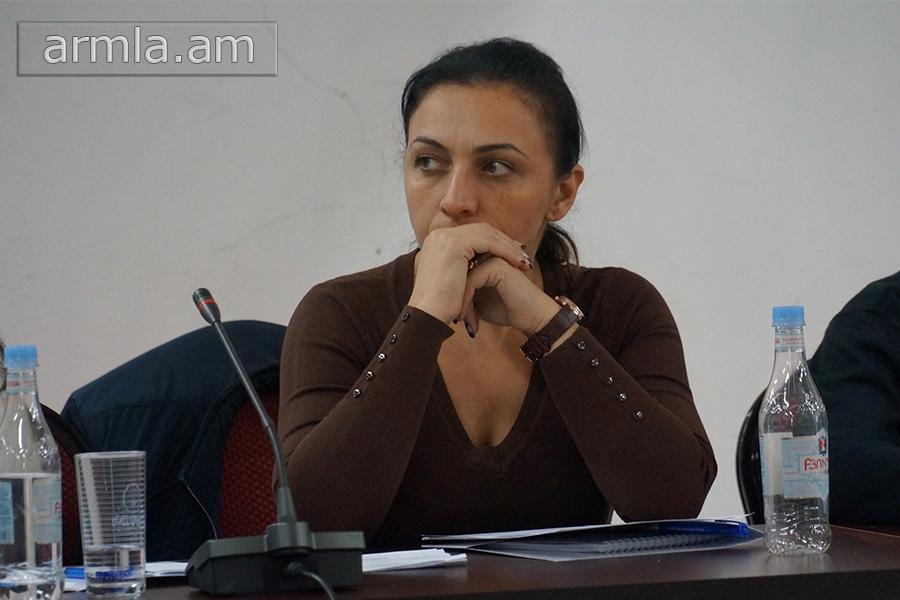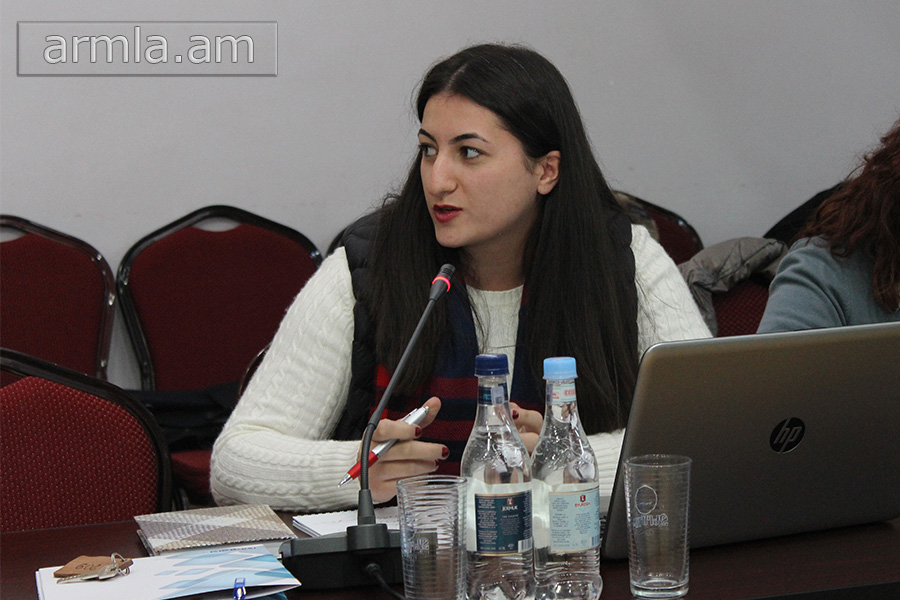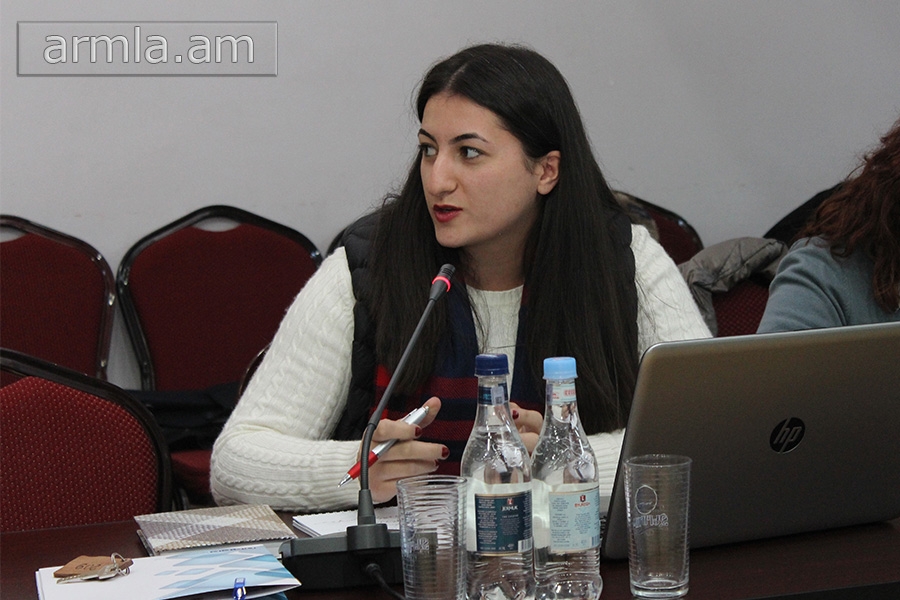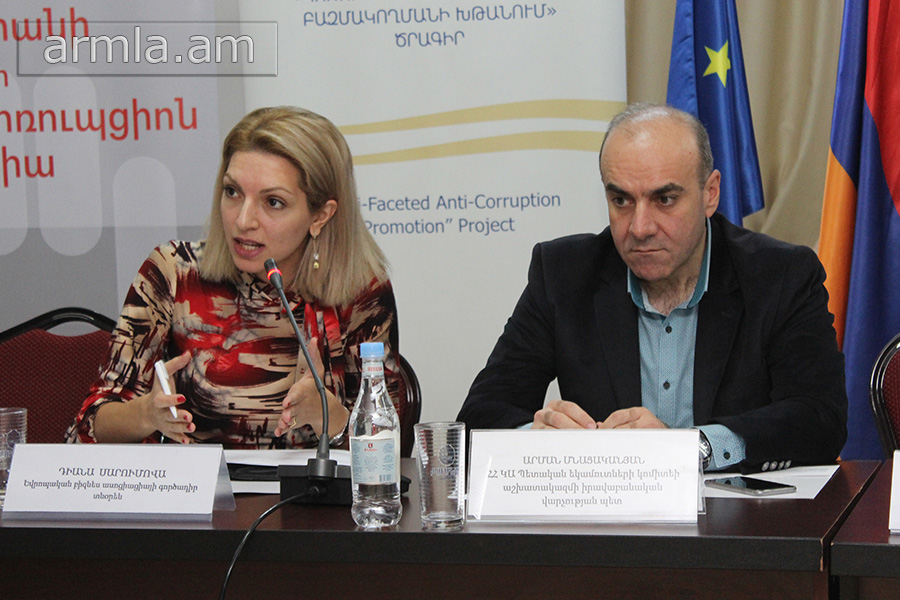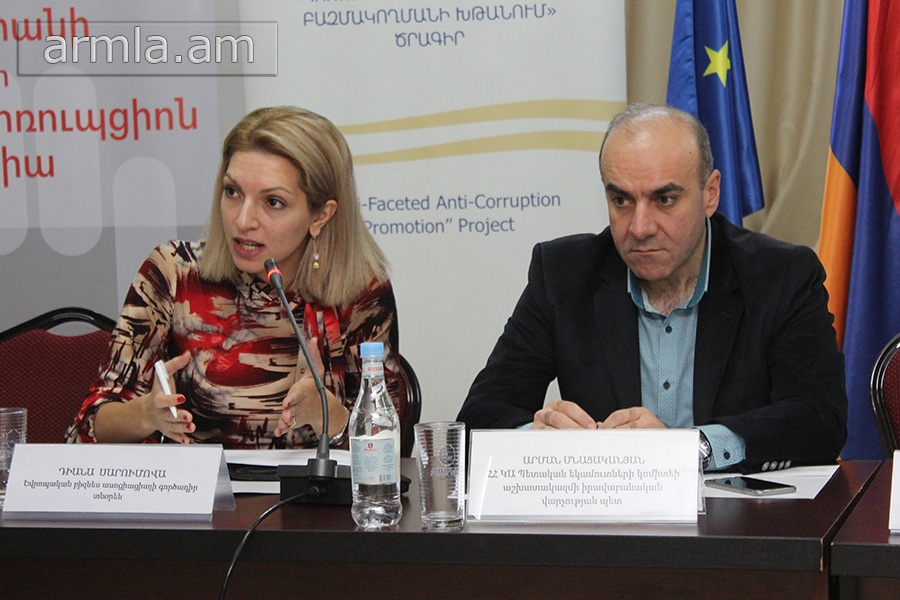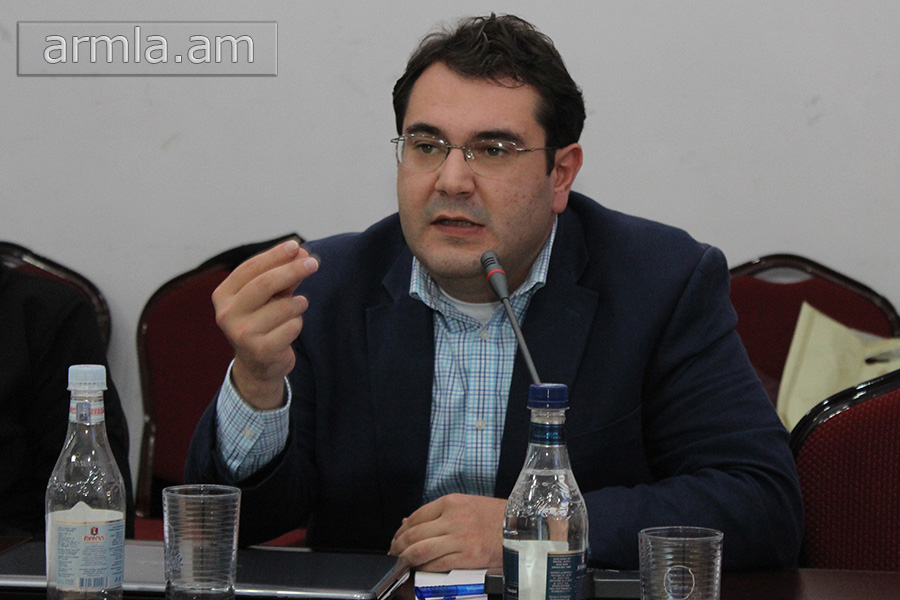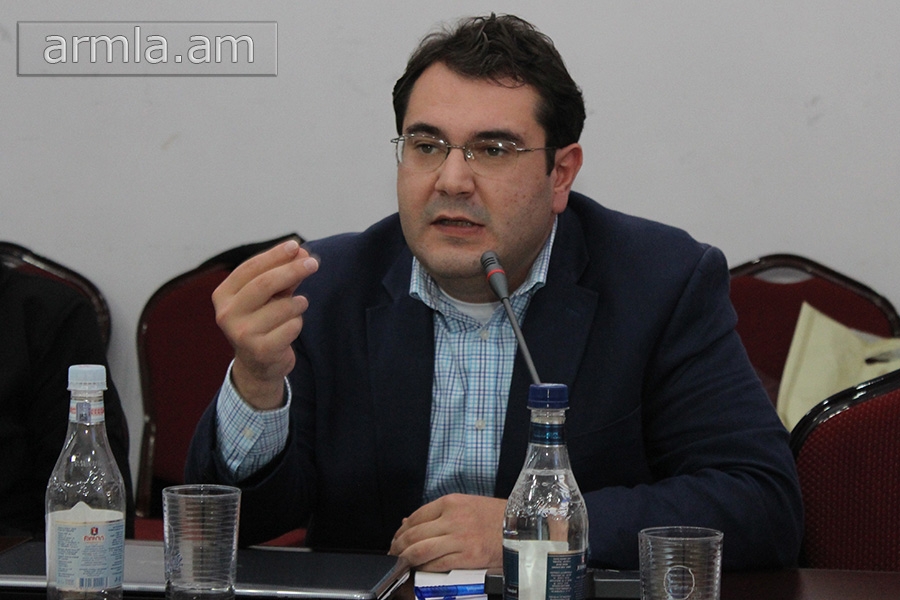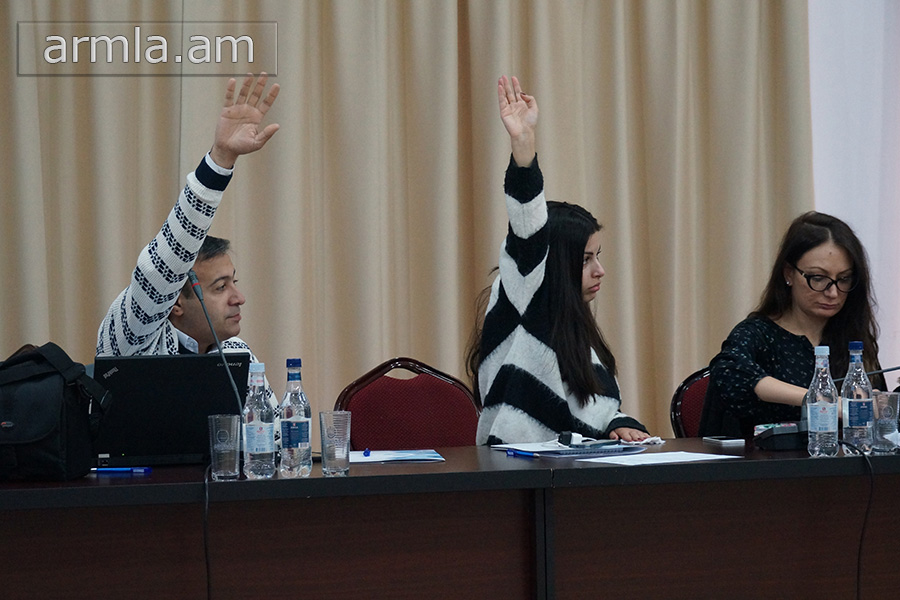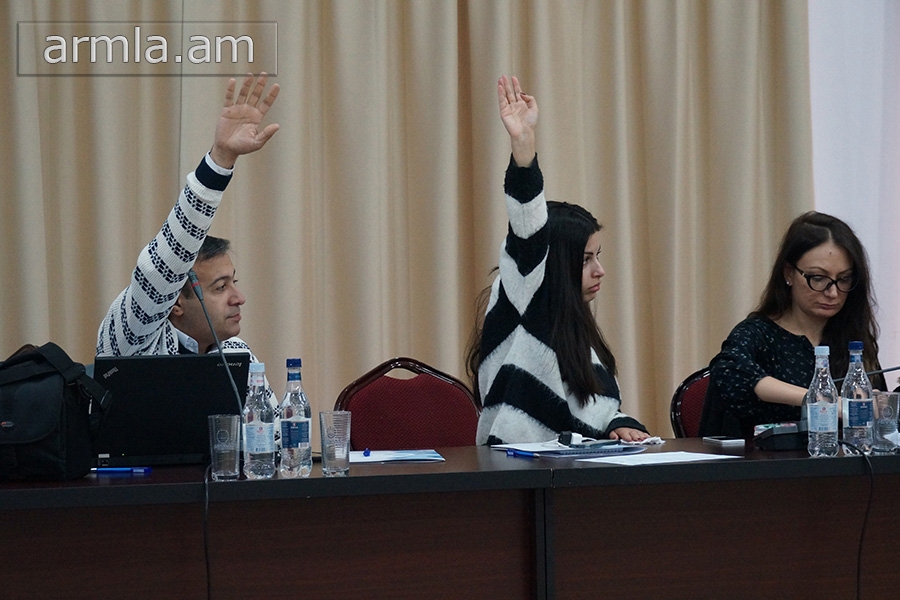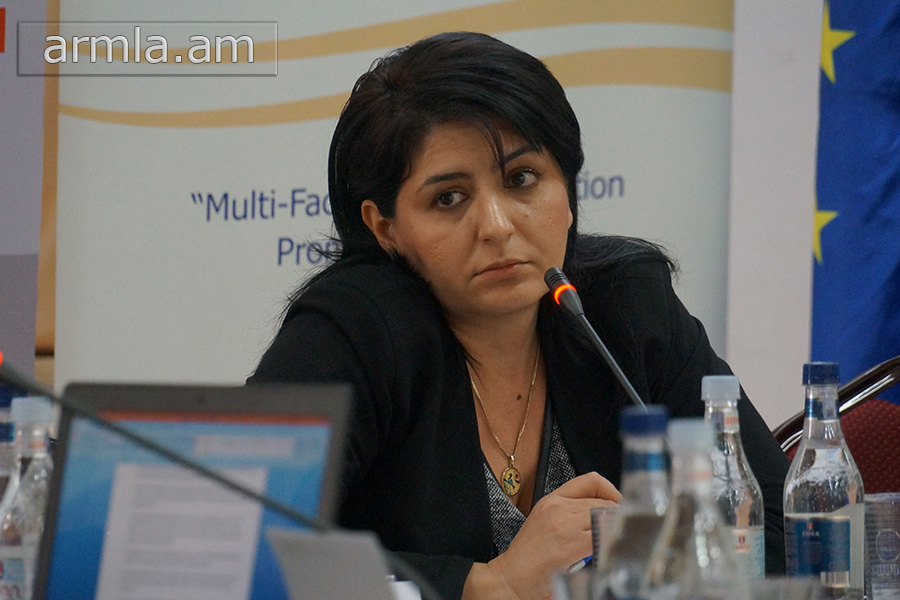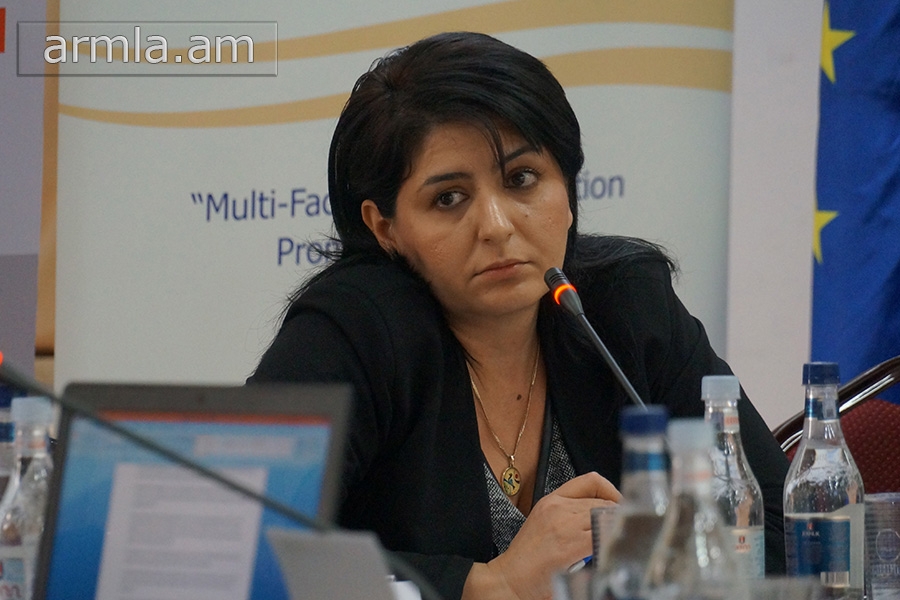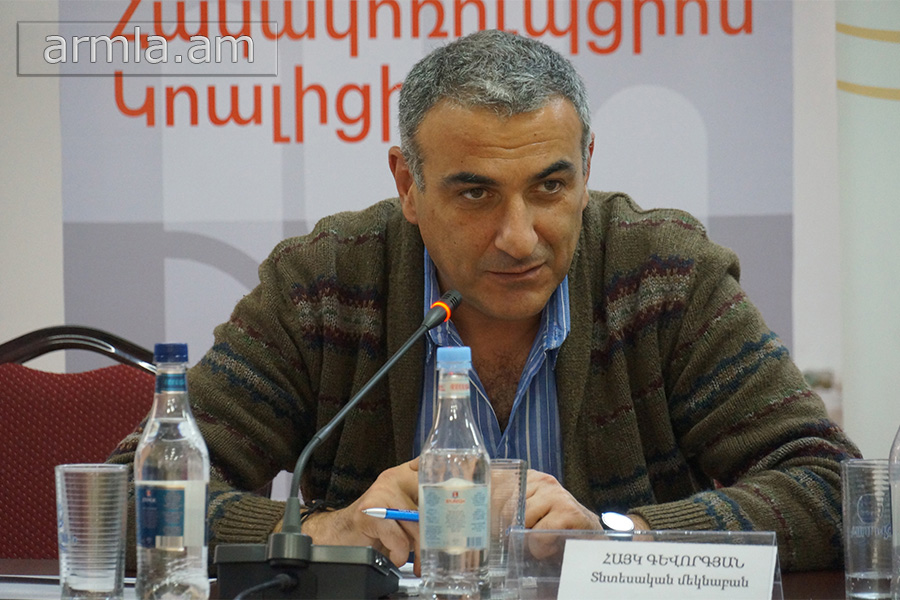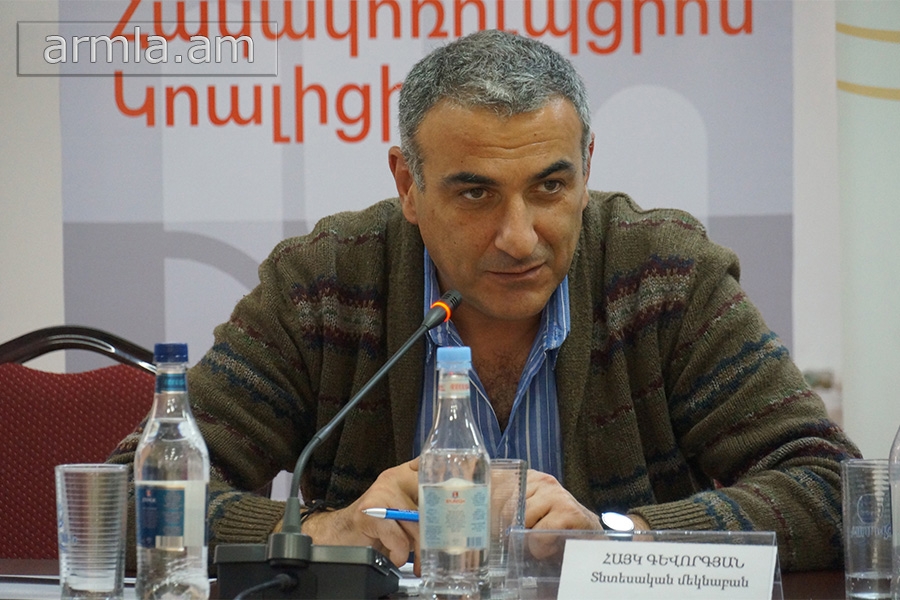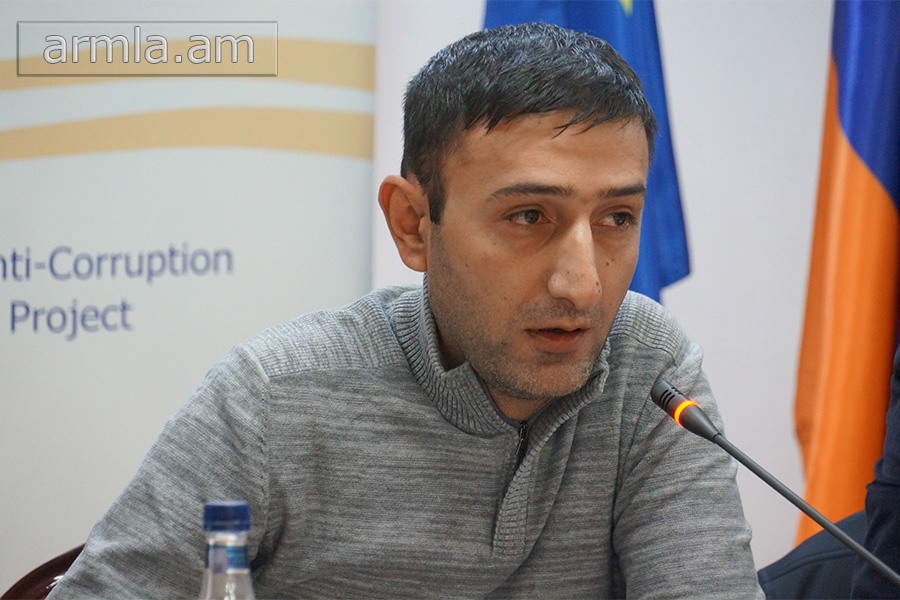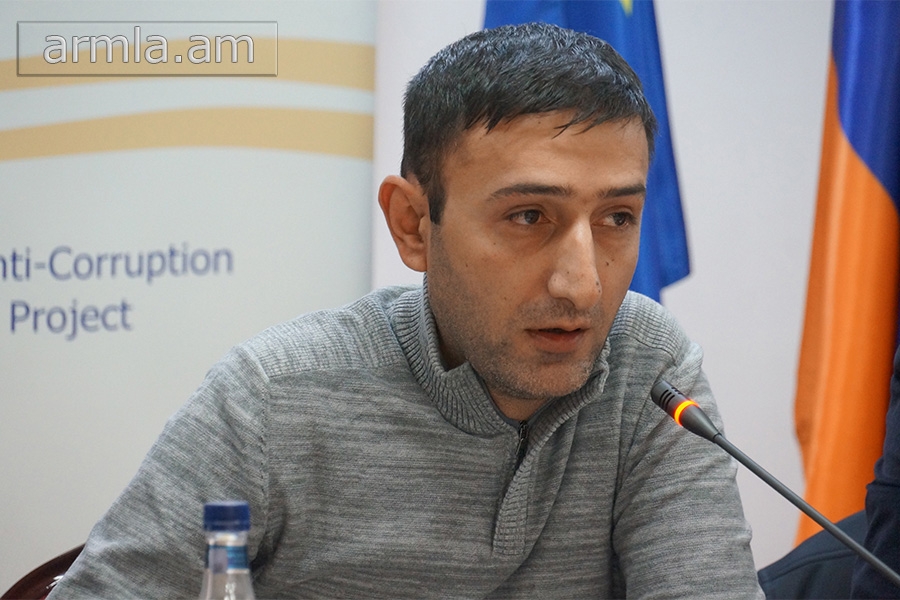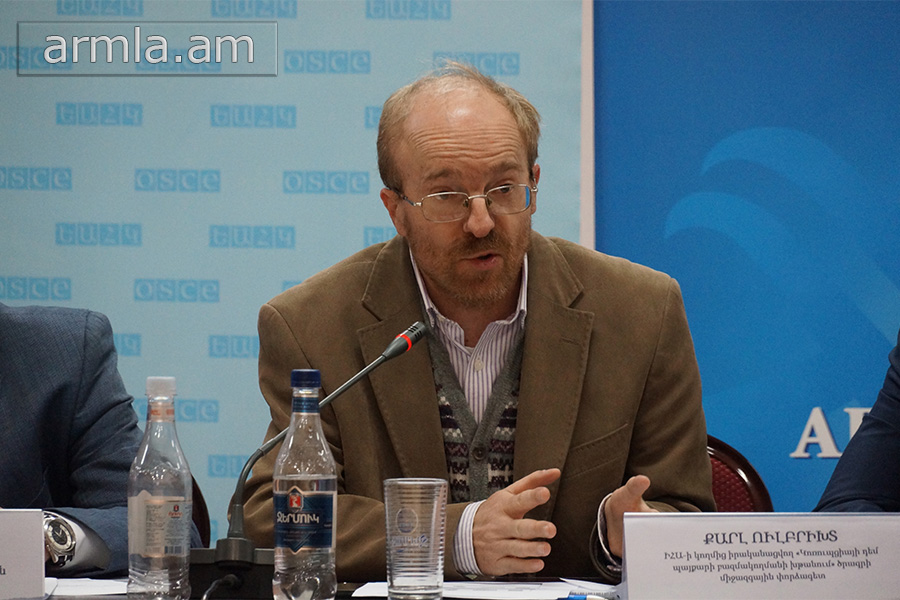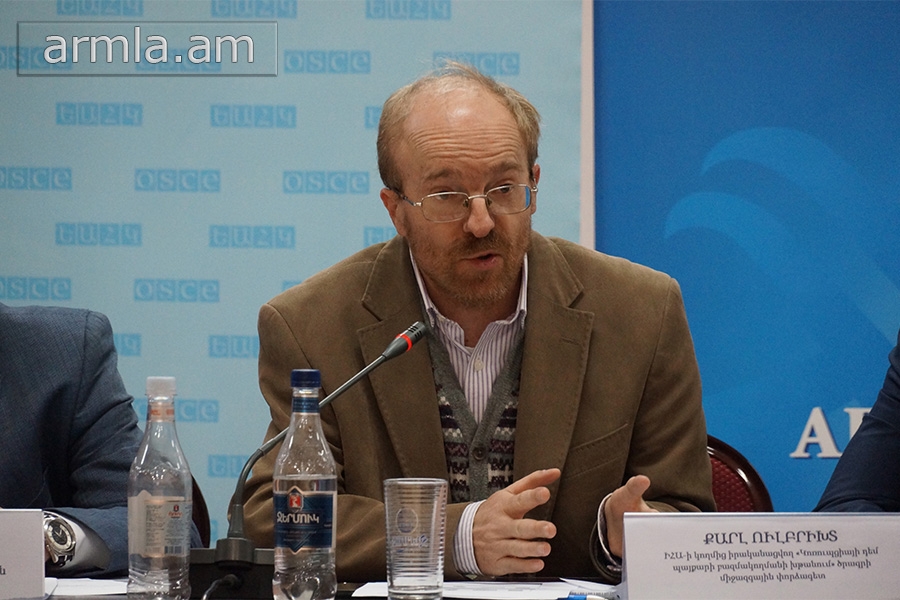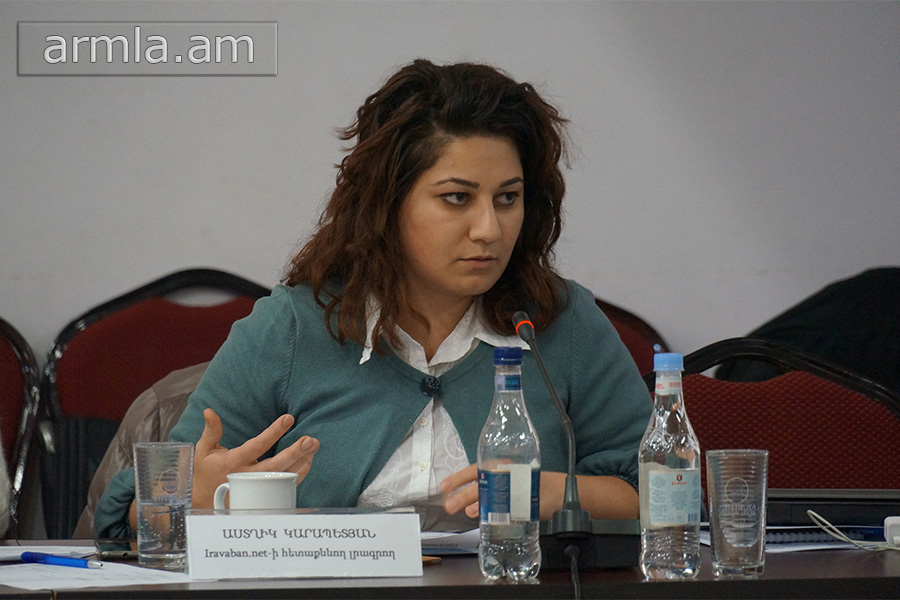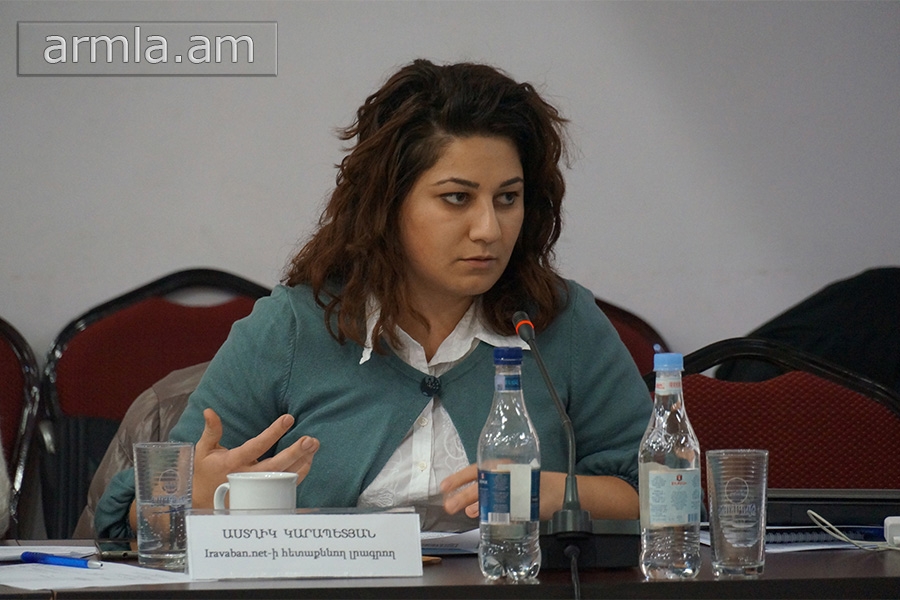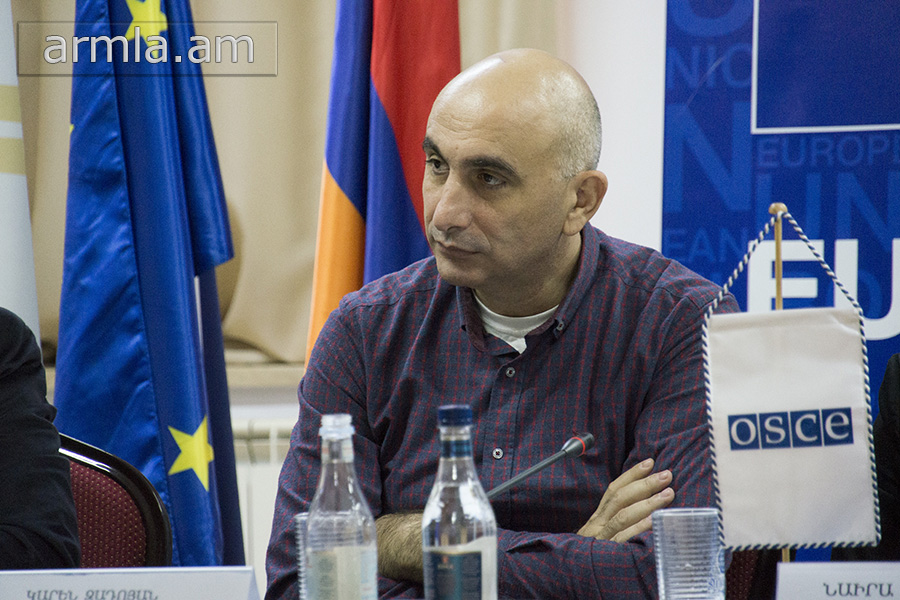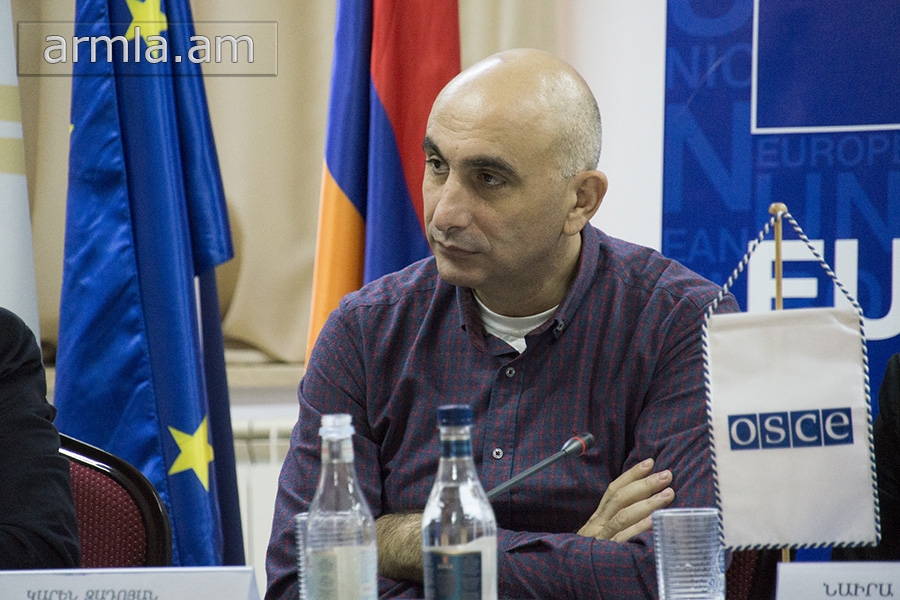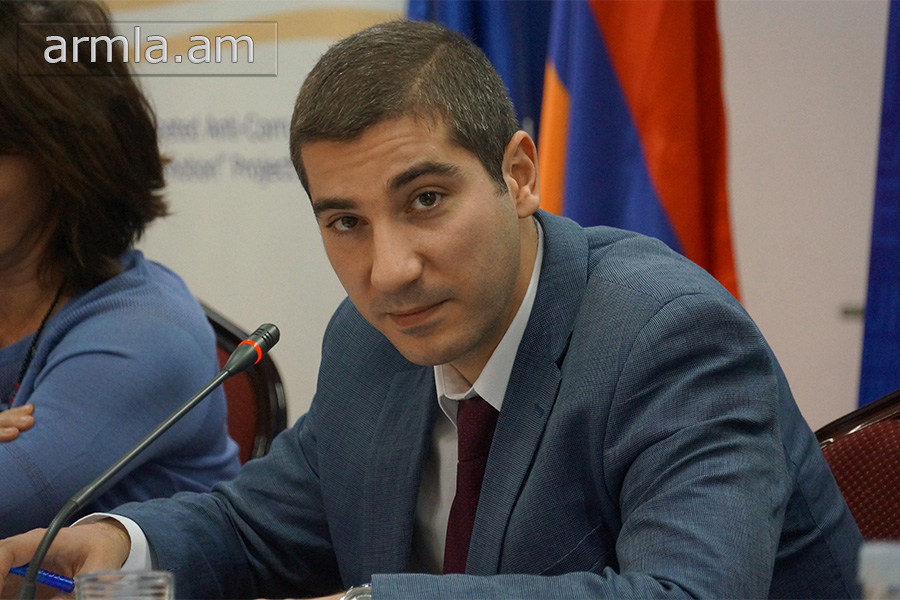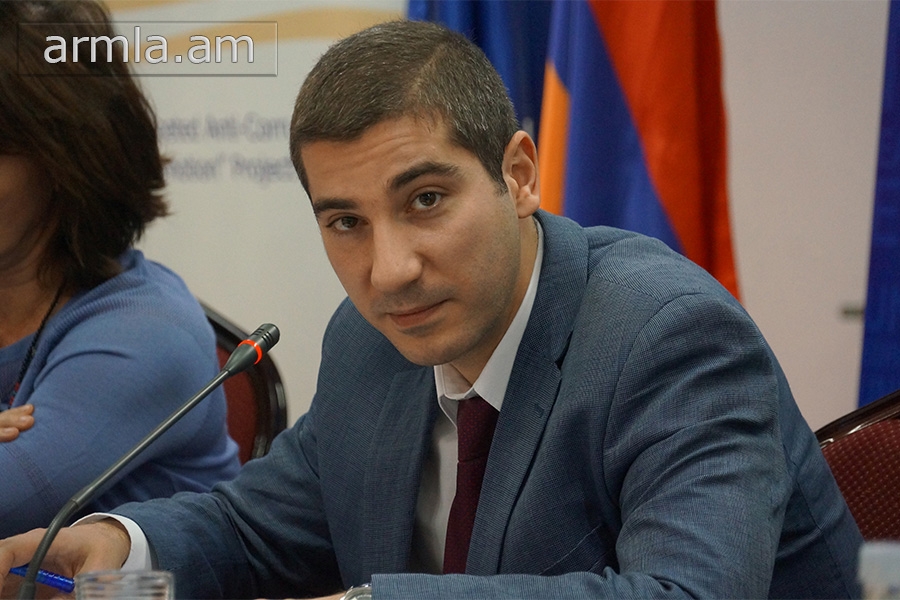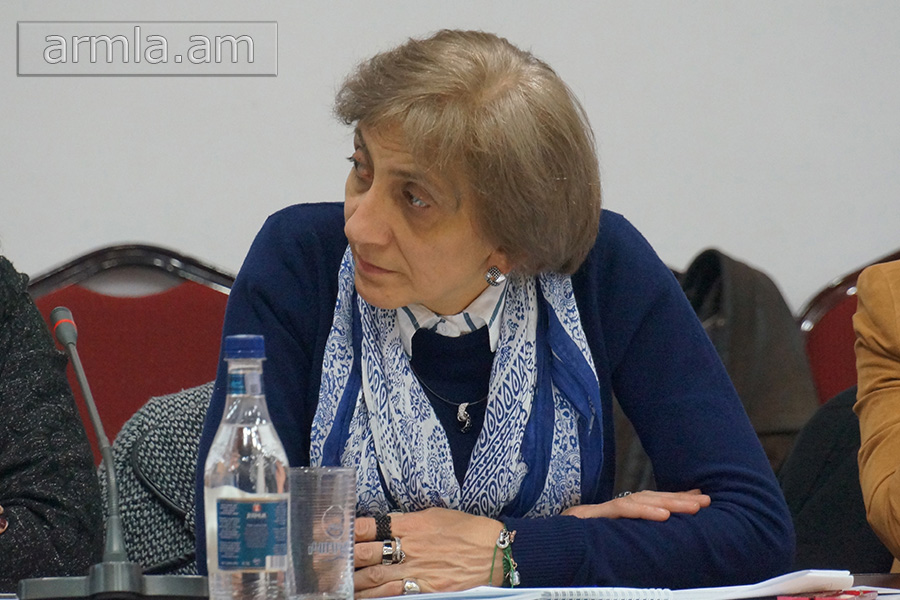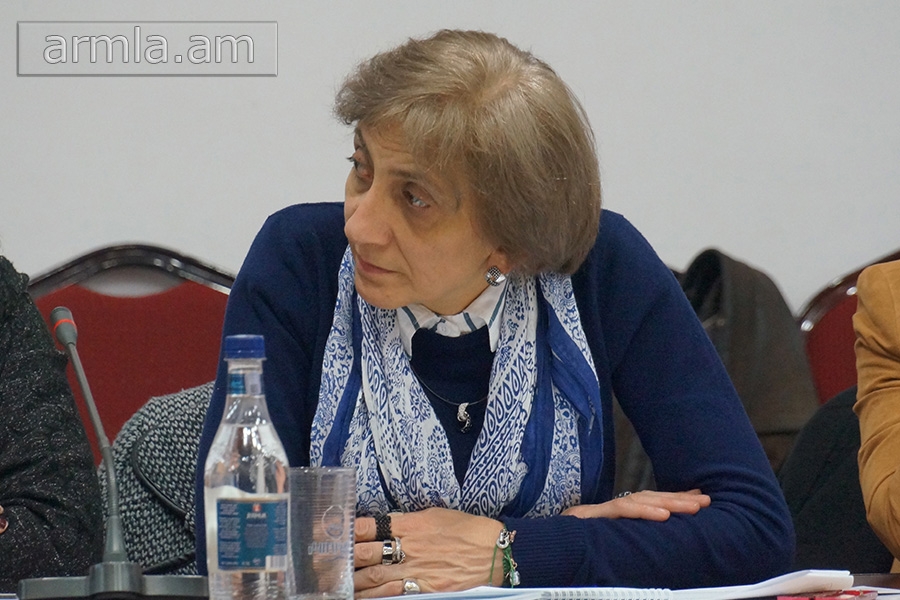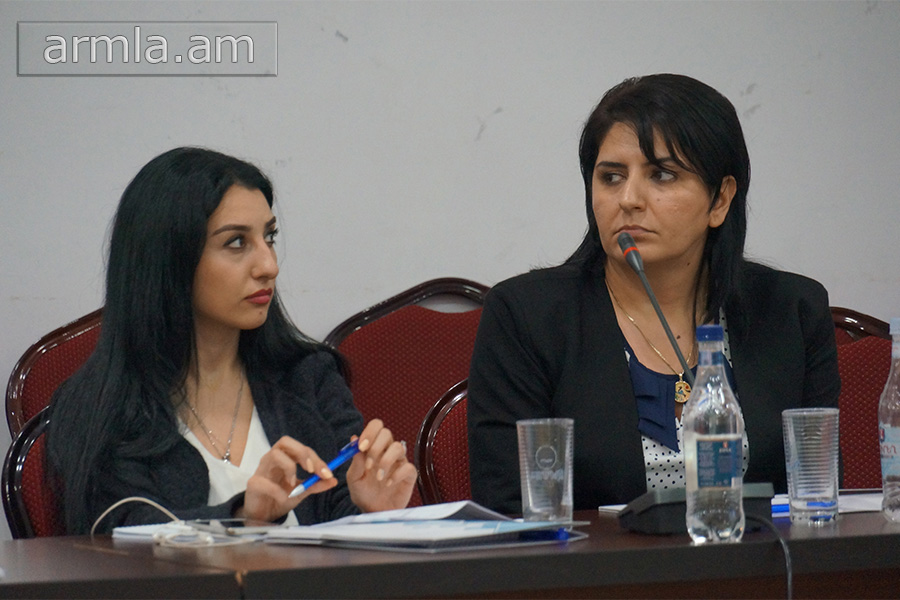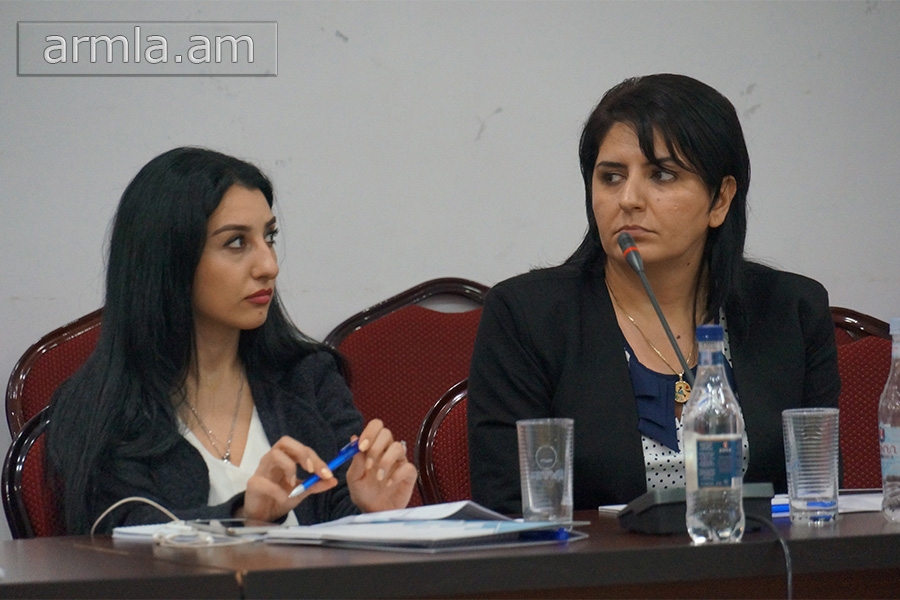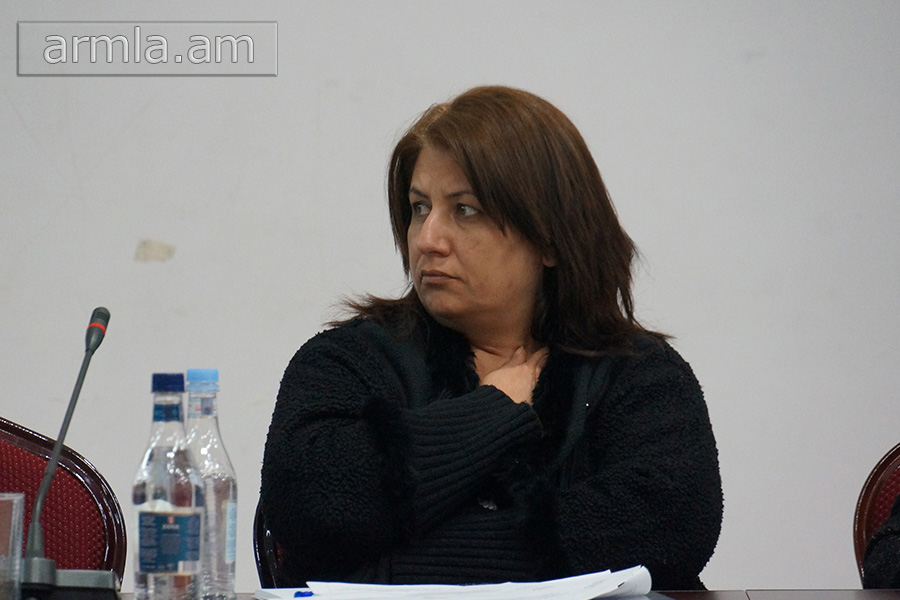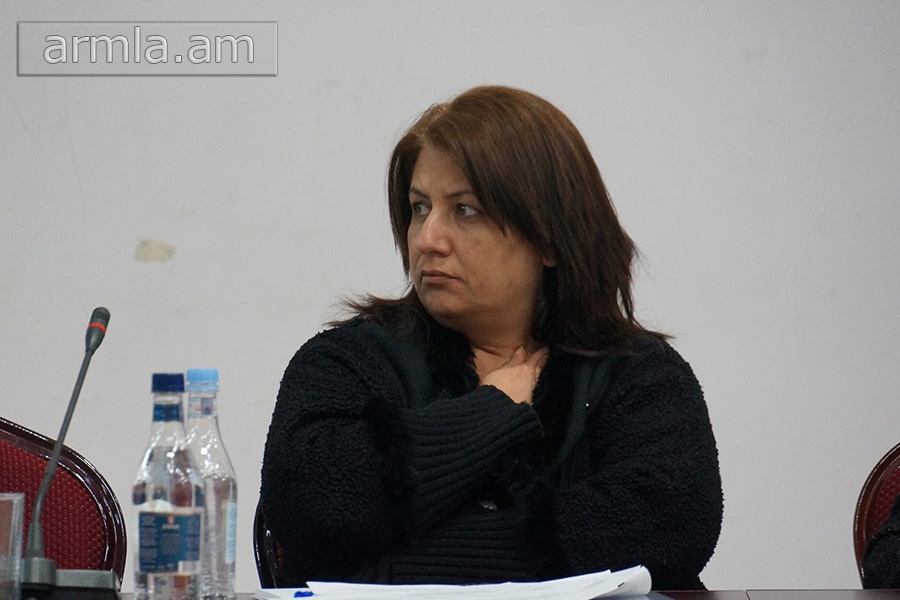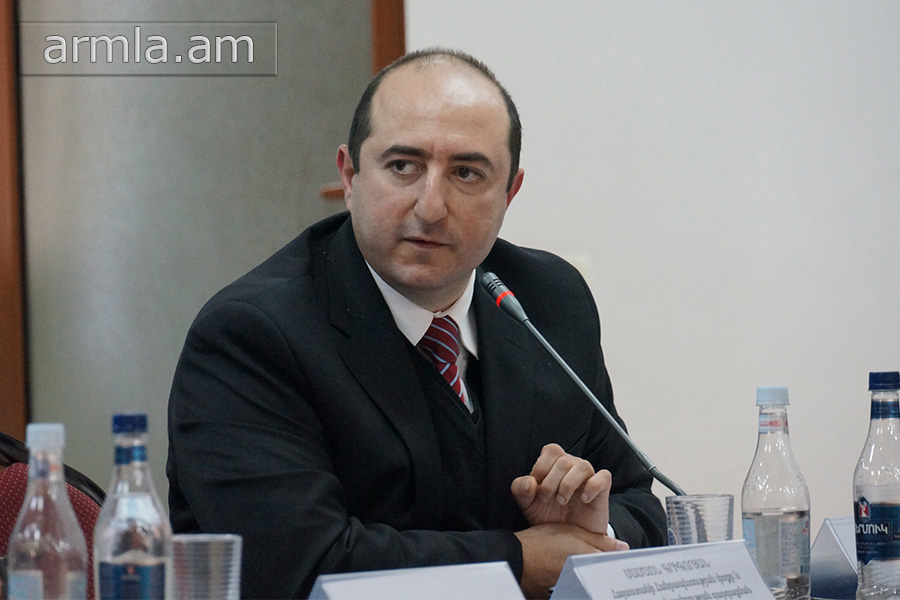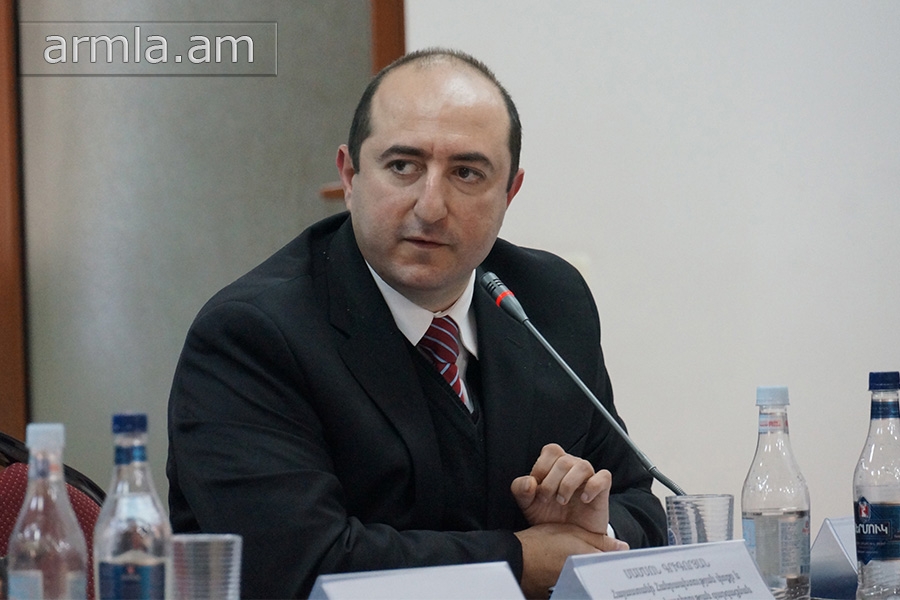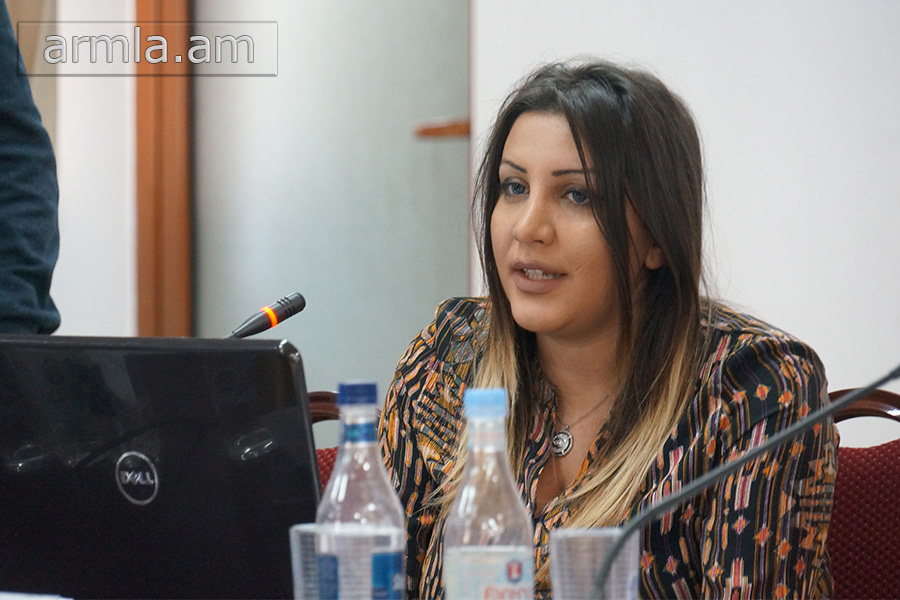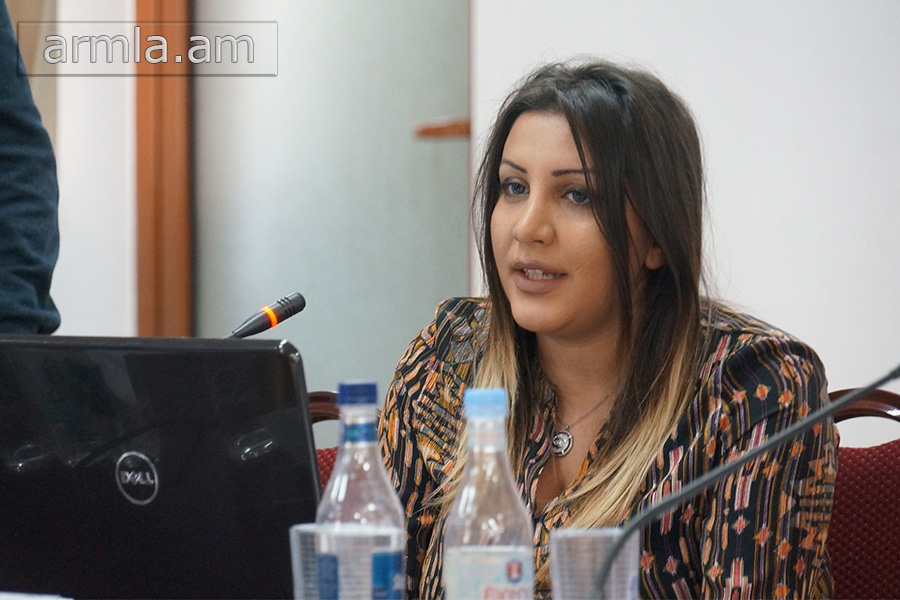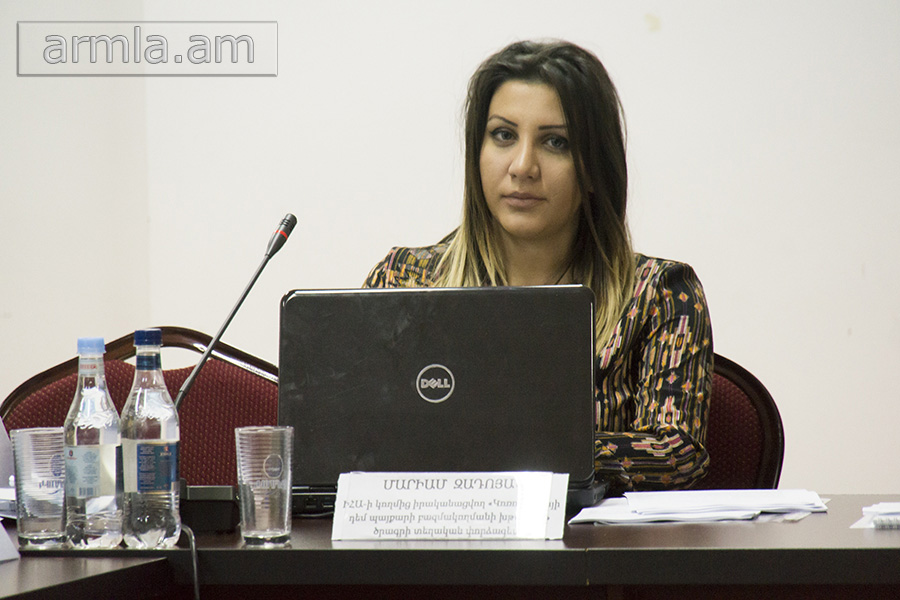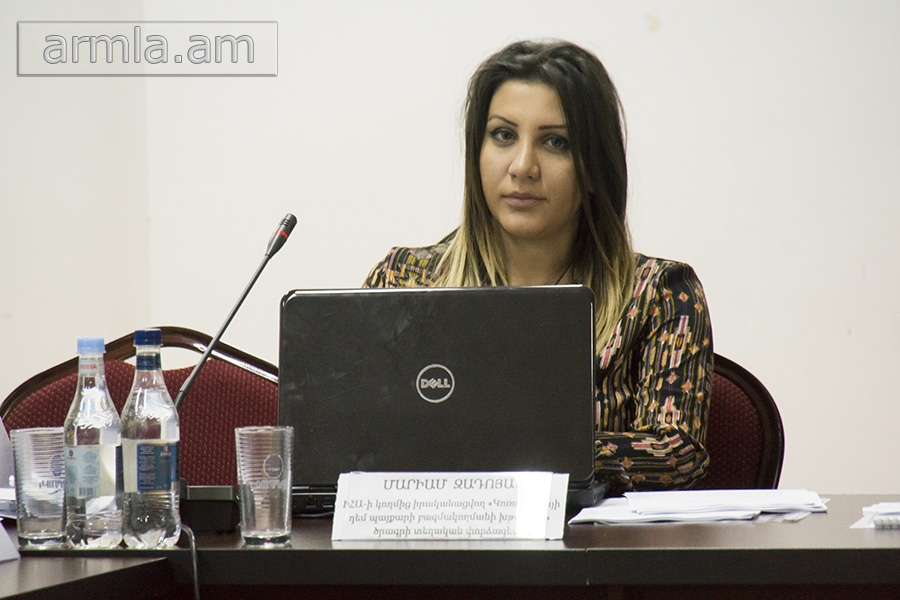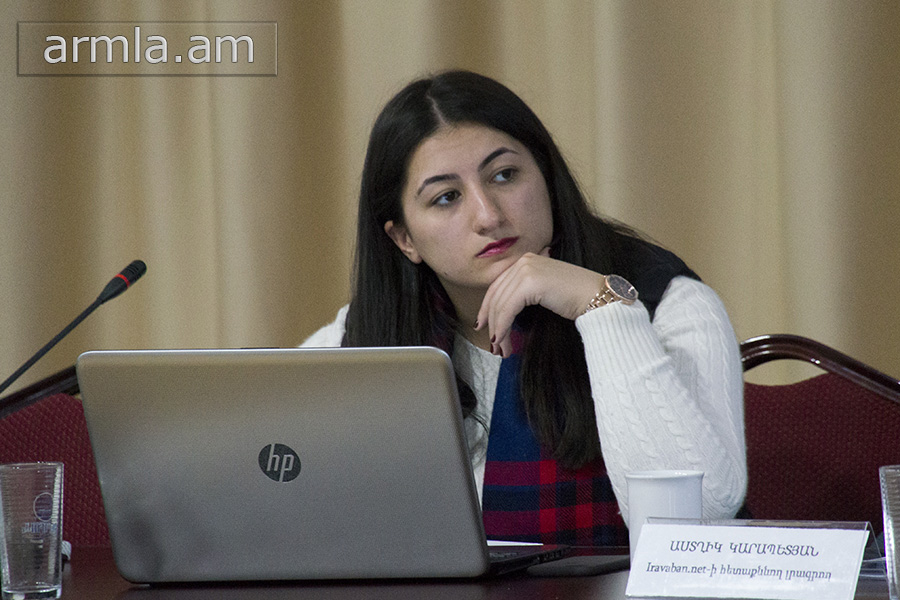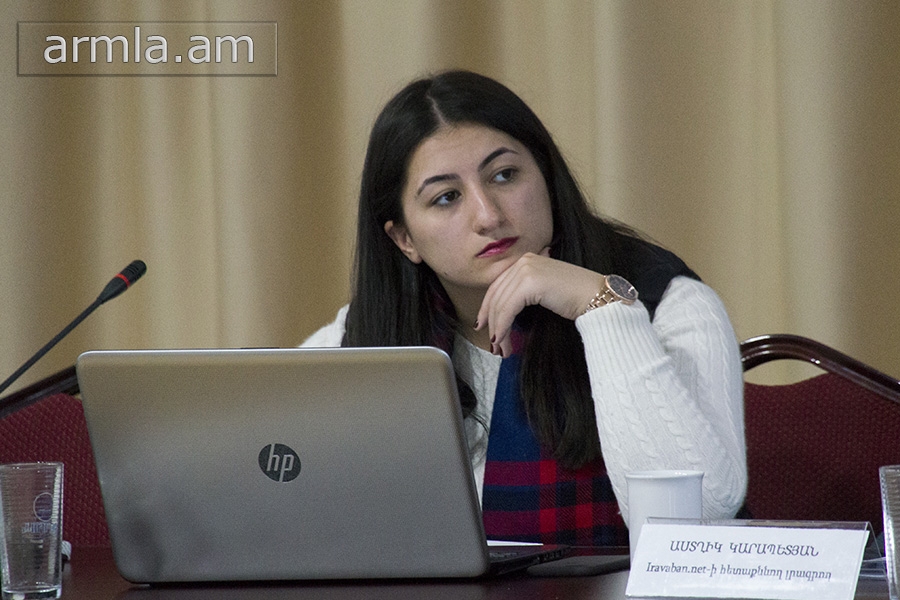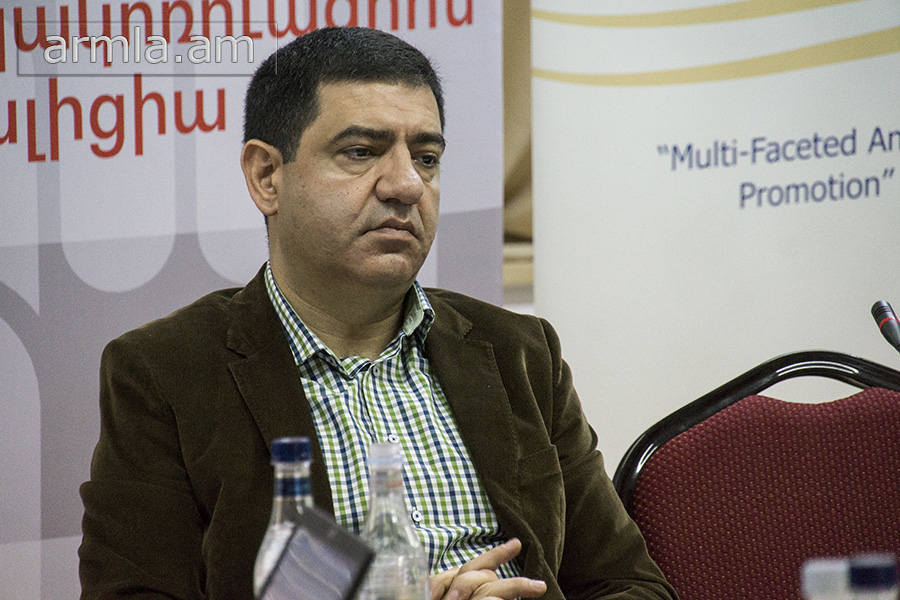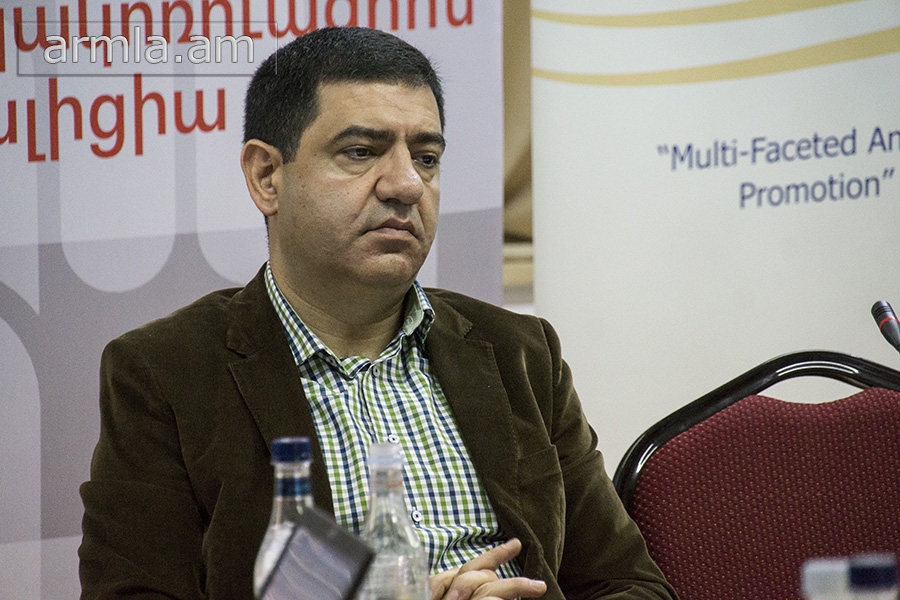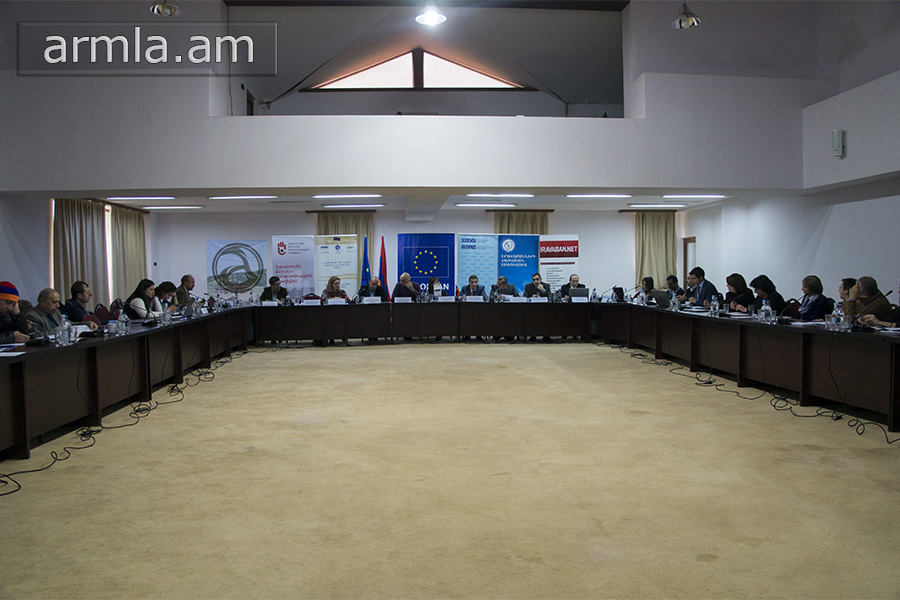
About a year ago joint discussions between representatives from the business sector, the civil society and state bodies were launched with the purpose of revealing corruption risks in the business sector and finding solutions to them.
The business sector started speaking up and voicing its issues that had remained unsolved for years.
“We have been carrying out activities to diagnose corruption risks in the business sector and give solutions to them for about a year now. We have mostly presented the group of problems in the public procurement sector, we have reached an agreement with the government, and they have already give particular instructions,” said Karen Zadoyan, the President of the Armenian Lawyers’ Association (ALA) and the Coordinator of the CSO Anti-Corruption Coalition of Armenia on October 29th, the first day of the final working meeting entitled “Corruption Risks in the Business Sector of Armenia.”
Mr. Zadoyan considers this format to be a good method for identifying the problems and giving them solutions. He is convinced that it is necessary to also take into account the new Government’s program which includes both anti-corruption mechanisms and provisions aimed at the development of the business environment. “At the moment, we can record a change in the work style logic of the government. There was a time when the logic of actions applied by the public sector and state bodies was different. In the current situation we are reaching consensus in order to help develop business and make the public feel the progress firsthand”, said the speaker.
This working meeting was organized by the Armenian Lawyers’ Association and the CSO Anti-Corruption Coalition of Armenia in partnership with the RA Ministry of Justice and the Freedom of Information Center. The event was funded by the European Union and the OSCE Office in Yerevan and co-funded by “Arthurs Aghveran Resort” Hotel Complex. The working meeting was organized in the scope of the “Multi-Faceted Anti-Corruption Promotion” Project.
“At this stage we can already make certain conclusions and measure the success of this format and of what we have been trying to implement for the past year,” said Naira Gyulnazaryan, the Coordiantor of Anti-Corruption projects at the OSCE Office in Yerevan.
It is worth mentioning that the organizers did not limit themselves to holding discussions only in Yerevan. In order to raise the corruption risks in the business sector, they organized discussions in the regions as well.
Representatives of the state agencies were also among the participants of the working meeting. Arman Mnatsakanyan, the Head of the Legal Department at the State Revenue Committee (SRC) adjunct to the RA Government, highlighted that the SRC, as in the entire state system, attaches great importance to the fight against corruption. He said, “Working in this format is important to us since during such discussions we reveal problems that are often unknown to us as representatives of state bodies.” He added that the previous discussions had been productive, too. “A number of key issues and problems were addressed at these meetings. We are ready to solve them together and move forward to remove the corruption risks from the system.”
The RA Ministry for Economic Development and Investments was represented by Albert Babayan, the Head of the Department for the Improvement of Business Environment. In his words, the agency pays great attention to ensuring bilateral communication with the business sector. From that perspective, he found the working meeting to be productive. “This working meeting and the decisions that will be adopted are very relevant and timely in the current economic situation,” he stressed.
President of the SME Cooperation Association, a Governing Board Member of the CSO Anti-Corruption Coalition of Armenia Hakob Avagyan particularly identified two problems in the field of applying and doing the planning for the transaction value method. Apart from that, he spoke about the taxation sector that contains apparent corruption that should be addresses, e.g., the relations between tax inspectors and businessmen. “As an example I will tell you about a very recent incident when an inspector was indicted for corrupt activities. This problem still exists.”
Corruption also exists in transactions with supermarkets. “Some representatives of small or medium businesses, product manufacturers were induced by supermarkets to go for illegal actions during delivery. Supermarkets said that no invoices were needed. This contains corruption risks,” noted the expert.
In order to solve this and other problems it is necessary to involve the business sector and the civil society in the process of the elaboration of not only legislation, but also governmental decisions.
Samson Grigoryan, a Board Member of the RA Council for Development of Small and Medium Businesses, believes that in order to better the business environment and fight against corruption it is first and foremost necessary to simplify the legislation and the administrative processes. “Complex and incomprehensible laws make the work even more complicated. Simplification of the customs administration is of vital importance, too. The simpler the administration, the easier the work is and the lower the dependency from customs inspectors is,” underscored the speaker.
According to the speaker, the application of the transaction value method is a key problem, “Customs agencies do not apply it and it is a hard blow to local manufacturers.”
Executive Director of the European Business Association Diana Sarumova believes that regulation of the public procurement sector is of primary importance. “In many cases businessmen say that it makes no sense to apply for public procurement tenders as it is already known who will be selected. In order to actually eliminate such problems it is necessary to make the process more transparent,” noted Ms. Sarumova.
Khachik Harutyunyan, an Anti-Corruption Expert at the Transparency International Anti-Corruption Center, suggests that the best method of systemic development is the replacement of human resources. Mr. Harutyunyan noted, “I will bring you the example of Georgia. They replaced the people and the situation changed. In our case, too, there will be positive progress if we replace the customs officers. If a person has been taking bribes for 20 years, nothing will prove effective. Unless he is replaced, the system will not be put in order.”
Mariam Zadoyan, a National Expert on the “Multi-Faceted Anti-Corruption Project” implemented by ALA, believes that the best way to reduce corruption risks in the procurement sector is the disclosure of beneficial owners. She is convinced that the public procurement sector should be transparent to the extent possible. She assumes that this will also reduce the dangers coming from offshore zones.
According to Artak Manukyan, an economic expert and a Board Member of the SME Cooperation Association, the procurement system does not serve the purpose of creating more competitive internal standards. The expert’s research has brought him to the conclusion that 20% of the procurement tenders held electronically gets cancelled. “This system is not credible and accessible at least for SMEs,” he underlined.
Astghik Karapetyan, an investigative journalist at the Iravaban.net website, spoke about the corruption risks revealed during her journalistic investigations in the procurement sector.
Finally, Carl Ulbricht, the International Expert on the “Multi-Faceted Anti-Corruption Project” implemented by ALA, presented the most important problems in the sectors discussed. In their turn, economist Babken Tunyan and economic analyst Hayk Gevorgyan spoke about the problems in the field of monopolies.
The discussions continued on the second day. Carl Ulbricht, the International Expert on the “Multi-Faceted Anti-Corruption Promotion” project, said that according to the index of the Doing Business project of the World Bank, the documentation process of acquiring a permission to build a storehouse in Armenia takes 84 days and one needs to pass through 18 stages to receive the final permission.
In response to the question, Albert Babayan, the Head of the Department for Improvement of Business Environment at the Ministry of Economic Development and Investments, said that the main process of receiving a permission for construction takes 30 days. During the rest of the days, other agencies carry out inspections.
In the first module of the working meeting, the main problems in the field of licenses and permissions were discussed. President of the SME Cooperation Association Hakob Avagyan noted that corruption risks had been recorded in the field of provision of construction licenses. In particular, if a company could receive just one type of license before, now different licenses are required for different fields of construction. The state due for each of them is AMD 80,000. Additionally, the documents required for that permission are not clearly regulated in the legislation.
There are intermediary organizations that render paid services of collecting these documents. If one does not use these services, the process of receiving a license can take months.
Gaps in the Act on Advertisements cause problems for people who have small businesses. Small signboards pointing at stores are regarded as advertisements. Thus, people are forced to pay dues for these signboards as well.
In the second part of the working meeting, working groups were formed and the problems in the customs and taxation sectors, public procurement sector, as well as the field of economic competition, provision of licenses and permissions, were discussed.
The main problems in the customs and taxation sectors are linked with complicated customs clearance procedures. It is suggested preparing and publishing leaflets about the types of documents required for applying the transaction value method and the right way of completing them.
Great importance was attached to the problem of transparency in the field of public procurement. In particular, it was recommended that information about the beneficial owners of companies participating in public procurement processes should be made more accessible, the websites with information on public procurement should be reconstructed, etc.
The recommendations for the fields of economic competition and provision of licenses included suggestions of a number of legislative reforms. In addition, it was recommended ensuring transparency and analyzing the potential impact that granting privileges to certain businessmen can have on small and medium businesses, etc.
In the end, the raised problems were summarized. They will be worked out and presented to the Government in the future.

